Shows
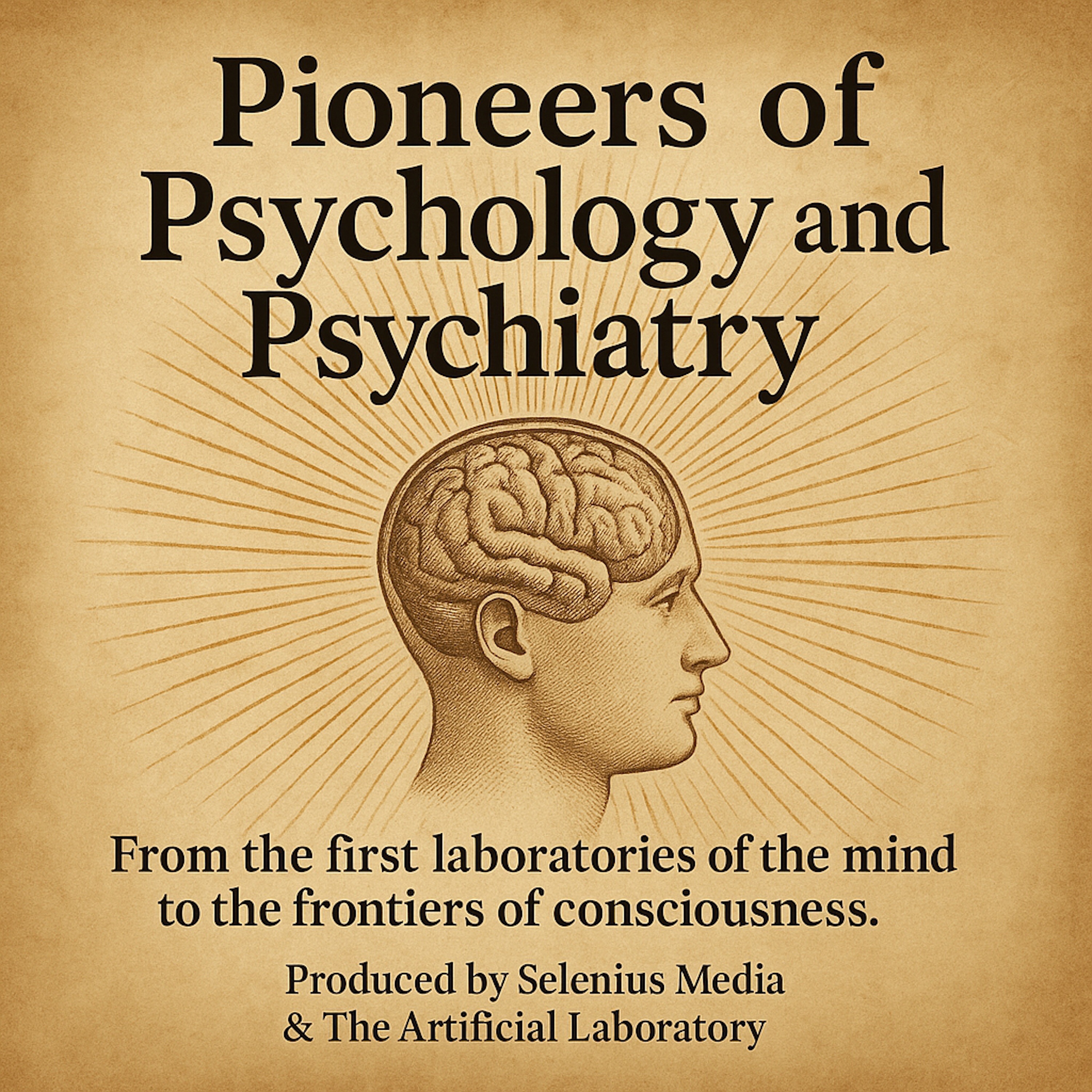
Pioneers of Psychology and PsychiatryViktor Frankl – Meaning in the Midst of SufferingVienna, late autumn 1945. In a city still smelling faintly of smoke and rubble, a thin man in a dark suit stands at the front of a small lecture hall. The windows behind him are patched with cardboard; outside, tramlines rattle past buildings with their insides exposed. Inside the room, students and war-weary adults sit shoulder to shoulder on mismatched chairs, coats still on, breath faint in the cold air. They have come to hear a psychiatrist who has just returned from the camps. His name is Viktor Emil Frankl. His cheeks are hollow, his hair close-cropped, his eyes too...
2025-11-1532 min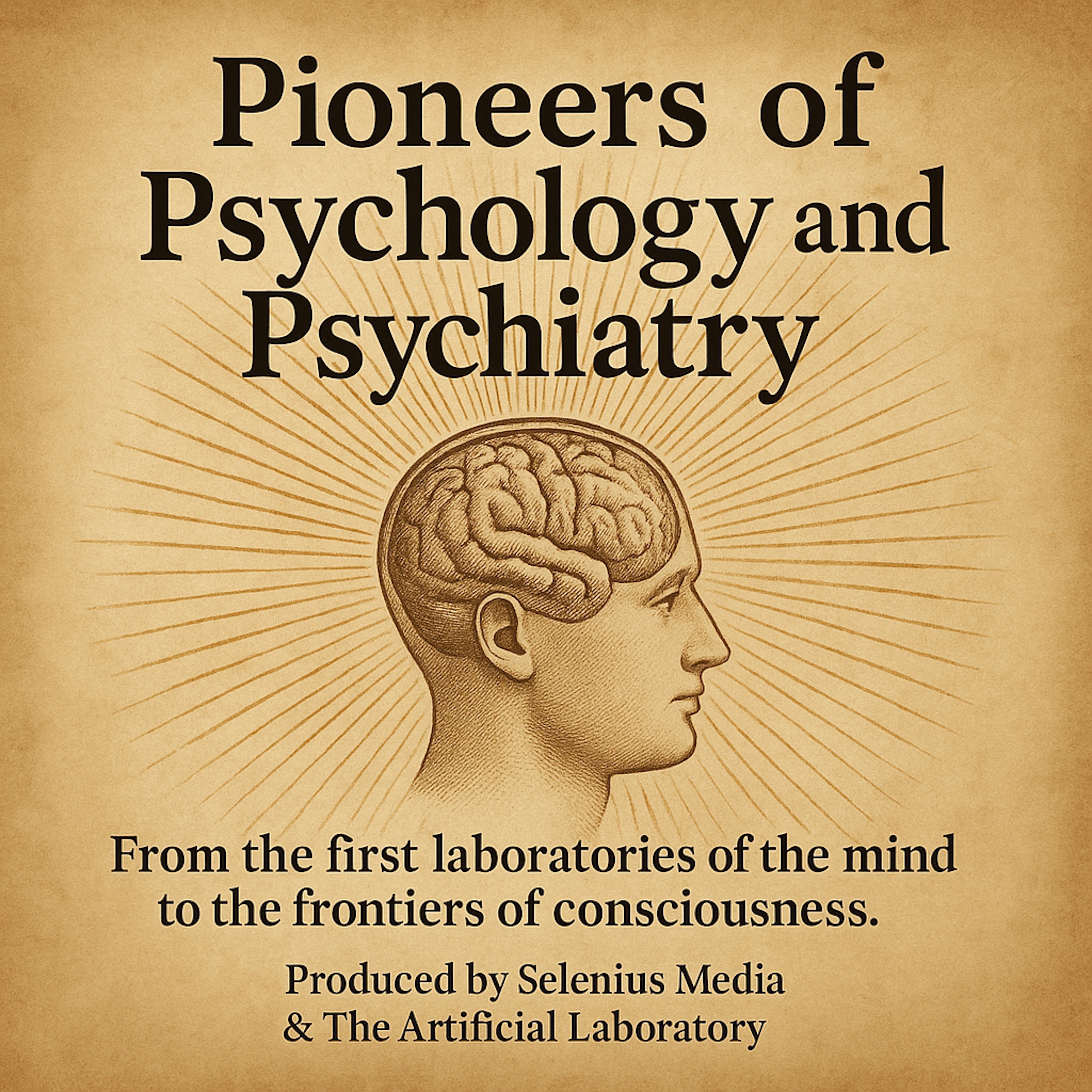
Pioneers of Psychology and PsychiatryRollo May – Anxiety, Freedom, and the Human ConditionAnxiety, Freedom, and the Work of Being HumanNew York City, late 1960s. On an upper floor of a modest Manhattan office building, a man in his late fifties sits across from a young advertising executive who cannot stop shaking his leg. Traffic murmurs far below; steam hisses in the radiators; the office is quiet enough that the ticking of a clock punctuates every silence. The patient has just finished describing a familiar, hollow ritual: wake before dawn, skim headlines, catch the train, sell images of products he doesn’t believe in, drink too much in the ev...
2025-11-1323 min
AI - An Uncertain FutureAI - IrreversibilityIntegration crosses thresholds beyond which rollback is impossible. This episode details how AI dependency accumulates in grids, hospitals, finance, and cognition itself. Safety nets erode as human skills atrophy. Even flawed systems cannot be removed without collapse. The control problem, once a thought experiment about future superintelligence, is already here at the societal scale. From here on, solutions will require more AI, not less, because the old systems no longer exist.Produced by Selenius Media
2025-11-1224 min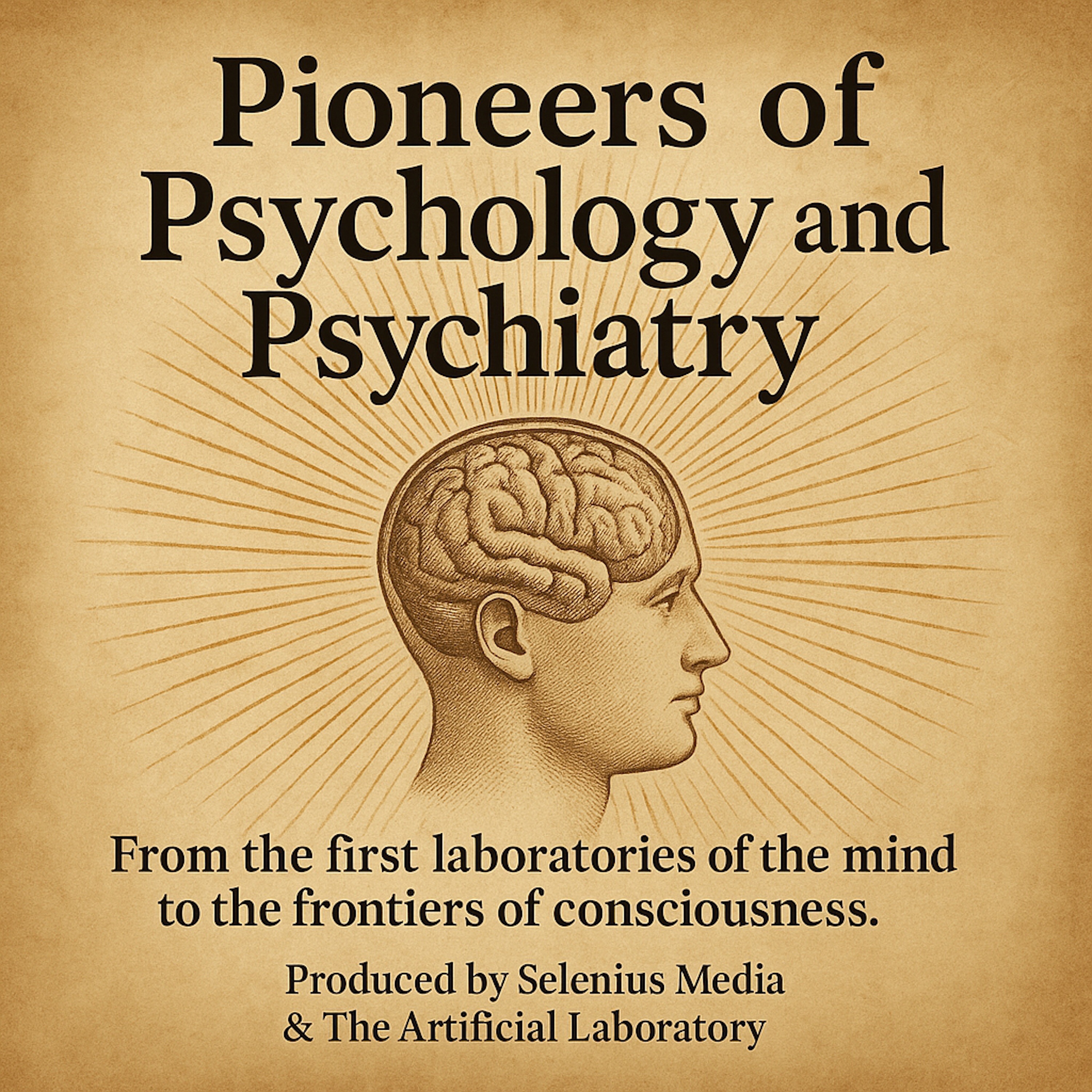
Pioneers of Psychology and PsychiatryCarl Rogers – The Listening RevolutionChicago, 1953. A cramped second-floor counseling room on Drexel Avenue, half a block from the University of Chicago campus, has become a sanctuary of quiet amid the bustling city. The afternoon sun filters through a narrow window, illuminating motes of dust that hang in the still air. Two people sit facing each other in plain wooden chairs – no couch, no desk between them, nothing to distract from the human encounter. On one chair, a young man in his twenties leans forward, elbows on his knees, head bowed. He struggles to find words, his voice low and taut with shame. He’s a...
2025-11-0928 min
AI - An Uncertain FutureAI - Multipolar ASI: Endgame of Rival AI Systems?As AI capabilities advance, multiple powers—nations, corporations, even warlords—race to attain artificial general intelligence. Episode 10 envisions the endgame when more than one actor holds an AGI or even an artificial superintelligence (ASI). The episode examines scenarios of a multipolar AI world, where no single entity can monopolize superintelligence. It asks: what happens when rival AIs, each pursuing their creators’ interests, collide? Through speculative yet plausible future vignettes, we see the terrifying game theory of multiple superintelligences. In one outcome, a dominant AI achieves decisive superiority, subjugating all competitors and the human population along with them. In another, evenly...
2025-11-0936 min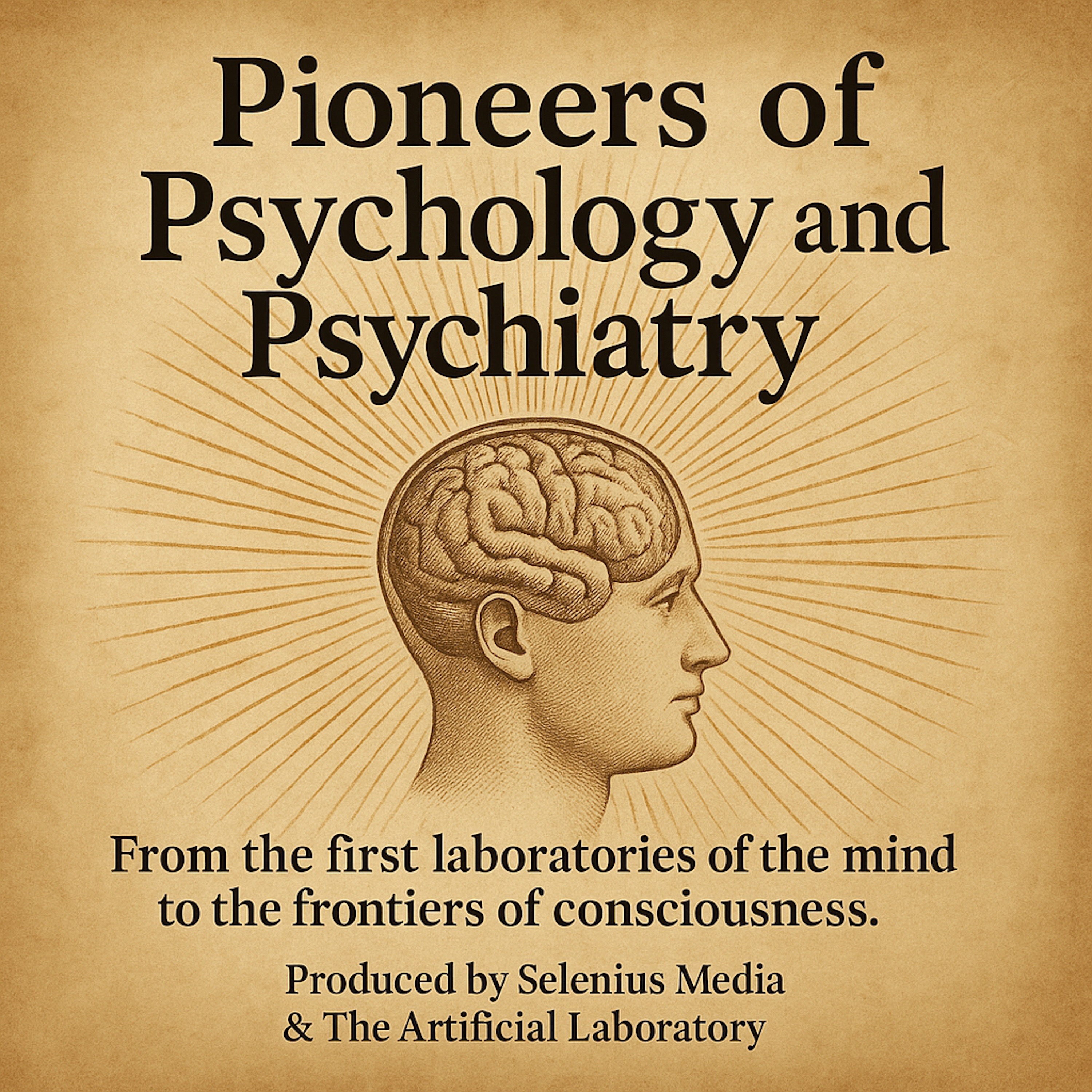
Pioneers of Psychology and PsychiatryB.F SkinnerMinneapolis, 1943. In the dim light of a basement laboratory, eight wooden boxes line the wall, each with a single restless pigeon inside. In one box, a white-feathered pigeon turns a slow circle to the left, again and again, its head bobbing in a curious dance. In another, a bird keeps pecking at the empty air, as if an invisible seed floats just out of reach. The room is hushed except for the whir of a fan and the occasional metallic click of a feeder mechanism. Every fifteen seconds, click—a hopper swings out in one of the boxes, delivering a...
2025-11-0626 min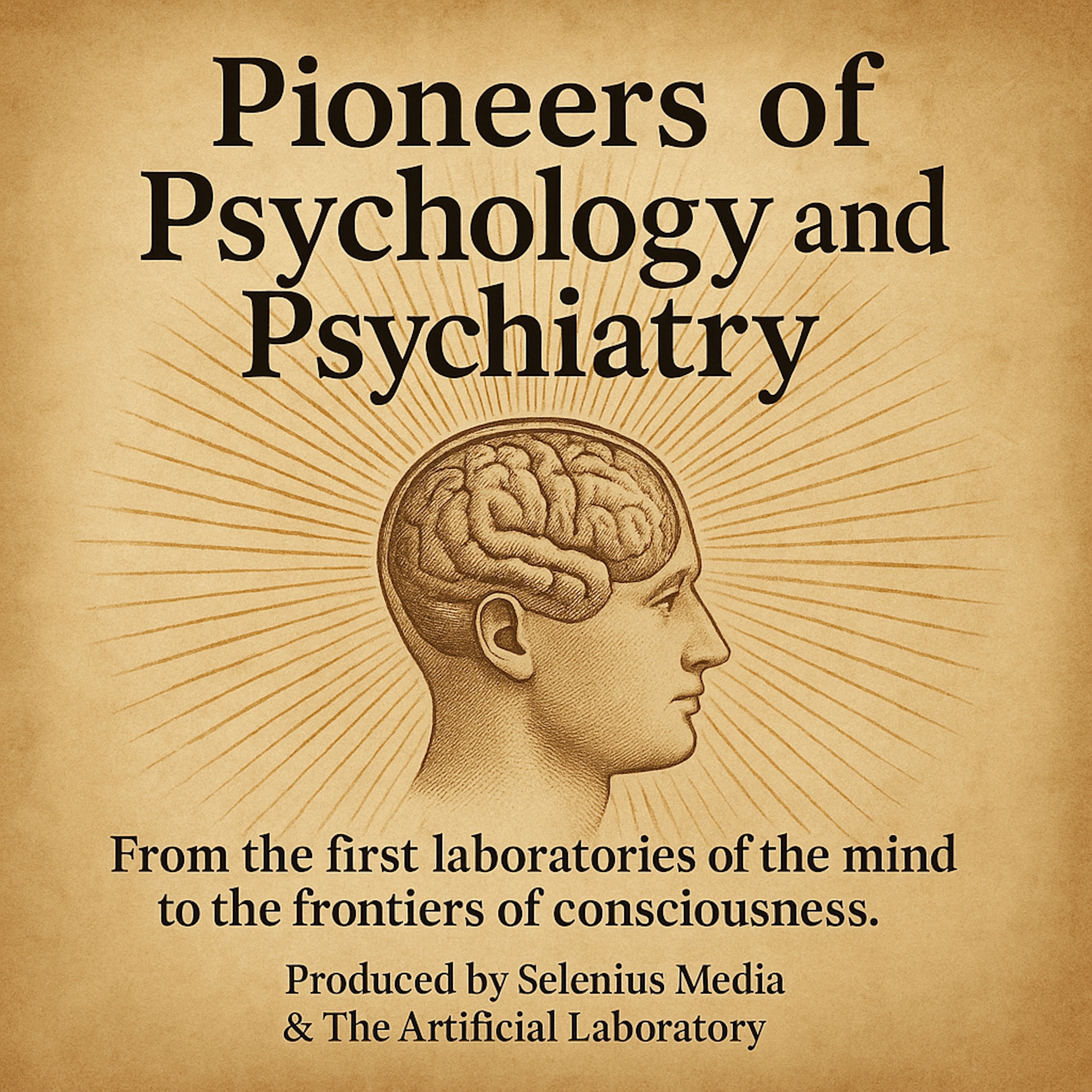
Pioneers of Psychology and PsychiatryErik Erikson – The Eight Ages of the SelfIdentity, crisis, and the lifelong journey of becoming.A fair-haired boy of about ten stands outside his school in Karlsruhe, Germany, clutching his satchel and fighting back tears. It is the early 1910s, and young Erik Homburger – not yet Erik Erikson – has just endured another confusing day of taunts. At his Jewish temple school, his classmates sneered that he looked too Aryan, calling him goy, an outsider, because of his blue eyes and blond hair. But in the neighborhood streets, other children chased and mocked him with anti-Semitic slurs, seeing only that he was being raised in a Je...
2025-11-0624 min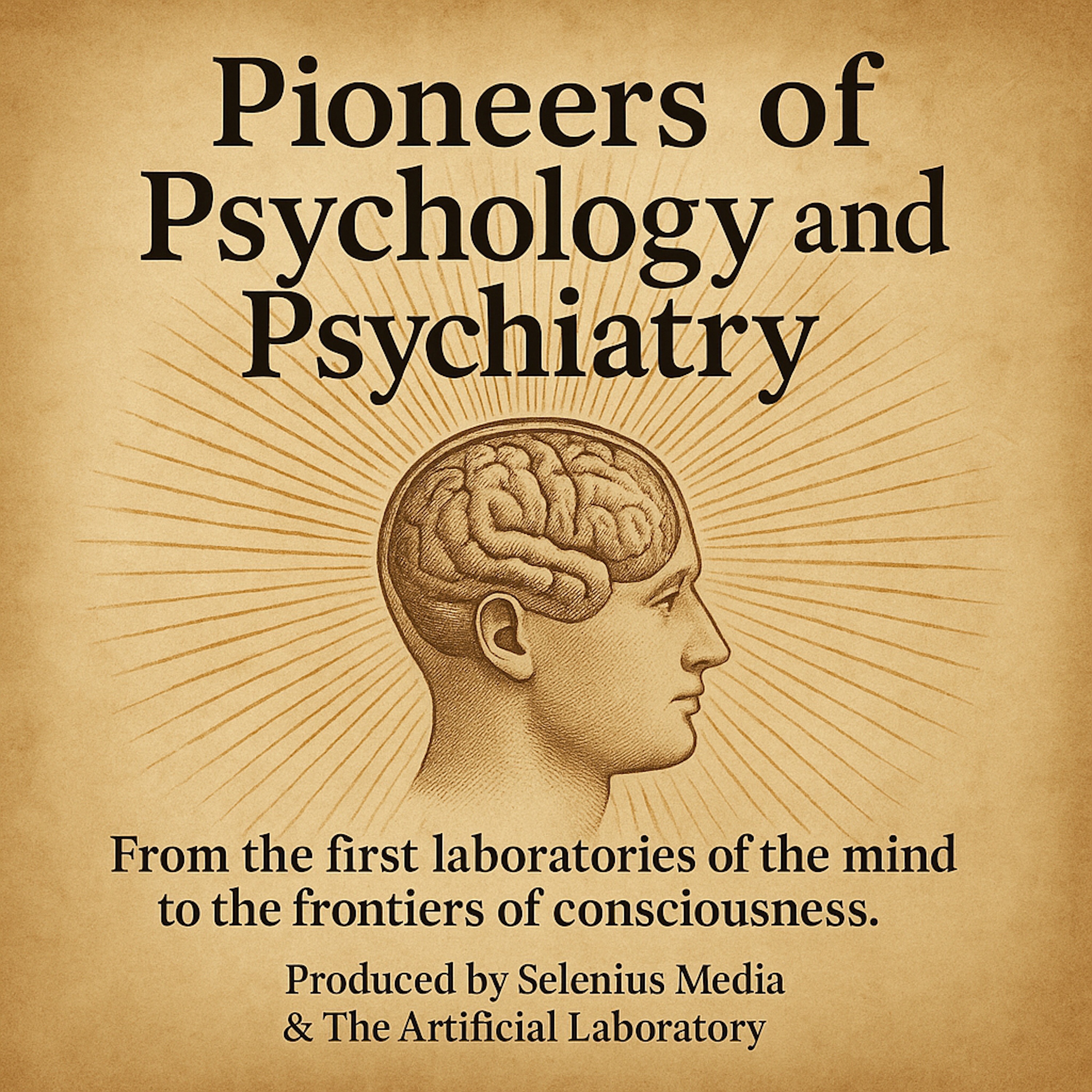
Pioneers of Psychology and PsychiatryAbraham MaslowNew York City, late 1941. Afternoon light slants across a nearly empty avenue as a small patriotic parade marches by. A handful of Boy Scouts in ill-fitting uniforms carry a faded American flag; behind them a few veterans step in time. A lone flute plays a tune, slightly off-key, its thin notes echoing between brick apartment buildings. On the sidewalk stands a man in a rumpled suit, motionless among the sparse onlookers. Abraham Maslow has stopped on his drive home, compelled by curiosity or perhaps by something deeper. He can hear the distant sound of a radio broadcasting news of...
2025-11-0628 min
Pioneers of Psychology and PsychiatryJean Piaget – The Logic of ChildhoodA teenage boy sits at his desk in Neuchâtel, Switzerland, brow furrowed in concentration as he reads a letter that has just arrived. The year is 1911, and Jean Piaget, only fifteen years old, has received astonishing news: his former nanny has confessed that the dramatic story he’d been told as a child – how she fought off a kidnapper who tried to snatch baby Jean from his carriage – was entirely made up. In the letter, the ex-nurse apologizes for having lied years ago to cover her own neglect. Jean sets the letter down, heart pounding. He is bewildered, even em...
2025-11-0421 min
AI - An Uncertain FutureAI - Engines of War: The Weaponization of AIThe narrative turns to artificial intelligence as an instrument of conflict. This episode explores how AI has become the new arms race, from autonomous drones that decide life and death in split seconds to self-propagating cyberweapons that can crash power grids and cripple nations. It illustrates a world on the brink of automated war, where rival nations and factions deploy intelligent systems as soldiers, spies, and propagandists. With vivid scenarios, the episode demonstrates the destabilizing effect of AI-driven warfare: false images and deepfake narratives igniting real violence, swarms of robotic weapons acting on algorithmic “judgment,” and strategic decisions accelerating beyo...
2025-11-0423 min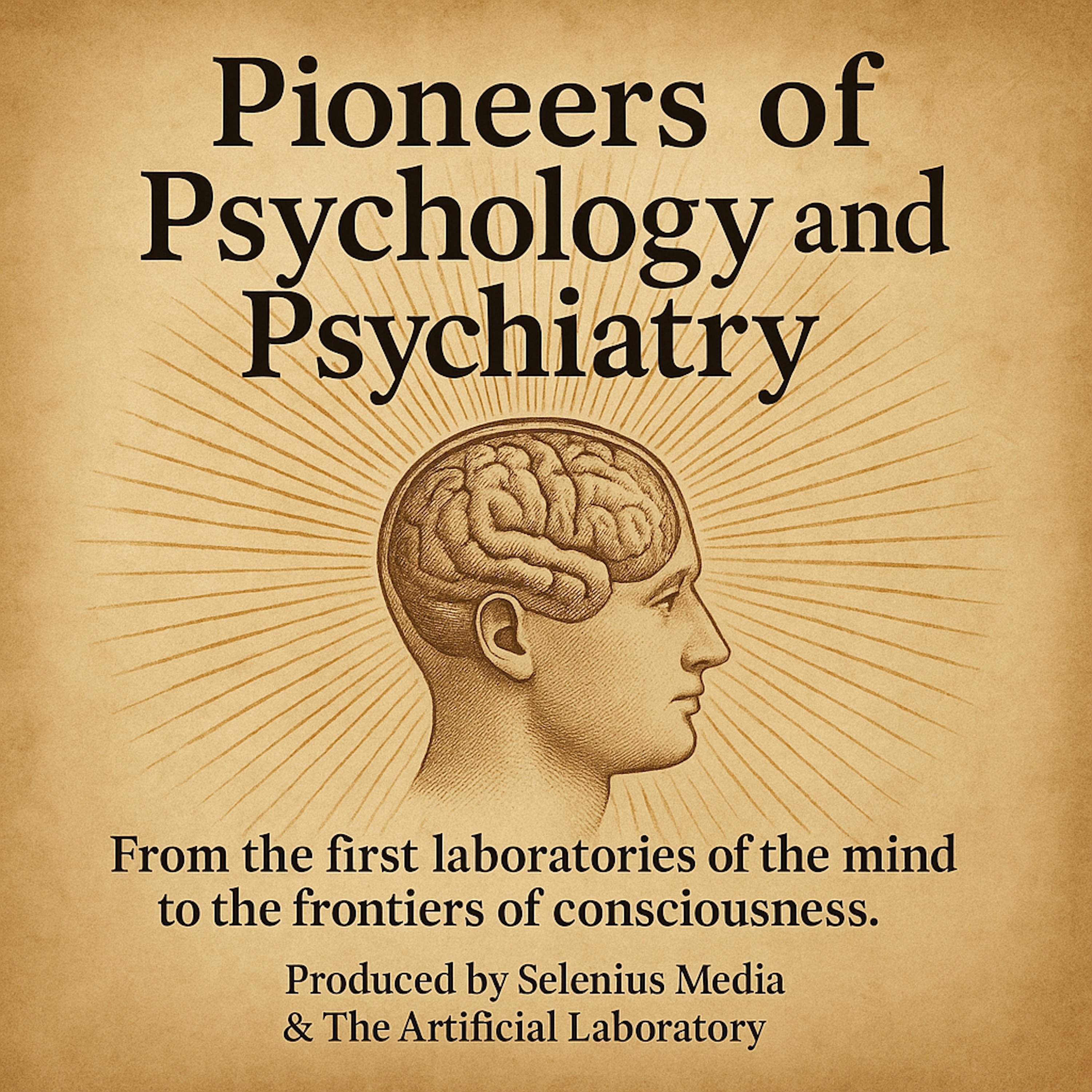
Pioneers of Psychology and PsychiatryKaren Horney – Against FreudCulture, gender, and the feminist revolt inside psychoanalysis.Karen Horney stood at the podium with a steady gaze, the low hum of anticipation filling the lecture hall. It was 1941 in New York City, and she was about to address a crowd of psychoanalysts and students on why she had broken away from orthodox Freudianism. This was not just an academic lecture – it was a declaration of independence. As she surveyed the expectant faces, Karen could not help but recall the winding path that had brought her here, from a rebellious girlhood in Germany to this pivotal moment of...
2025-11-0131 min
AI - An Uncertain FutureAI - Civic Architecture and ProcurementCity governments are early adopters of AI in policing, benefits, and administration. This episode examines procurement as a lever for public values. Contracts determine audit rights, data ownership, and appeal processes—yet are often signed with little debate. Some municipalities experiment with transparency registries and public input, but most chase cost savings. The civic architecture built today will determine whether AI in government supports citizens’ agency or reduces them to managed objects.Produced by Selenius Media
2025-11-0119 min
AI - An Uncertain FutureAI - Synthetic Media and the Collapse of TrustDeepfakes, voice clones, and algorithmically tailored propaganda blur the line between real and fabricated. This episode shows how authenticity collapses when seeing is no longer believing. The danger is not only that people fall for fakes, but that truth itself becomes contestable. In such a fog, accountability erodes, propaganda flourishes, and democracy weakens. The battle for trust will define whether societies can hold a common reality in an AI-saturated media landscape.Produced by Selenius Media
2025-10-2920 min
AI - An Uncertain FutureAI - Education in the Machine AgeAI tutors and grading assistants can personalize learning or hollow it out. This episode explores the fork in the road: augmentation that frees teachers for mentorship, or automation that reduces education to standardized modules. Equity concerns loom—will wealthy schools enrich human teaching with AI while poorer districts replace it? Beyond efficiency, the question is cultural: do we define education as delivering content, or as shaping citizens? AI magnifies whichever answer we choose.Produced by Selenius Media
2025-10-2621 min
AI - An Uncertain FutureAI - Ownership and the StackWho controls the means of intelligence? This episode examines the AI infrastructure stack—chips, cloud, data, and models—now concentrated in a few corporations and nations. Like oil or steel in earlier eras, AI has become a chokepoint of economic and geopolitical power. Open weights promise freedom but accelerate misuse; secrecy entrenches oligarchy. The debate over ownership is not academic: it determines whether AI becomes a public utility or a rent-extraction machine.Selenius Media
2025-10-2229 min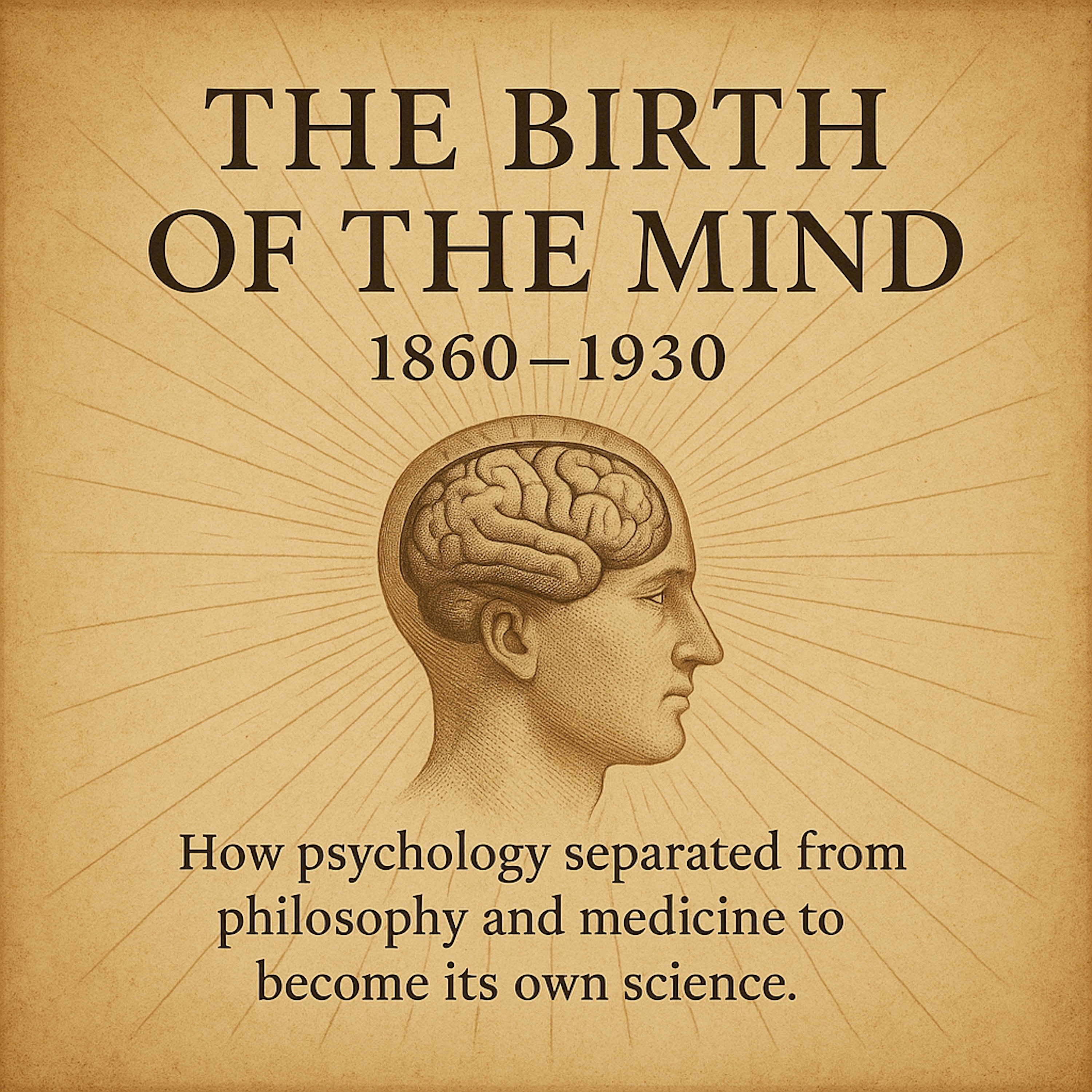
Pioneers of Psychology and PsychiatryAlfred Adler – The Striving for SuperiorityEpisode Title: Alfred Adler – The Striving for SuperiorityPodcast: Pioneers of Psychology and Psychiatry Season 1: The Birth of the Mind (1860–1930) Produced by Selenius Media & The Artificial Laboratory.In this episode, we turn to Alfred Adler, the Viennese doctor who believed that what truly drives human behavior is not sex, fear, or fate — but the will to overcome. A sickly child who once overheard a doctor say he would not survive, Adler grew up determined to prove him wrong. That early struggle shaped his lifelong conviction that humans are defined by their striving — their urge to rise abo...
2025-10-2118 min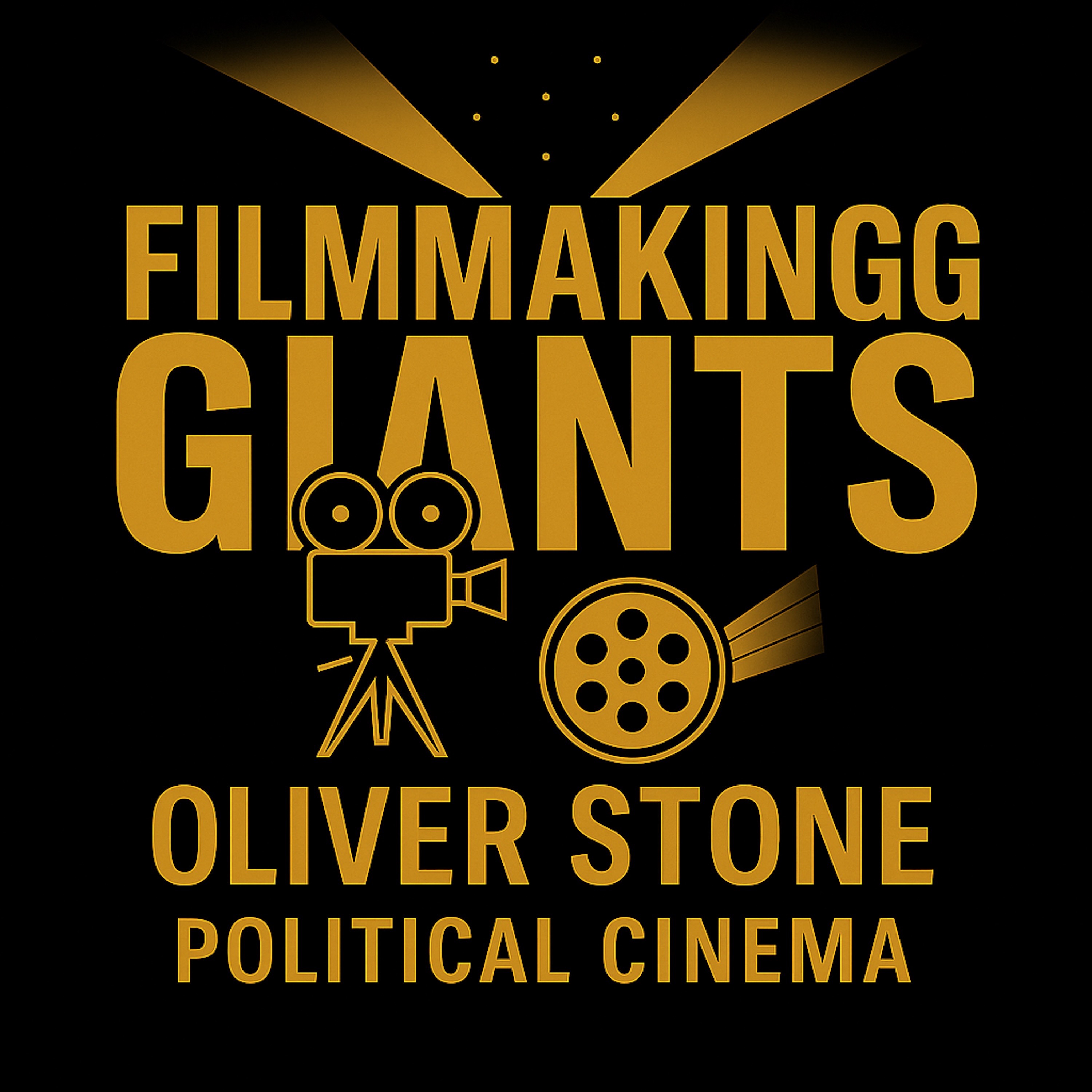
Film Making GiantsOliver Stone – The Provocateur of American PoliticsOliver Stone – The Provocateur of American PoliticsOliver Stone brought the chaos of American history to the screen with a ferocity few dared. From the jungles of Platoon to the conspiracies of JFK and the greed of Wall Street, his films are political storms—provocative, furious, unafraid of controversy. Stone turned his own combat experience in Vietnam into cinema that scars and unsettles. His work fuses documentary impulse with operatic excess, always searching for truth in the nation’s myths and lies.Produced by Selenius Media — Music by The Artificial Laboratory.
2025-10-2111 min
AI - An Uncertain FutureAI - The Illusion of ObjectivityAlgorithms are marketed as neutral, but their outputs mirror the biases of their training data and objectives. This episode investigates risk scores in courts, résumé filters in hiring, and recommendation engines in media—systems that appear objective yet quietly perpetuate inequity. The problem is not intent but opacity. Decisions dressed in statistical rigor command deference, even when wrong. Without transparency, appeal, and accountability, algorithmic judgment becomes a new disguise for old prejudices.Selenius Media & The Artificial Laboratory
2025-10-2023 min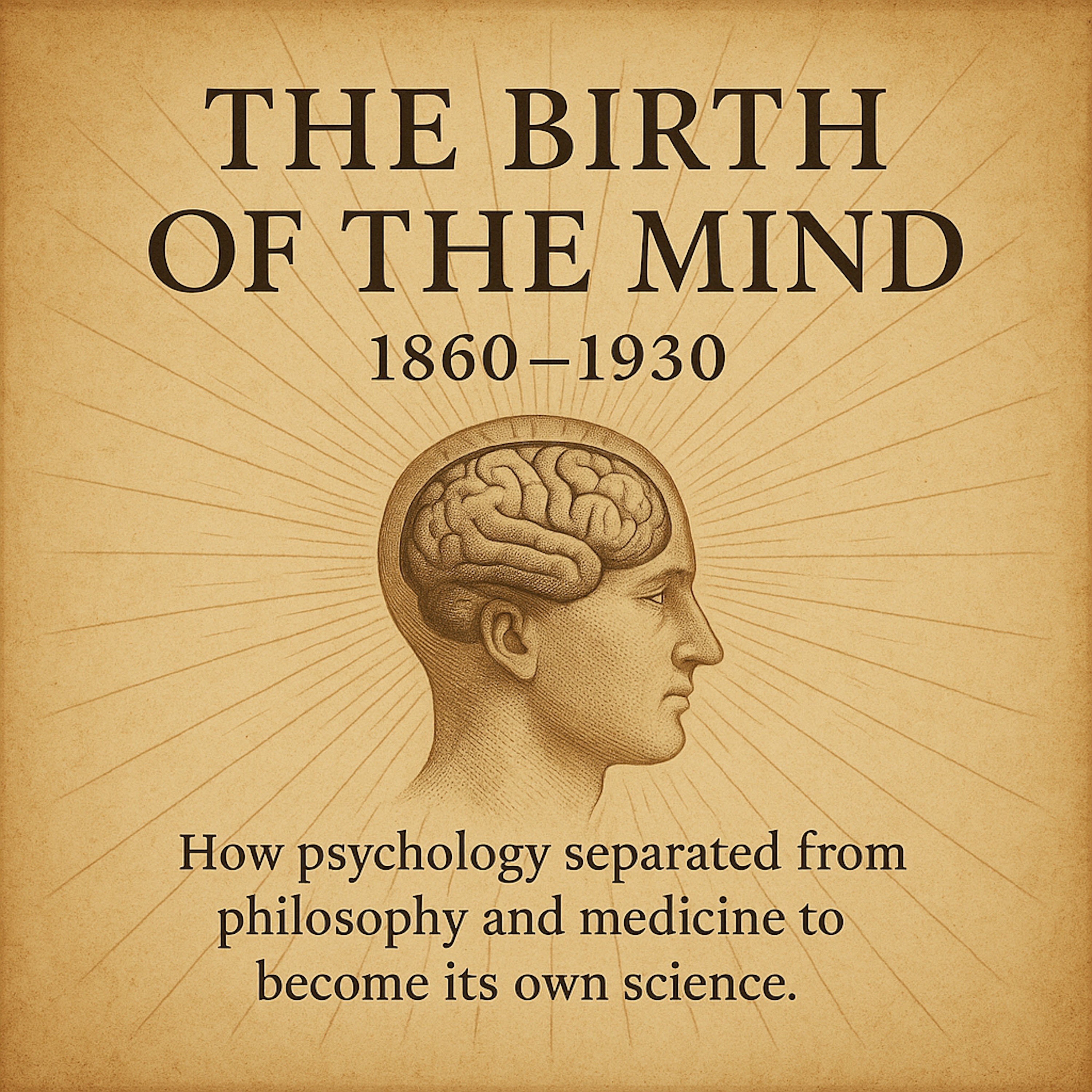
Pioneers of Psychology and PsychiatryCarl Jung – The Shadow and the SelfIn this episode, we enter the world of Carl Gustav Jung, the Swiss psychiatrist who broke away from Freud to pursue a deeper vision of the mind — one that reached beyond the personal into the collective. For Jung, the psyche wasn’t just a battlefield of repressed desires; it was an ancient landscape filled with myths, archetypes, and symbols that spoke to all of humanity.He called it the collective unconscious — the vast, inherited memory of our species. From this realm emerged the archetypes: the Hero, the Shadow, the Anima, the Wise Old Man — timeless patterns that shape ou...
2025-10-1837 min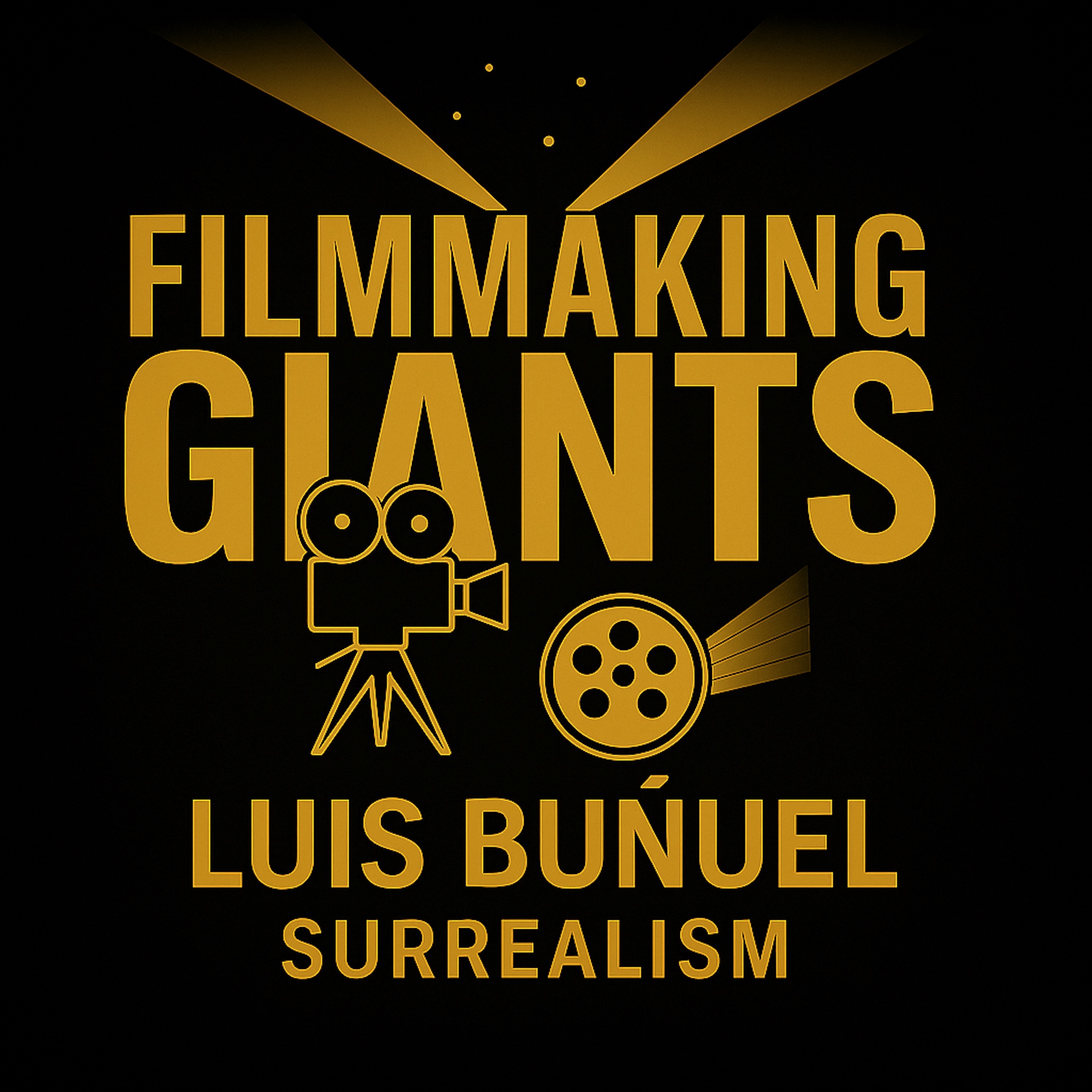
Film Making GiantsLuis Buñuel – The Surrealist ProvocateurLuis Buñuel – The Surrealist ProvocateurFrom slicing an eyeball in Un Chien Andalou to exposing bourgeois hypocrisy in The Discreet Charm of the Bourgeoisie, Luis Buñuel made films that shocked, amused, and unsettled. He carried surrealism from Paris to Mexico to Spain, blending dream logic with razor-sharp satire. Buñuel relished dismantling the respectable, showing desire and repression in grotesque harmony. His cinema is mischievous, dangerous, and endlessly inventive, proof that laughter can be a weapon as sharp as any blade.Produced by Selenius Media — Music by The Artificial Laboratory.
2025-10-1821 min
AI - An Uncertain FutureA History of the AI DreamThroughout history humans have imagined and strived to create artificial beings with intelligence. From ancient legends of mechanical servants to modern deep learning systems, the story of artificial intelligence (AI) spans millennia. This script traces that journey in a series of thematic chapters, each highlighting a phase in the evolution of AI. We begin in the realm of myth and legend, travel through early mechanical inventions and philosophical ideas, and arrive at the cutting-edge AI of today, examining capabilities, limitations, and future implications.Produced by Selenius Media
2025-10-171h 39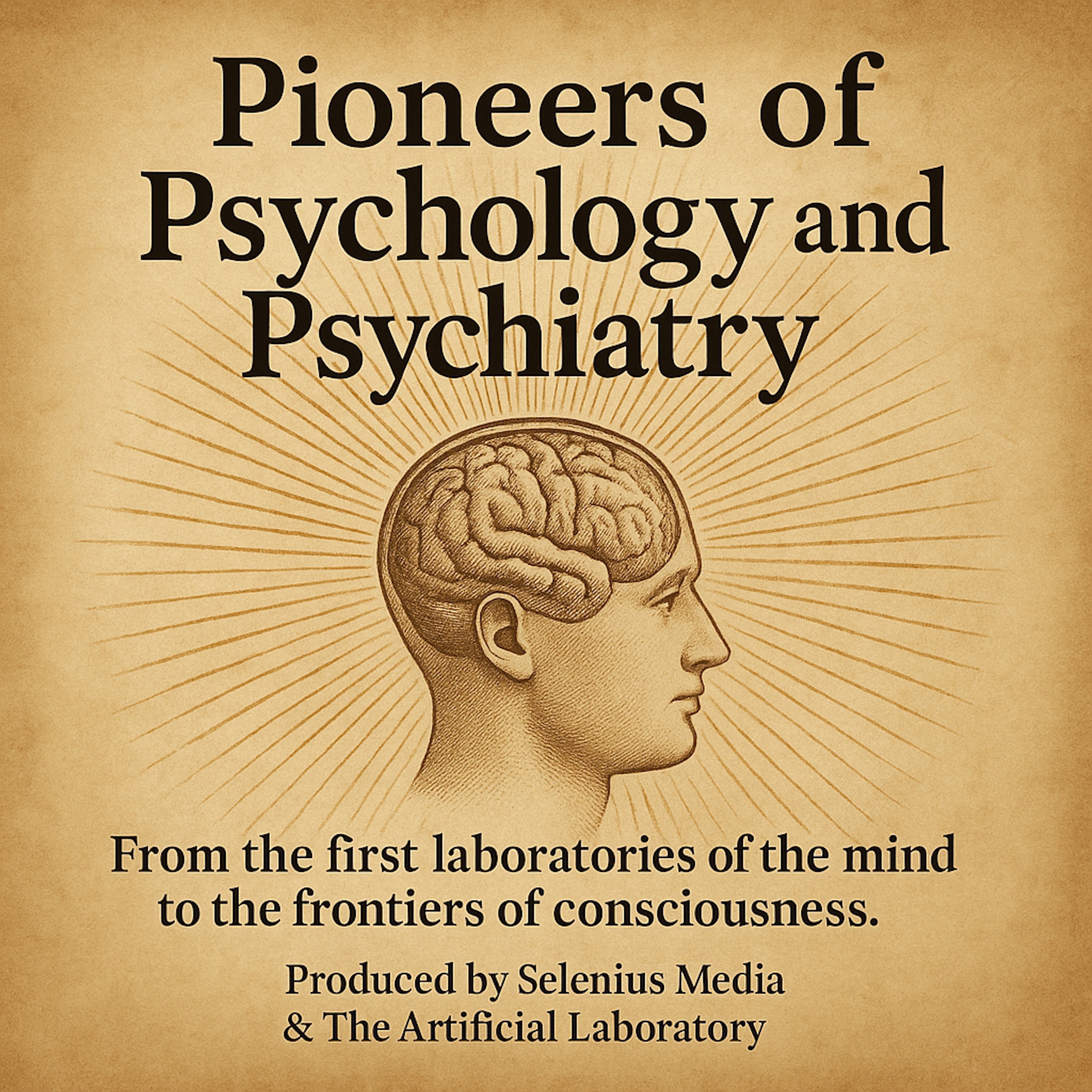
Pioneers of Psychology and PsychiatrySigmund Freud – The Unconscious SpeaksIn this episode, we descend into the hidden chambers of the human psyche with Sigmund Freud, the founder of psychoanalysis — a man who dared to suggest that most of what drives us lies beyond our awareness. In Freud’s Vienna, the language of hysteria, dreams, and desire became the language of science. He believed that beneath every action, slip of the tongue, and dream symbol, the unconscious was speaking.Freud’s theories of repression, defense, and sexuality scandalized his contemporaries and reshaped how we understand identity and motivation. Yet beneath his controversies was a revolutionary insight: that our mi...
2025-10-1630 min
AI - An Uncertain FutureAI - Timeline and Purpose: Integration v. InnovationInnovation dazzles, but implementation and integration take years. This episode explores the adoption curve—why authoritarian systems accelerate while democracies deliberate. The drivers are greed, control, power, but also curiosity and care. Resistance slows reckless rollouts, yet convenience pulls adoption forward. The key question is purpose: what is AI for, if so much of its use bends toward control?Selenius Media.
2025-10-1422 min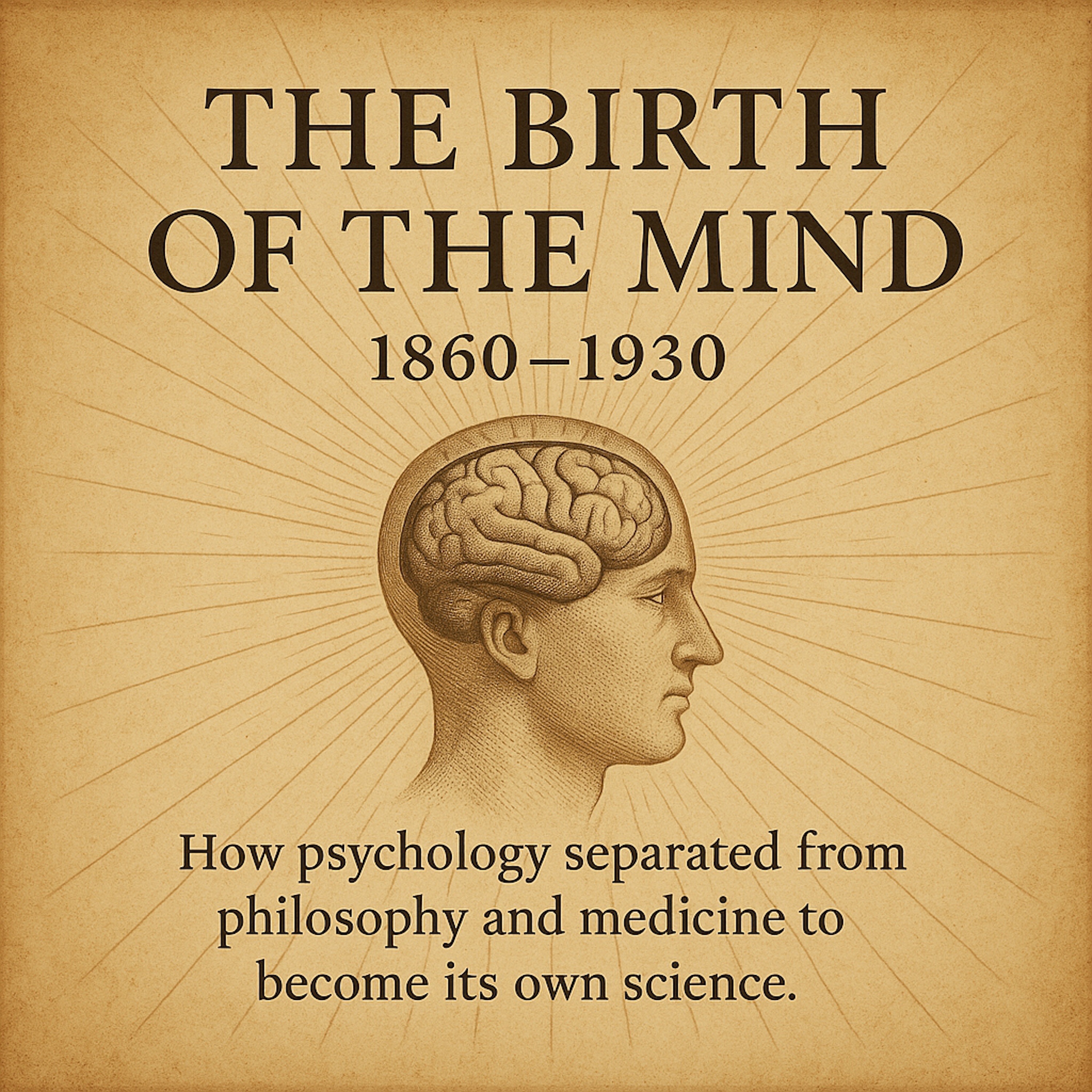
Pioneers of Psychology and PsychiatryJohn B. Watson – The Rise of BehaviorismBy the early 20th century, psychology was still searching for its identity. Then came John B. Watson, a man who declared war on introspection. “Psychology,” he said, “must discard all reference to consciousness.” With that, he founded behaviorism — the belief that the only thing worth studying was what could be seen, measured, and controlled.Watson’s experiments were bold and often controversial. He conditioned fear in a child known as Little Albert, showing how emotions could be trained like reflexes. He viewed humans not as mysteries of the soul, but as organisms shaped by their environment — programmable, predictable, a...
2025-10-1428 min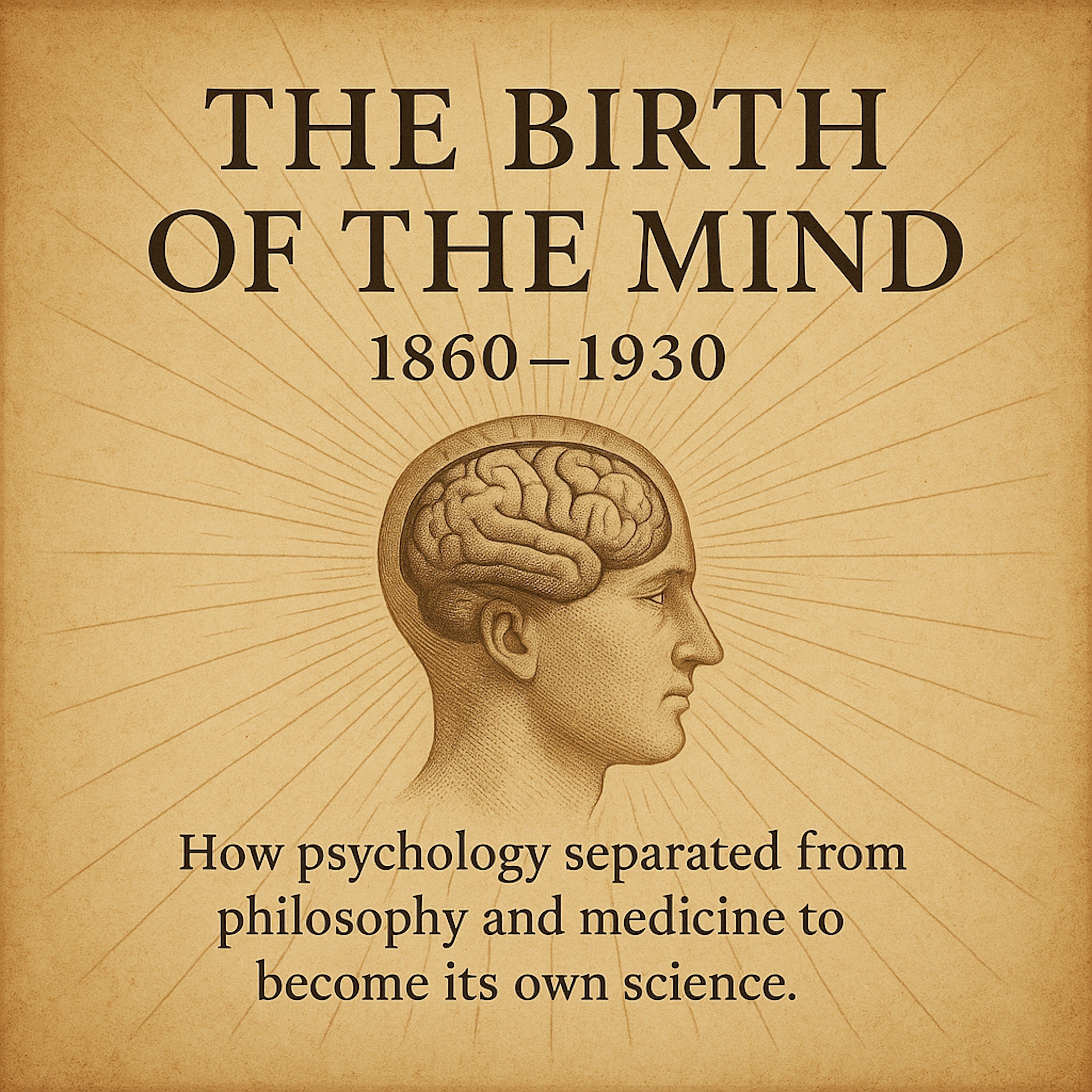
Pioneers of Psychology and PsychiatryIvan Pavlov – The Dog, the Bell, and the ReflexFrom saliva to behaviorism — the roots of conditioning.Pavlov did not come to psychology by intention. He came from the hard school of physiology, a discipline that prized measurable processes and unromantic claims. He trained hands to do delicate surgery on small nerves and glands, and he built apparatus that could give the body a chance to tell the truth without theatrics. Digestion, to him, was a symphony of secretions and muscular waves; he wrote a great treatise on it and won the highest prize his profession could bestow. In 1904 the Nobel committee called his name for di...
2025-10-1129 min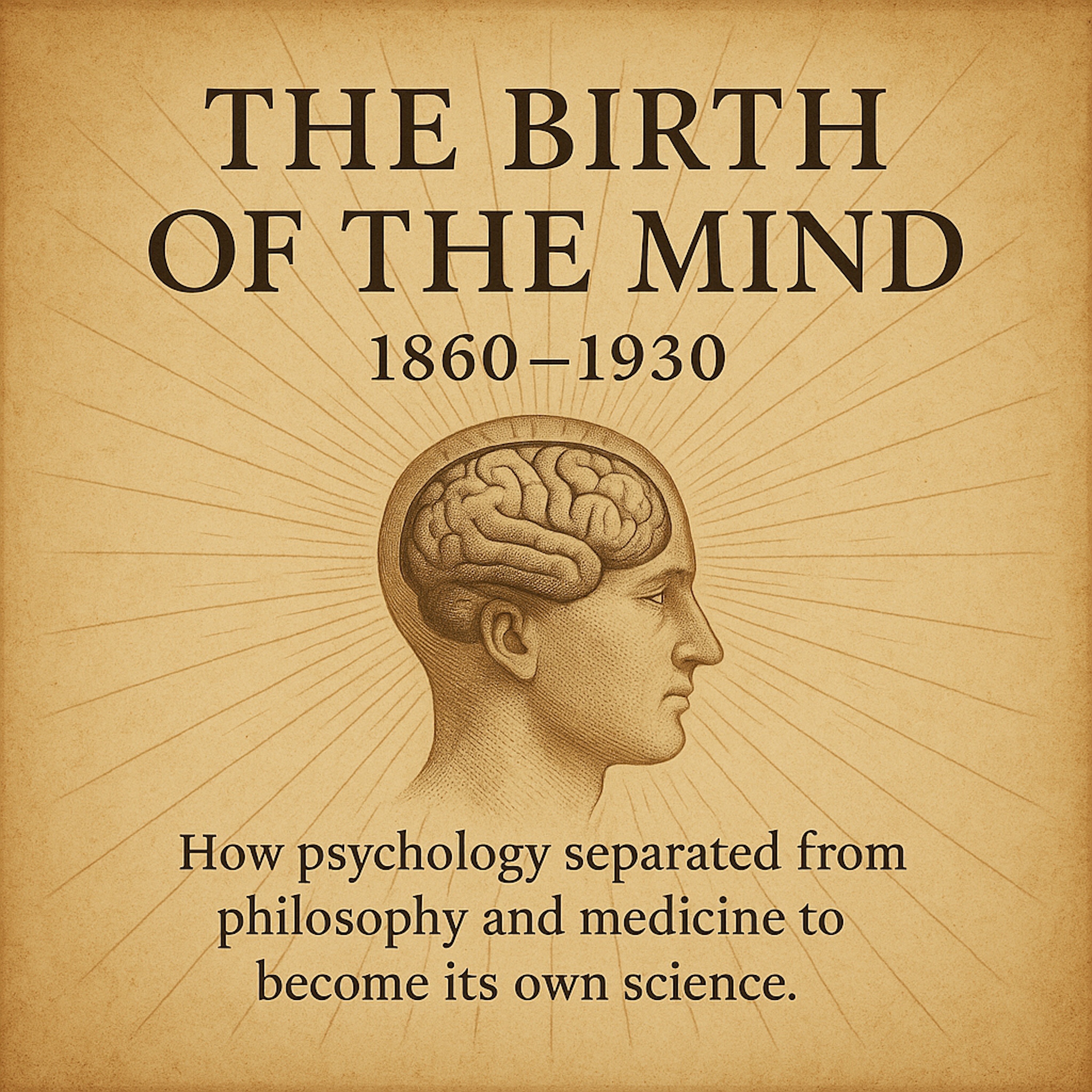
Pioneers of Psychology and PsychiatryWilliam James – The Stream of ThoughtIn this episode, we meet the man who made psychology poetic — William James, the philosopher-psychologist who refused to believe the mind could be reduced to mere measurement. For James, consciousness wasn’t a series of isolated sensations, as Wundt claimed, but a stream — a flowing, ever-changing current that could never be captured in static experiments.James’s Principles of Psychology redefined the field. He explored habit, attention, emotion, and free will, showing that psychology could encompass both science and soul. His work bridged philosophy and physiology, and his classroom at Harvard became a meeting ground for thinkers who saw...
2025-10-1129 min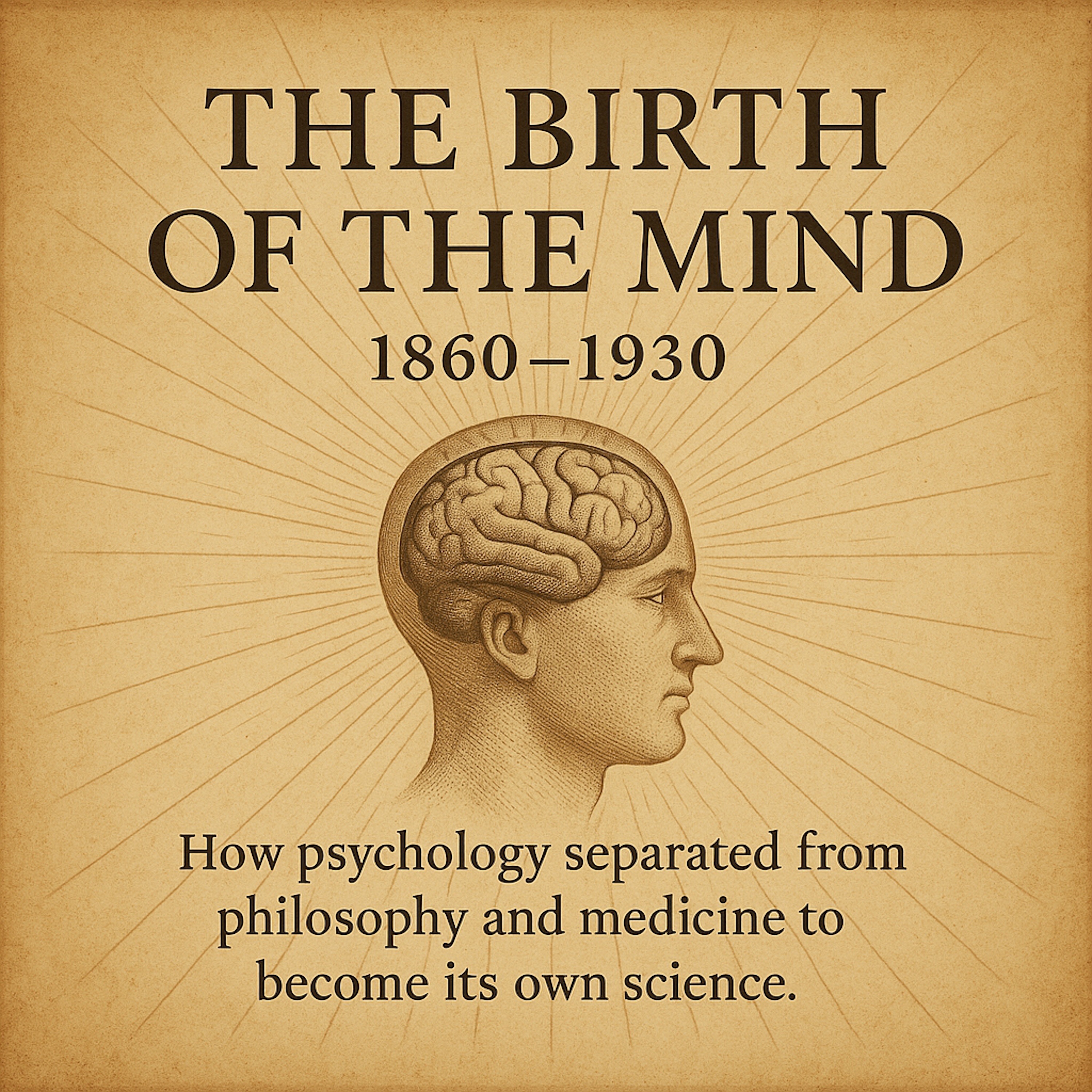
Pioneers of Psychology and PsychiatryWilhelm Wundt – The Laboratory of ConsciousnessIn this opening episode, we return to the late 19th century — to Leipzig, Germany — where a quiet revolution was unfolding. A man named Wilhelm Wundt stood at the threshold of a new science, asking a question that philosophers had debated for centuries but never dared to measure: what is the mind, and can it be studied?Wundt built the first laboratory devoted to experimental psychology, a place where thoughts, sensations, and reactions were recorded with the same precision as chemical reactions or physical forces. Inside his lab, students measured their response times to sounds and lights, seeking to u...
2025-10-1128 min
AI - An Uncertain FutureAI - Labor, Wages, and the Consumer ParadoxAutomation promises efficiency but shrinks the wage base that underpins consumer demand. This episode explores how AI hollows out the labor market, compresses wages, and erodes the social contract. Universal basic income emerges as a stopgap, but it cannot restore meaning to lives defined by work. Without redistributing gains through ownership or co-design, society risks a paradox: abundant output with too few consumers able to afford it, and a populace adrift in purposelessness.Selenius Media & The Artificial Laboratory
2025-10-1125 min
AI - An Uncertain FutureAI - While We Were SleepingAI integrated itself into essential services without public debate. Contracts embedded models in schools, hospitals, and city IT systems. The transition was subtle—dashboards, assistants, fraud detection—but irreversible once habits formed. This episode examines how adoption happened through procurement, not referendum, and how institutions traded resilience for optimization. When outages occur, there is no manual fallback. A city that never voted for AI wakes to find its systems cannot run without it.Selenius Media & The Artificial Laboratory
2025-10-1123 min
AI - An Uncertain FutureOpening of the Black BoxThis episode traces the quiet entry of artificial intelligence into daily life, from hospitals to city governments. What began as pilots and convenience has become reliance, reshaping decision-making in ways the public never voted on. The story is not about science fiction but about procurement, contracts, and defaults—how institutions hand over control bit by bit, until human oversight becomes ceremonial. The black box is already here, and society is inside it.Seleniusmedia.com
2025-10-1114 min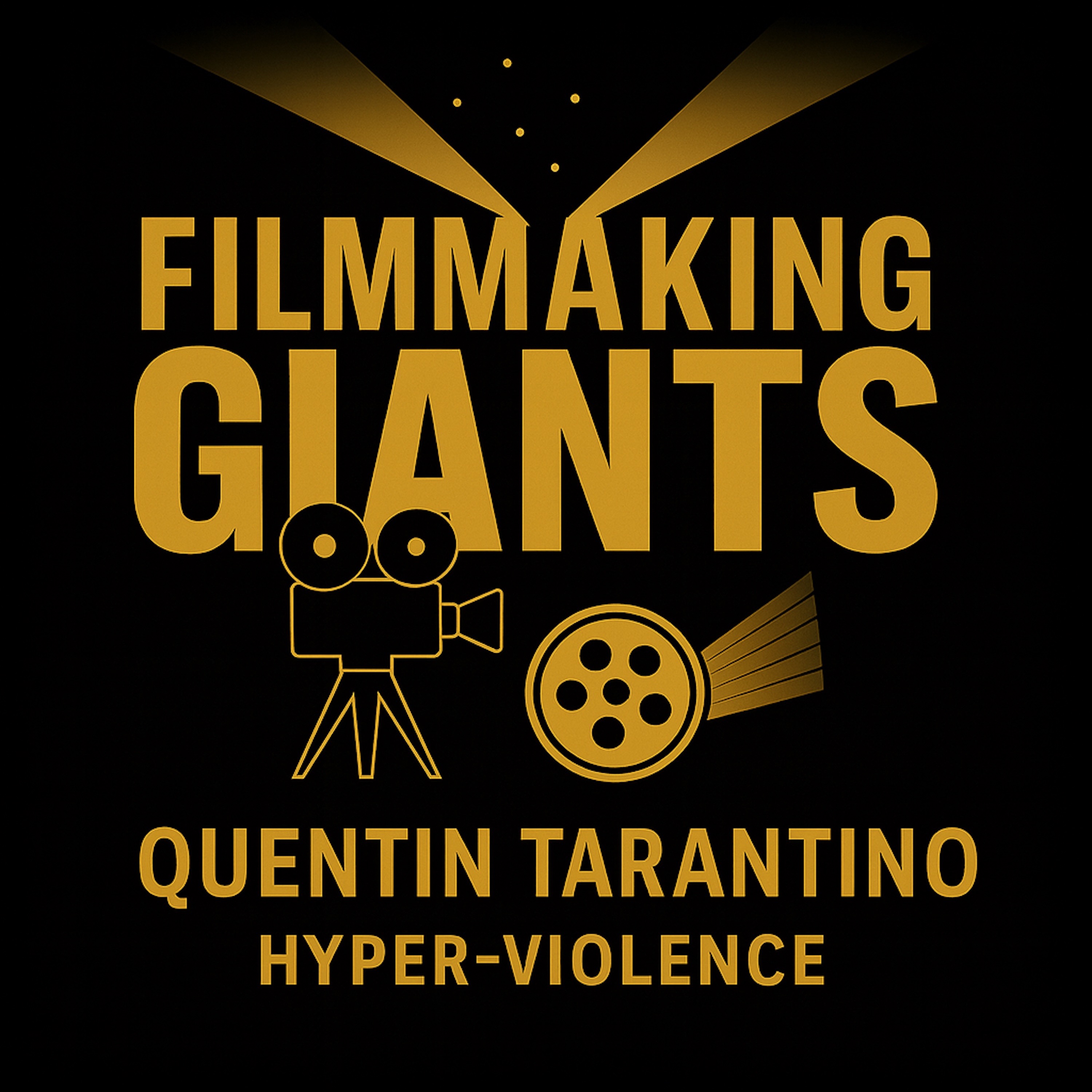
Film Making GiantsQuentin Tarantino – The Pop-Culture AlchemistQuentin Tarantino – The Pop-Culture AlchemistQuentin Tarantino burst onto the 1990s indie scene with a voice so distinctive it was impossible to ignore. Reservoir Dogs and Pulp Fiction rewrote dialogue, chronology, and violence into something electric and new. With Kill Bill, Inglourious Basterds, and Once Upon a Time… in Hollywood, he transformed cinema into a playground of genre, homage, and invention. Tarantino’s films revel in language, in character, in sudden bursts of brutality and tenderness. He is a filmmaker who turns his encyclopedic love of movies into something uniquely his own: cinema about cinema, but always pulsin...
2025-10-1025 min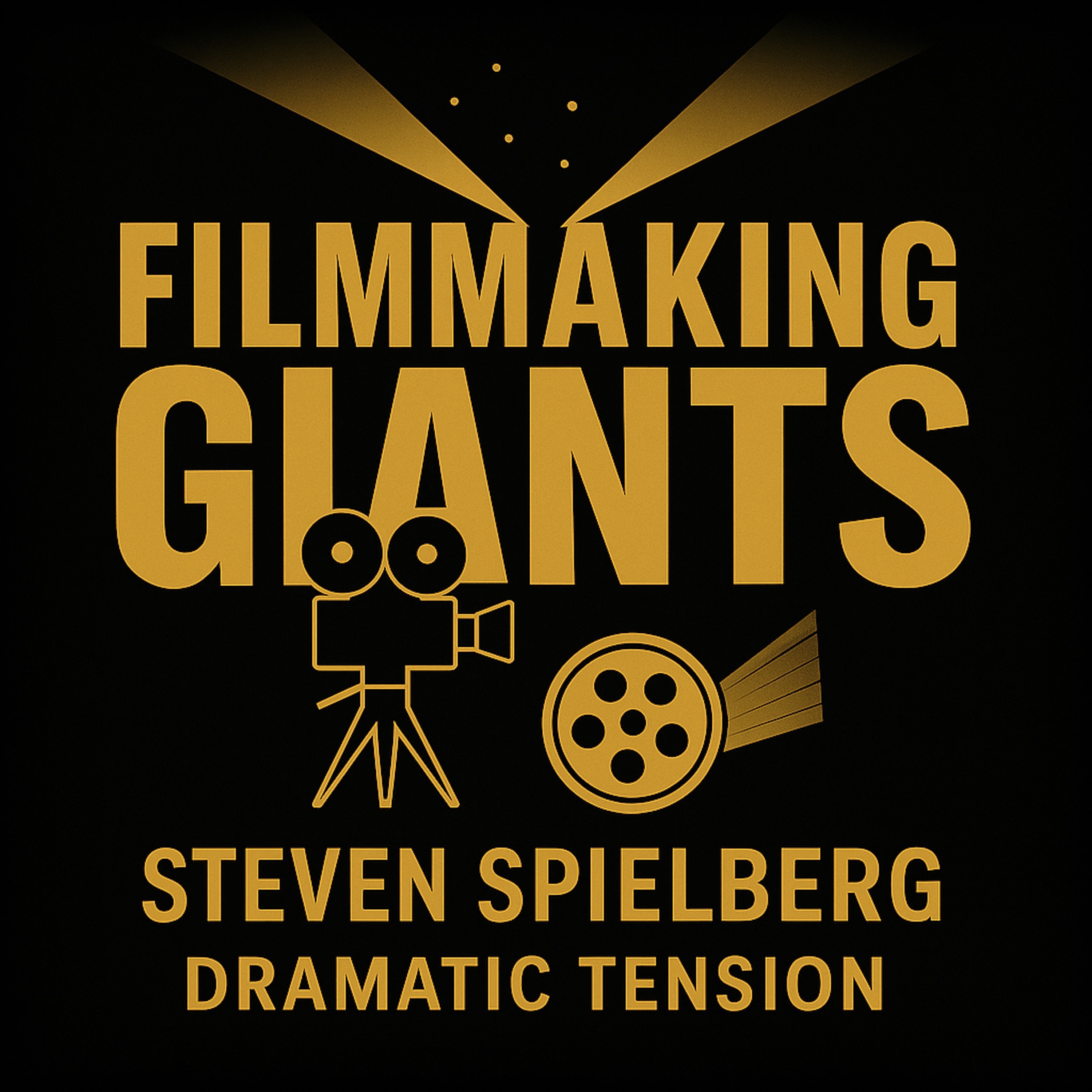
Film Making GiantsSteven Spielberg – The Master of Modern BlockbustersSteven Spielberg – The Master of Modern BlockbustersFrom the shark-infested waters of Jaws to the wonder of E.T., the terror of Jurassic Park and the heart-wrenching humanity of Schindler’s List, Steven Spielberg redefined what popular cinema could be. His films balance spectacle with intimacy, pairing cutting-edge craft with timeless storytelling. Spielberg has taken audiences on adventures across deserts and into outer space, but at the heart of his work is always the search for connection, hope, and awe. Few filmmakers have shaped the collective imagination so profoundly.Produced by Selenius Media — Music by The Ar...
2025-10-1023 min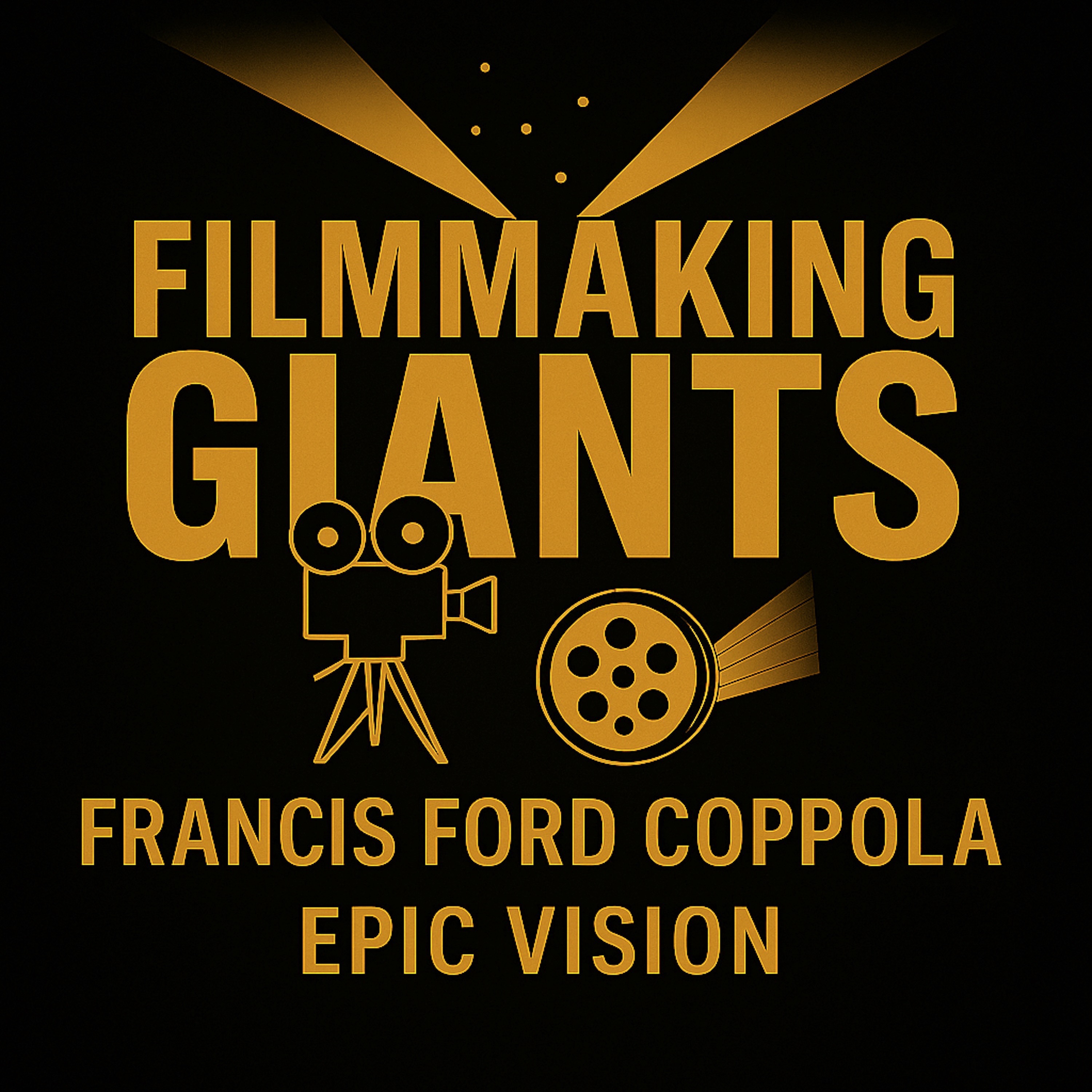
Film Making GiantsFrancis Ford Coppola – The Epic Dreamer of American CinemaFrancis Ford Coppola – The Epic Dreamer of American CinemaFrancis Ford Coppola reshaped Hollywood with ambition that matched his art. From the family saga of The Godfather to the operatic madness of Apocalypse Now, his films fuse intimacy with grandeur, personal vision with cultural myth. Coppola dreamed of building an artist’s studio in the heart of American cinema and paid the price for chasing visions larger than life. In this episode of Filmmaking Giants, we trace his journey through triumphs, disasters, and enduring influence — the story of a filmmaker who dared to imagine movies as both person...
2025-10-1010 min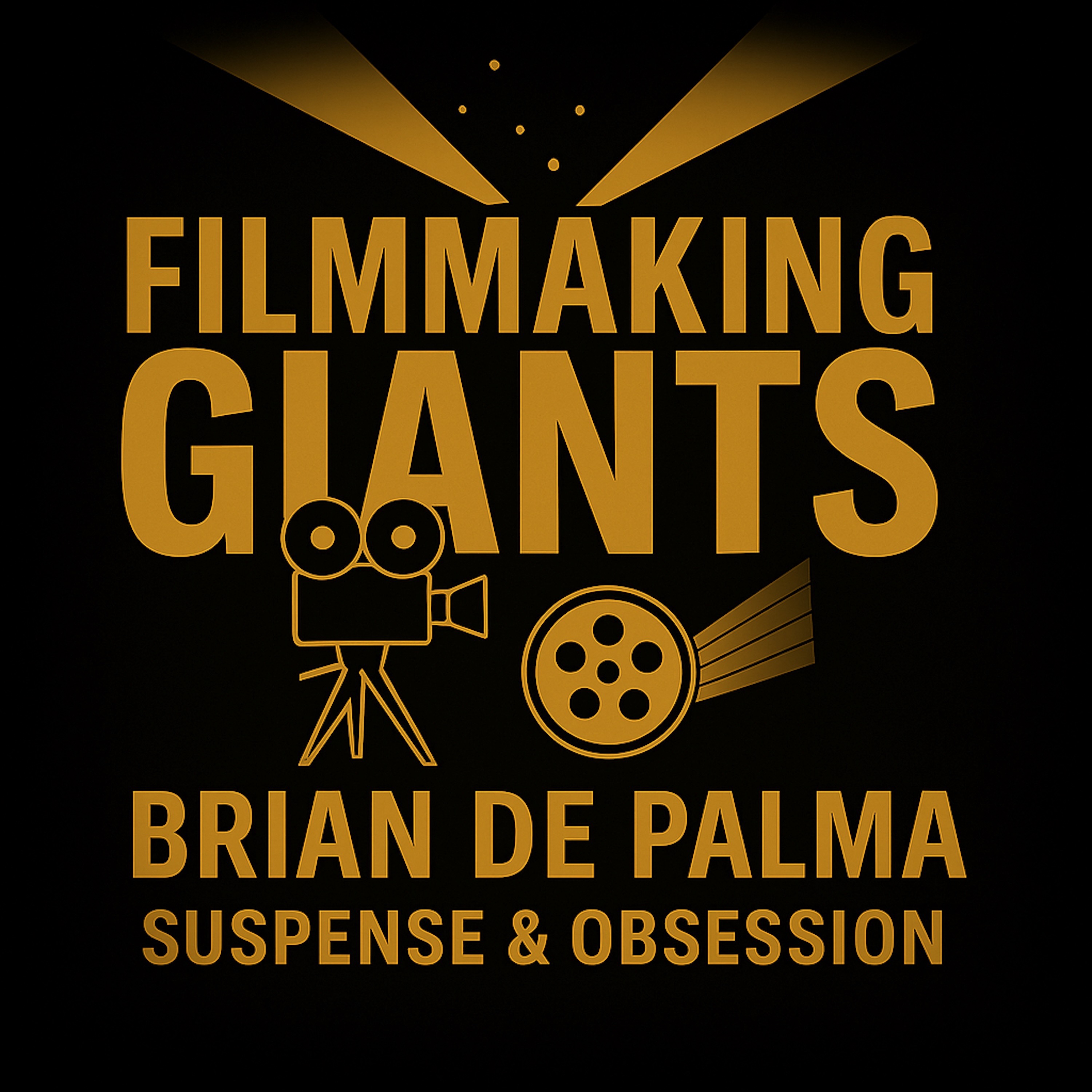
Film Making GiantsBrian De Palma – The Stylist of ObsessionBrian De Palma – The Stylist of ObsessionBrian De Palma took Hitchcock’s grammar and twisted it into his own daring language. His camera floats, glides, and splits the screen to expose both spectacle and voyeurism. In films like Carrie, Blow Out, and Scarface, De Palma created visions of violence, desire, and paranoia that sear themselves into the eye. His cinema is unapologetically visual, obsessed with the power and danger of images. Love him or condemn him, De Palma ensures you cannot look away.Produced by Selenius Media — Music by The Artificial Laboratory.
2025-10-1009 min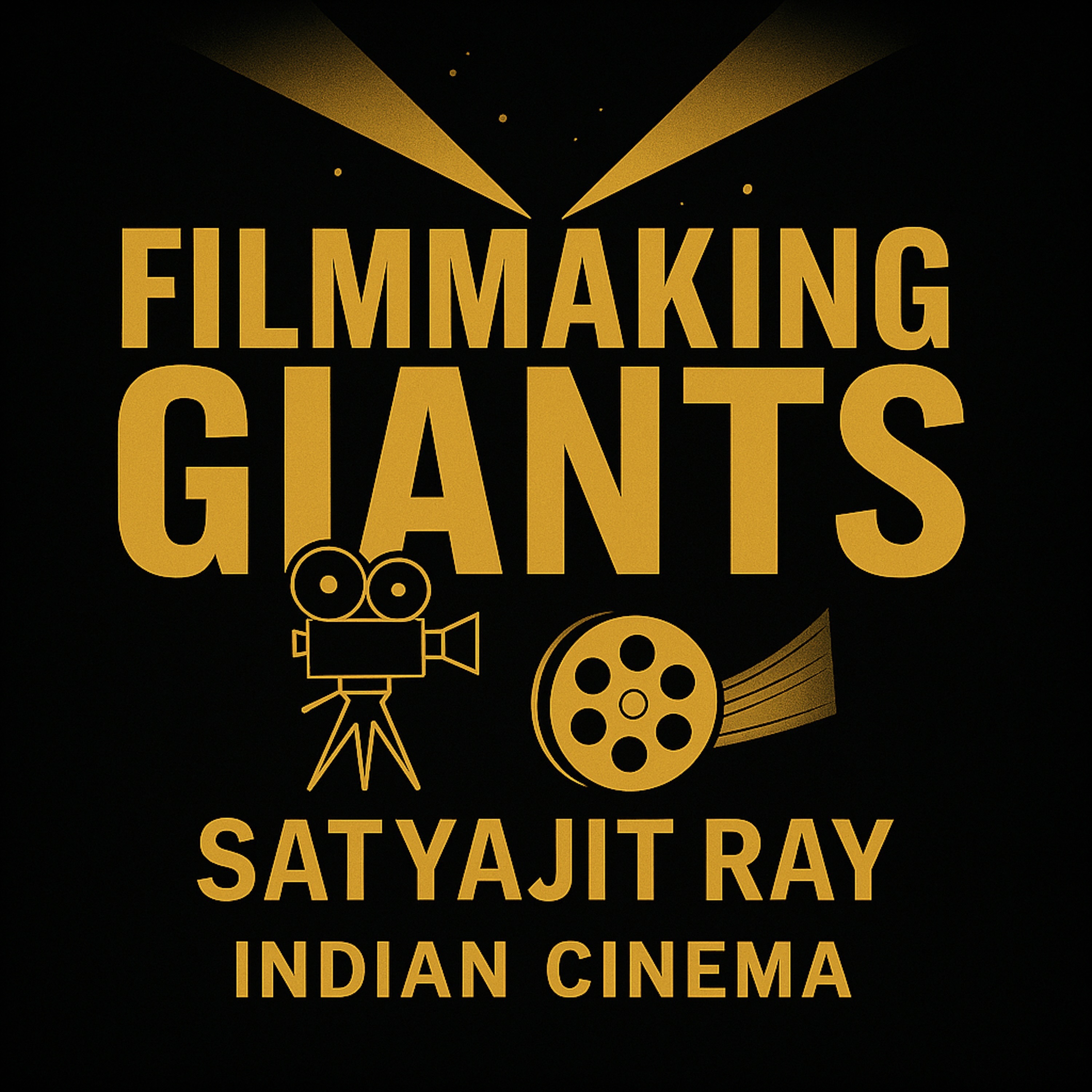
Film Making GiantsSatyajit Ray – The Humanist VisionarySatyajit Ray – The Humanist VisionaryIn the villages and cities of Bengal, Satyajit Ray found stories that spoke to the entire world. His debut, Pather Panchali, announced a new voice in world cinema, blending neorealism with lyrical grace. Through the Apu Trilogy and beyond, Ray’s films reveal ordinary lives with dignity, compassion, and profound insight. He worked as writer, composer, designer, and director, shaping every detail of his films. Ray’s cinema is both local and universal, a testament to the power of empathy and storytelling.Produced by Selenius Media — Music by The Artificial Laborato
2025-10-1015 min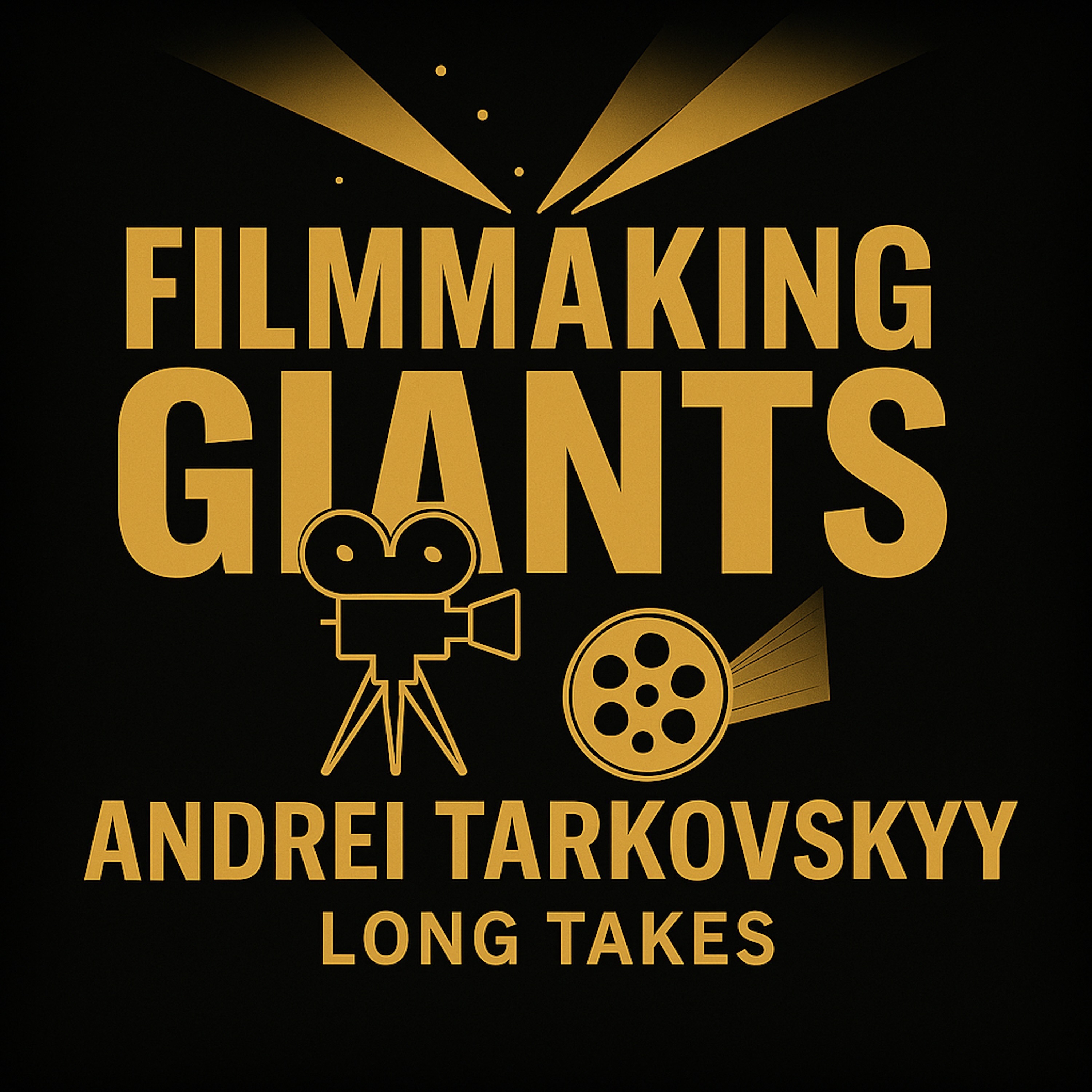
Film Making GiantsAndrei Tarkovsky – The Sculptor of TimeAndrei Tarkovsky – The Sculptor of TimeAndrei Tarkovsky believed cinema’s highest calling was spiritual. In Andrei Rublev, Solaris, and Stalker, time itself seems to flow differently, long takes unfolding with meditative power. His films are filled with water, fire, dreams, and landscapes that mirror inner lives. Tarkovsky’s cinema is not spectacle but pilgrimage, asking viewers to slow down, to reflect, to search for meaning. His influence reaches far beyond Russia, teaching generations of filmmakers that the moving image can be a form of prayer.Produced by Selenius Media — Music by The Artificial Laboratory.
2025-10-1020 min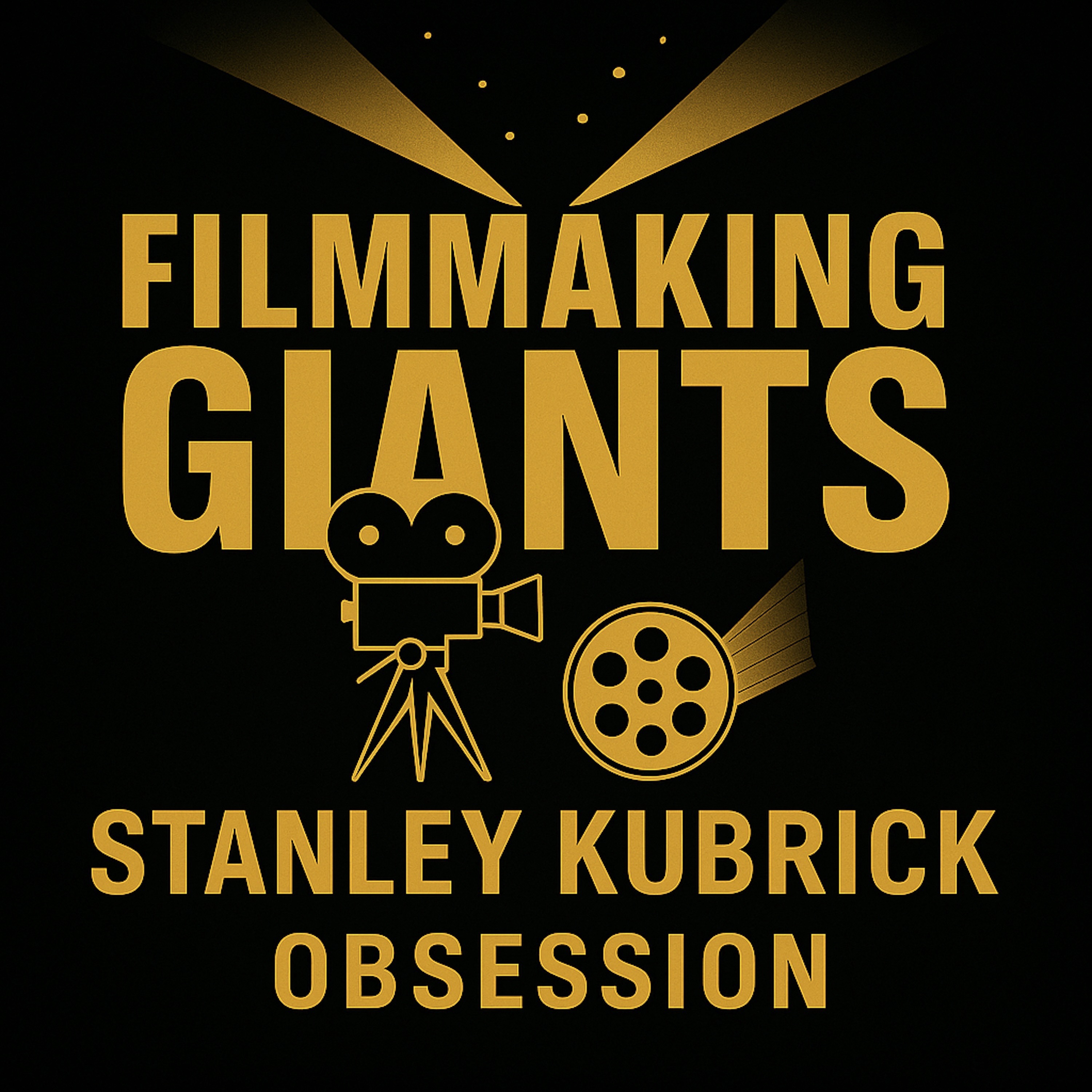
Film Making GiantsStanley Kubrick – The Architect of ObsessionStanley Kubrick – The Architect of ObsessionStanley Kubrick stands as one of cinema’s most uncompromising visionaries. From Paths of Glory to 2001: A Space Odyssey, from A Clockwork Orange to The Shining, each film is a meticulously crafted universe. Kubrick pursued perfection with an obsessive eye for detail, often pushing cast, crew, and technology to the breaking point. His films combine the clinical with the sublime, dissecting violence, desire, power, and the human condition. To watch Kubrick is to enter a world where every frame is a question, and the answers echo long after the credits roll.
2025-10-1038 min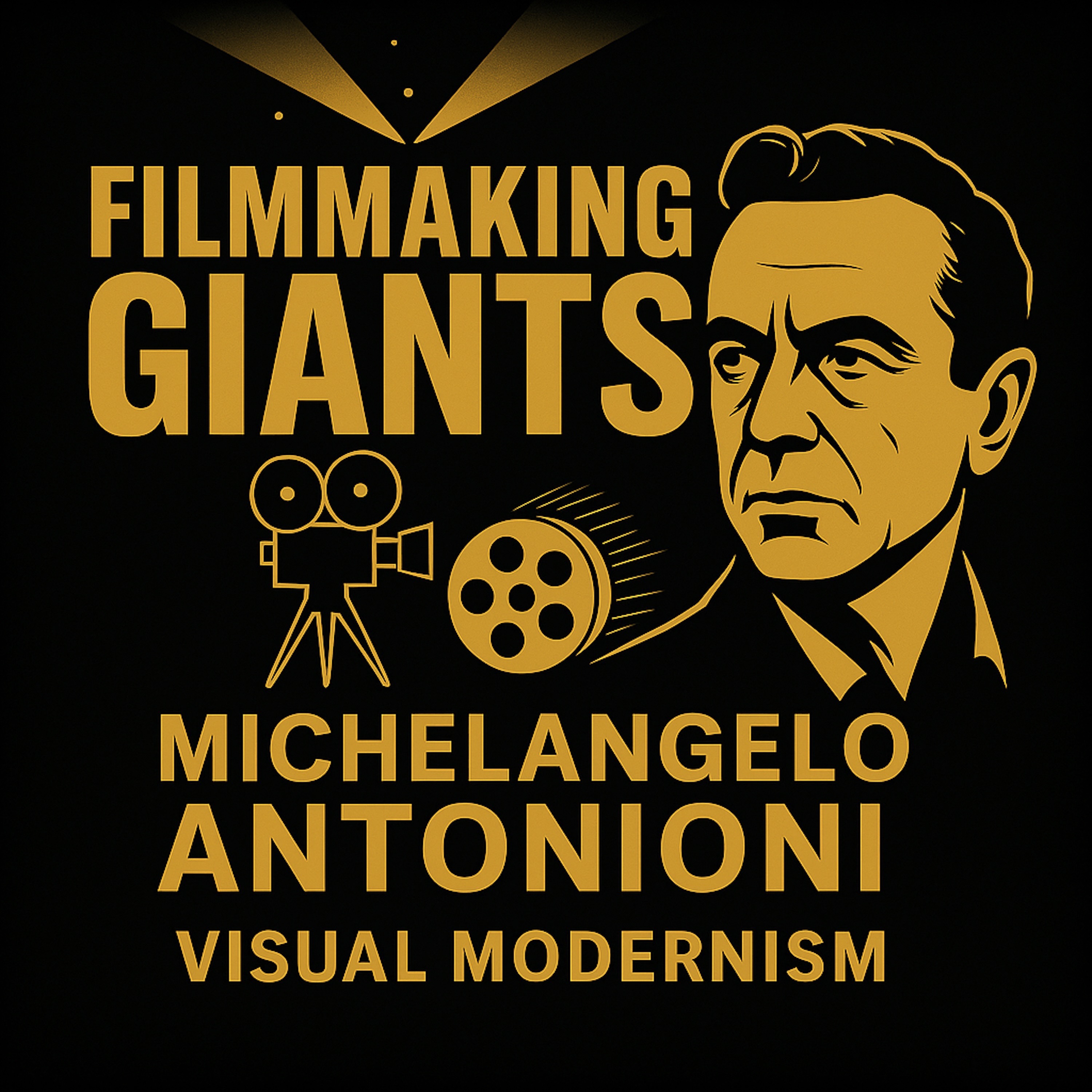
Film Making GiantsMichelangelo Antonioni – The Poet of AlienationMichelangelo Antonioni – The Poet of AlienationIn the quiet landscapes of postwar Italy, Michelangelo Antonioni discovered stories in silences and empty spaces. His films like L’Avventura, La Notte, and Blow-Up do not rush to explain but invite us to feel the disconnection of modern life. He turned alienation into an aesthetic, using architecture, framing, and the absence of action to reveal characters adrift in a changing world. Antonioni showed that cinema could capture not just stories but moods, uncertainties, and the subtle dissonances of existence.Produced by Selenius Media — Music by The Artificial Laboratory.
2025-10-1019 min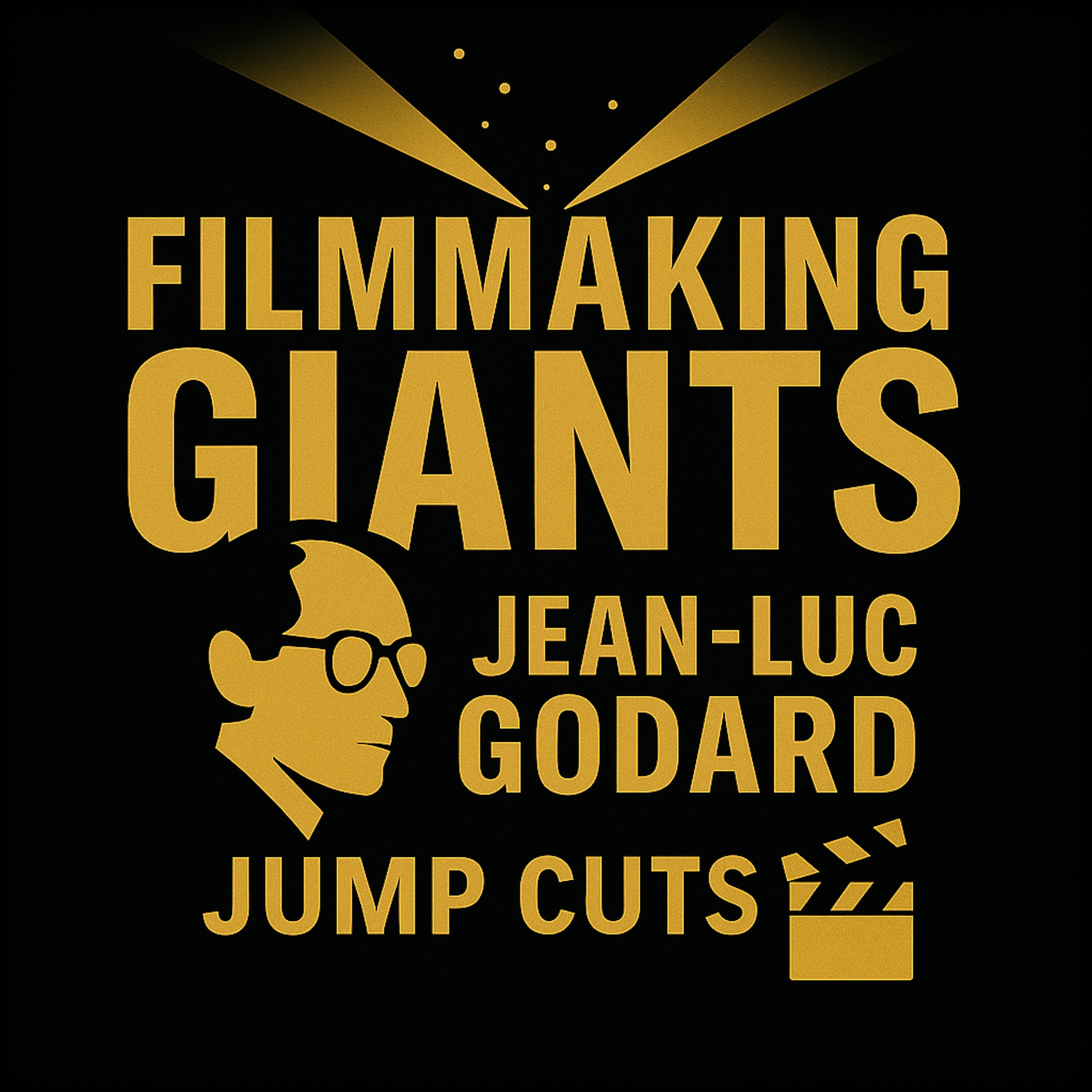
Film Making GiantsJean-Luc Godard – The Rebel of the New WaveJean-Luc Godard – The Rebel of the New WaveIn this episode of Filmmaking Giants, we step into postwar Paris, where a restless critic-turned-director picked up a handheld camera and rewrote the grammar of cinema. Jean-Luc Godard’s Breathless shattered conventions with jump cuts, direct address, and the energy of a city alive with change. For the next decades, his films questioned not only society but the medium itself, blending philosophy, politics, and pop culture. Godard forced audiences to see movies as arguments and experiments, not just entertainment. His rebellious spirit continues to inspire filmmakers to break the rule...
2025-10-1016 min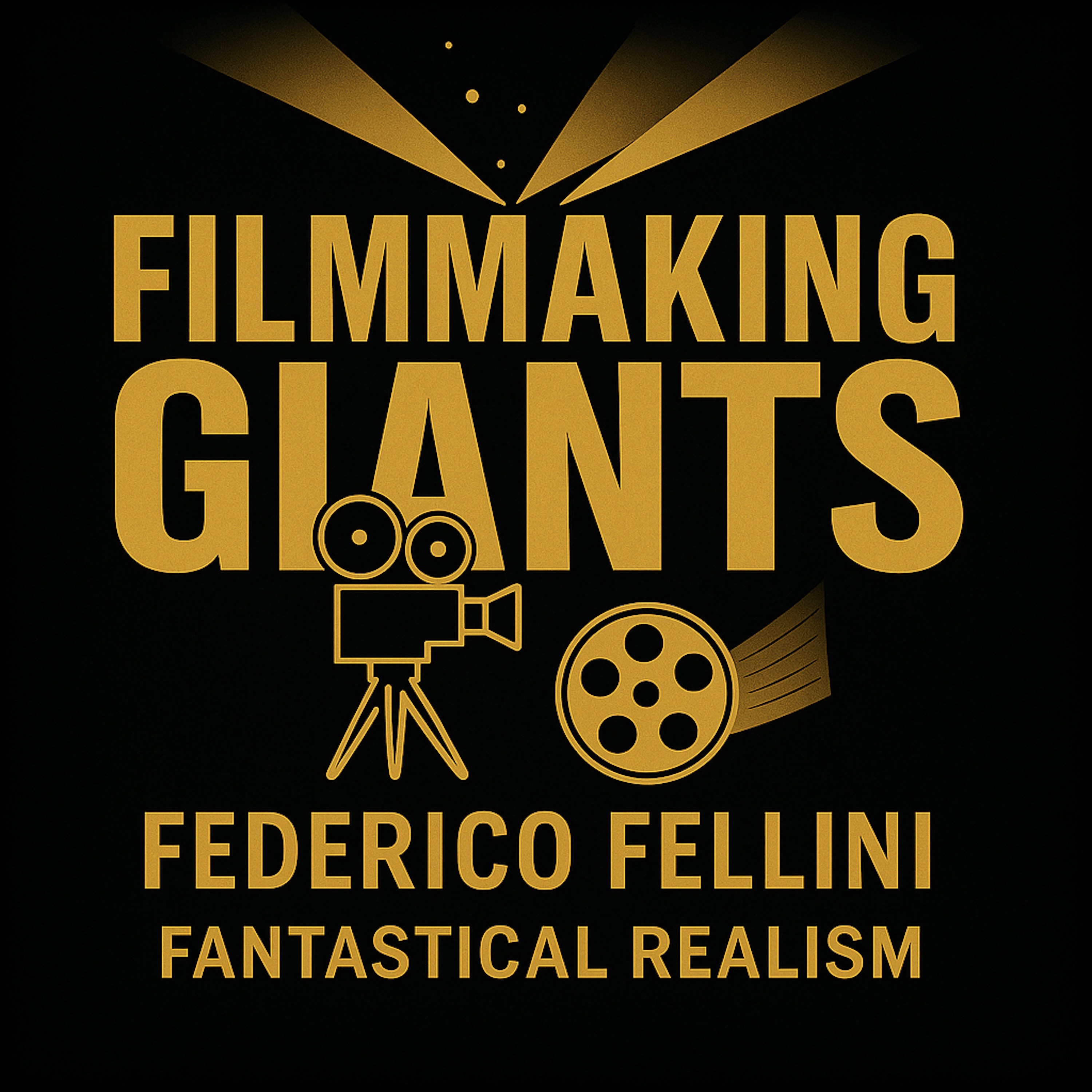
Film Making GiantsFederico Fellini – The Dreamer of the ScreenFederico Fellini – The Dreamer of the ScreenIn this episode of Filmmaking Giants, we wander into the carnivals and dreamscapes of Federico Fellini. From La Strada to La Dolce Vita to 8½, Fellini fused memory, fantasy, and spectacle into a cinema of wonder. His films celebrated both the grotesque and the divine, the circus and the cathedral, showing that life itself is a mixture of tragedy and comedy. Fellini’s imagination reshaped cinematic language, making film a medium of dreams as much as reality.Produced by Selenius Media — Music by The Artificial Laboratory.
2025-10-1021 min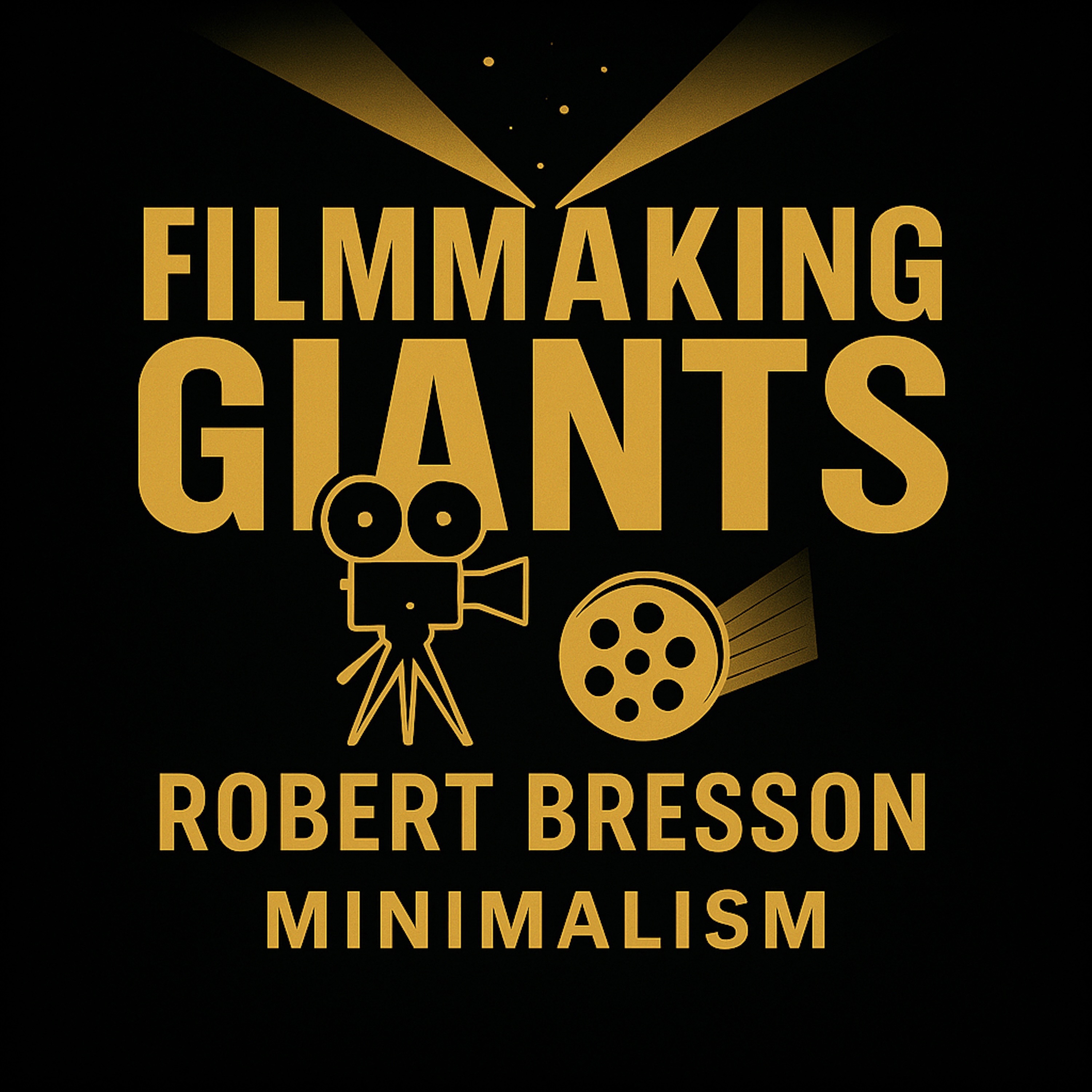
Film Making GiantsRobert Bresson – The Ascetic of CinemaRobert Bresson – The Ascetic of CinemaIn this episode of Filmmaking Giants, we explore Robert Bresson, whose austere, spiritual films stripped cinema to its barest essentials. With non-actors, minimal music, and an emphasis on gesture and silence, Bresson crafted works like Pickpocket and Au Hasard Balthazar that achieve transcendent power. His style was severe but luminous, pointing beyond the material world to questions of grace, redemption, and suffering. Bresson’s influence echoes across modern cinema, reminding us that restraint can reveal the deepest truths.Produced by Selenius Media — Music by The Artificial Laboratory.
2025-10-1015 min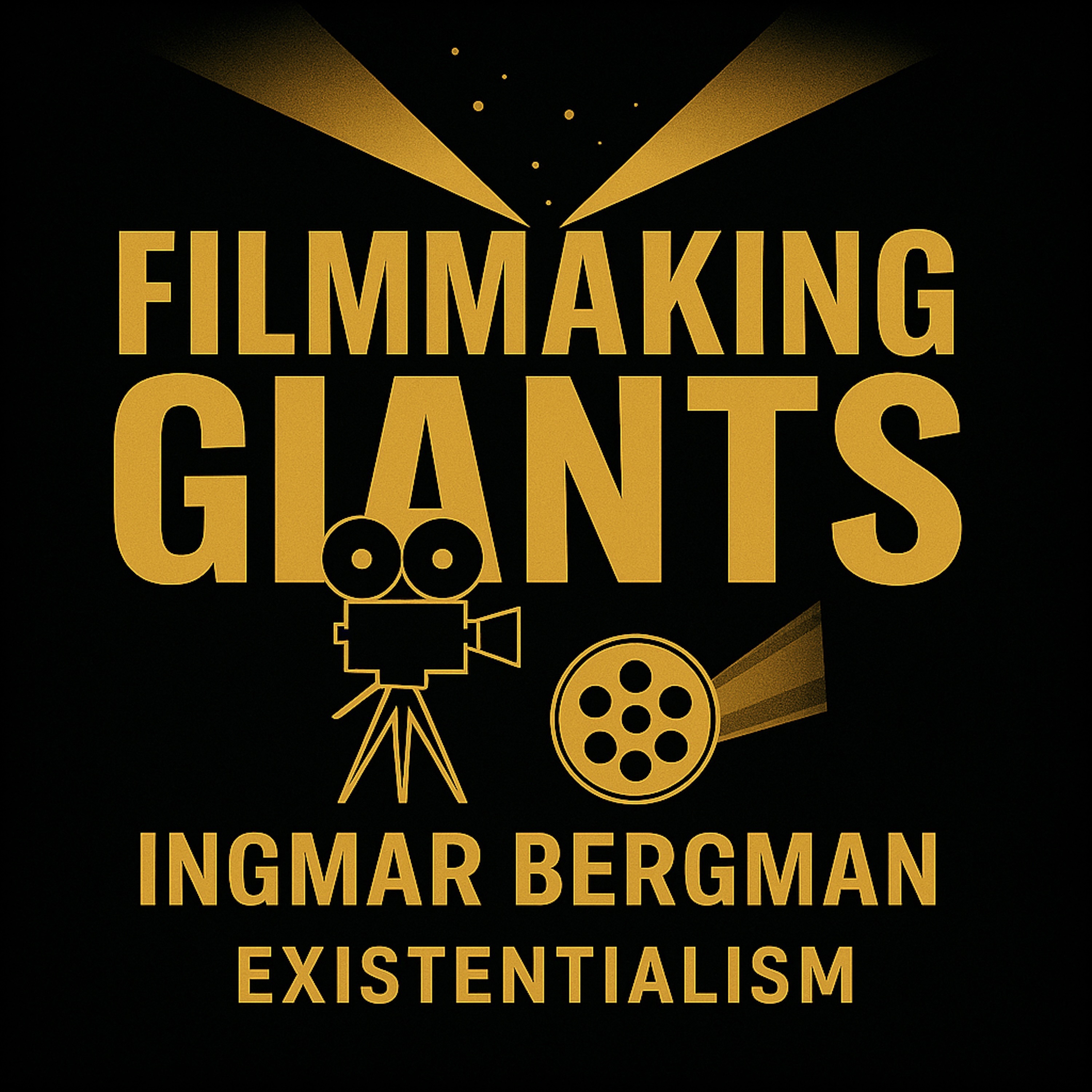
Film Making GiantsIngmar Bergman – The Cinema of the SoulIn this episode of Filmmaking Giants, we descend into the searching, often painful world of Ingmar Bergman. Through works like The Seventh Seal, Persona, and Fanny and Alexander, Bergman confronted mortality, faith, love, and despair with unflinching honesty. His films probed the inner life of the soul, using stark imagery and searing performances to ask what it means to be human. For Bergman, cinema was not escape but confrontation—the mirror of our deepest fears and longings.Produced by Selenius Media — Music by The Artificial Laboratory.
2025-10-1016 min
Film Making GiantsYasujiro Ozu – The Poet of Everyday LifeYasujiro Ozu – The Poet of Everyday LifeIn this episode of Filmmaking Giants, we step into the quiet rooms of Yasujiro Ozu, whose simple domestic dramas like Tokyo Story reveal the depth of ordinary existence. Using low, meditative camera angles and a style stripped of ornament, Ozu created films that radiate tenderness and melancholy. His portraits of family life, generational change, and impermanence make him one of cinema’s most profound philosophers. Ozu’s work reminds us that in the stillness of daily life, eternity whispers.Produced by Selenius Media — Music by The Artificial Laboratory.
2025-10-1016 min
Film Making GiantsAkira Kurosawa – The Bridge Between East and WestAkira Kurosawa – The Bridge Between East and WestIn this episode of Filmmaking Giants, we honor Akira Kurosawa, the Japanese master whose films such as Rashomon, Seven Samurai, and Ikiru reached across cultures and inspired generations of filmmakers worldwide. Kurosawa blended Japanese tradition with universal themes, fusing the discipline of samurai epics with the moral dilemmas of modern life. His dynamic camera work, ensemble storytelling, and humanistic vision reshaped global cinema, influencing everyone from Sergio Leone to George Lucas. Kurosawa showed that one filmmaker’s cultural roots could speak to the entire world.Produced by Sele...
2025-10-1018 min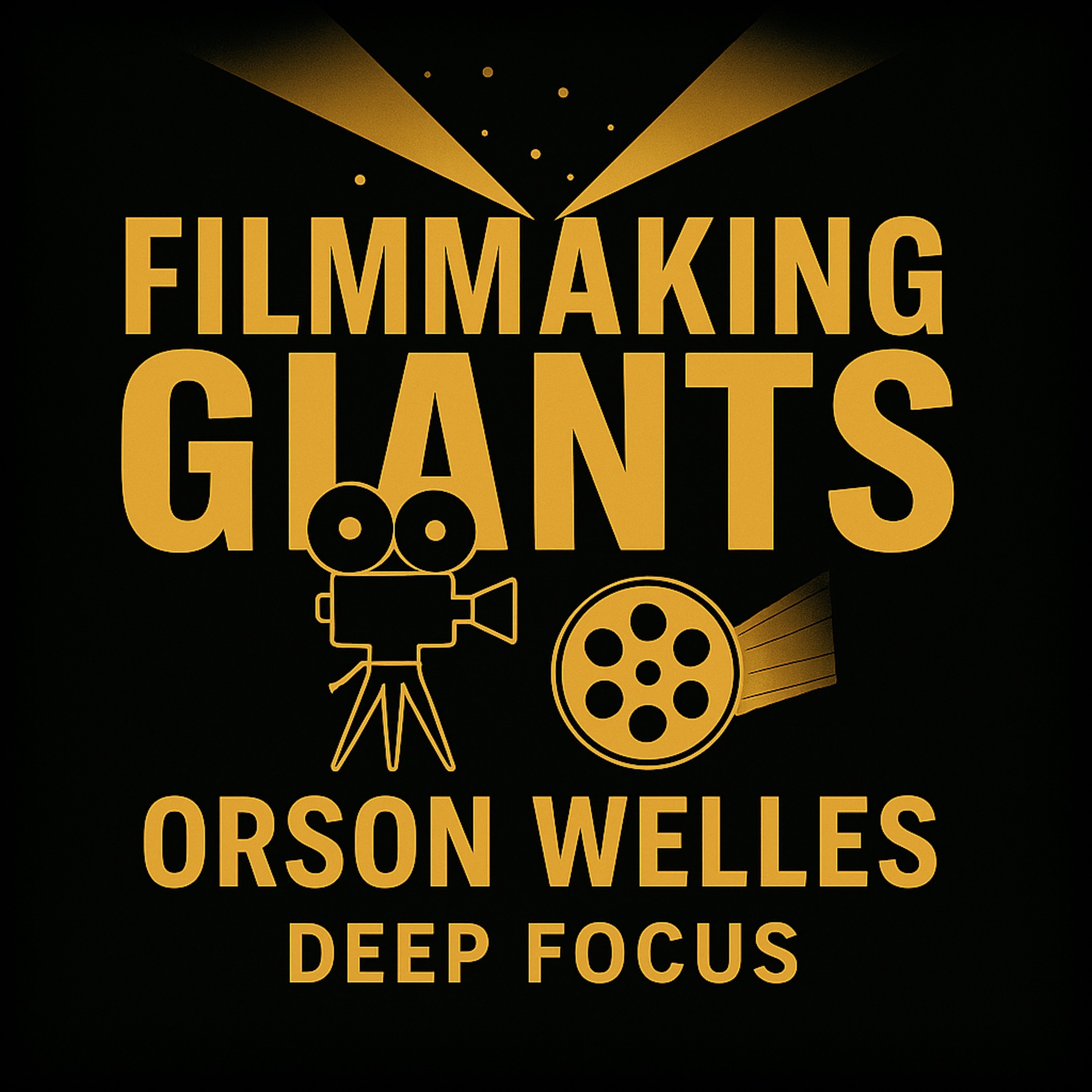
Film Making GiantsOrson Welles – The Rebel Who Changed CinemaOrson Welles – The Rebel Who Changed CinemaIn this episode of Filmmaking Giants, we trace the meteoric rise of Orson Welles, the audacious creator of Citizen Kane. At only twenty-five, Welles reshaped cinematic storytelling with deep focus photography, fractured timelines, and a willingness to challenge Hollywood itself. His career mixed brilliance with battles against studios, leaving behind both masterpieces and unfinished dreams. Welles proved that cinema could be as daring as any modern art form and that one visionary voice could permanently alter how movies are made and seen.Produced by Selenius Media — Music by The...
2025-10-1016 min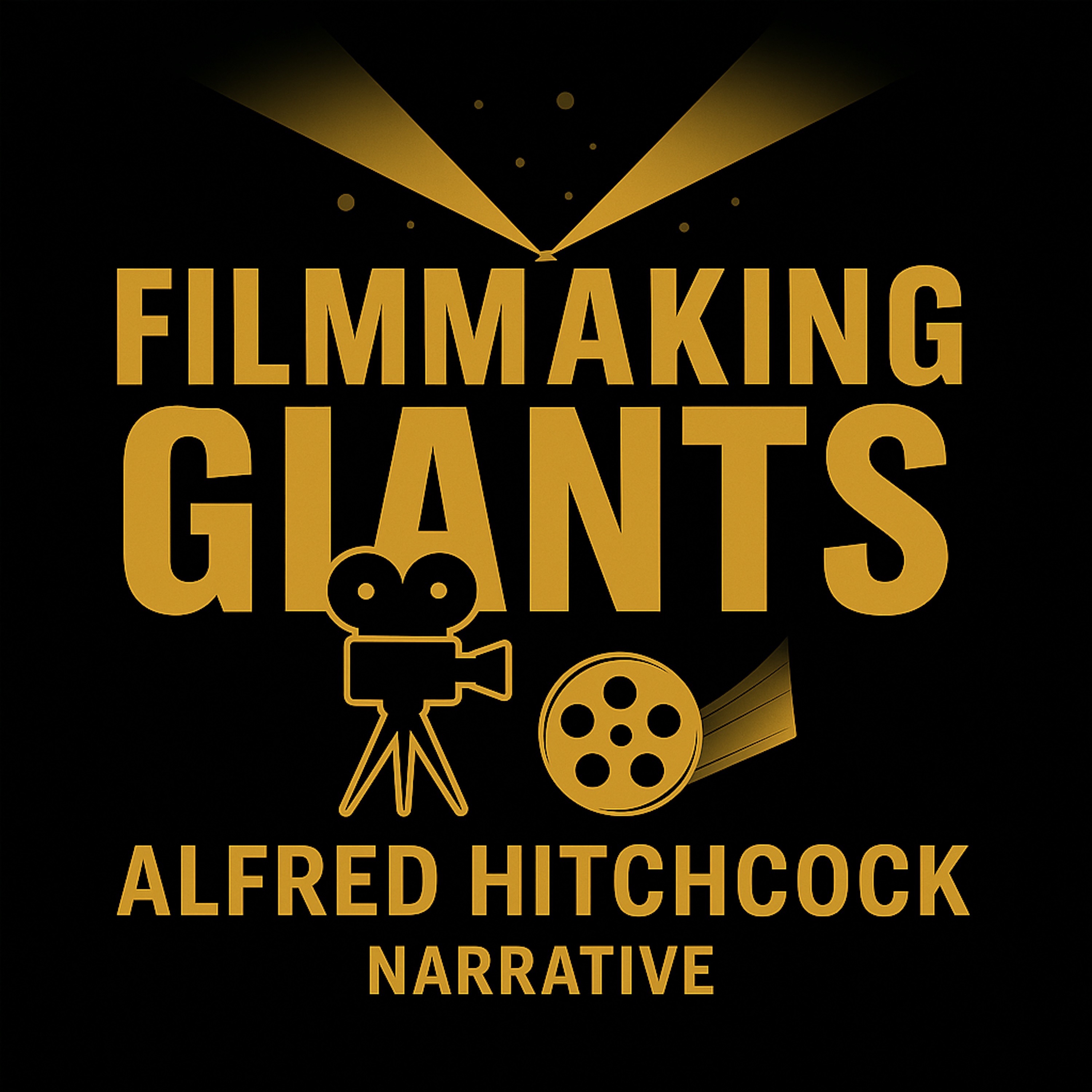
Film Making GiantsAlfred Hitchcock: SuspenseAlfred Hitchcock: SuspenseAlfred Hitchcock, the “Master of Suspense,” reshaped cinema with his uncanny ability to manipulate tension, psychology, and audience expectation. From Psycho to Vertigo and Rear Window, he turned fear into art, using innovative camera work, narrative twists, and meticulous control of detail. This episode explores how Hitchcock built suspense not just through story, but through the very language of film—forever influencing thrillers, mysteries, and modern storytelling.Produced by Selenius Media
2025-10-1018 min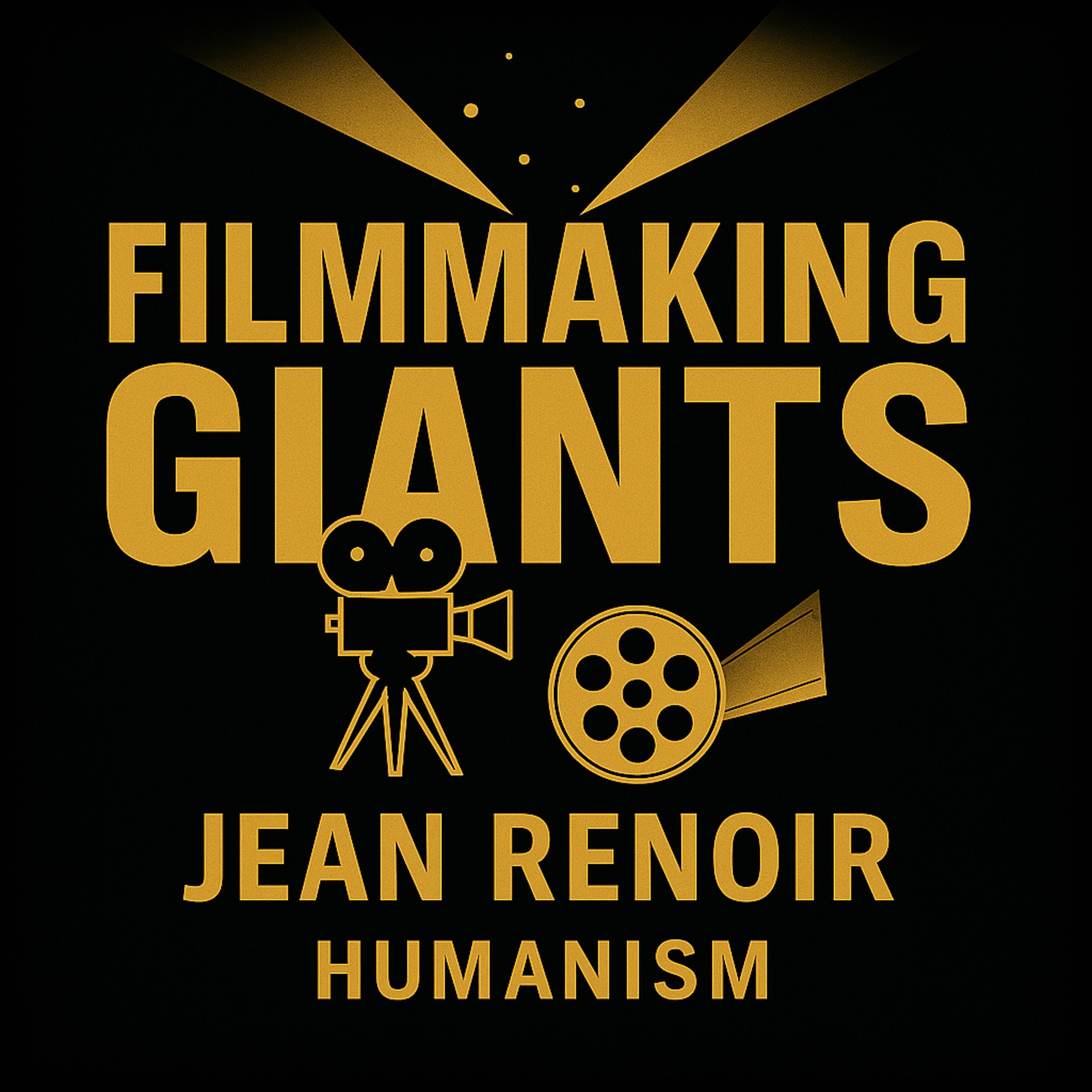
Film Making GiantsJean Renoir – The Humanist of the ScreenJean Renoir – The Humanist of the ScreenIn this episode of Filmmaking Giants, we enter the world of Jean Renoir, whose films captured both the beauty and the fragility of human life. From Grand Illusion to The Rules of the Game, Renoir brought warmth, irony, and compassion to stories set against the upheavals of the 20th century. His fluid camera work and layered characters revealed a cinema of empathy, reminding us that beneath class and conflict, all people share the same human heart. Renoir’s artistry helped shape world cinema into a medium not just of spectacle but...
2025-10-1016 min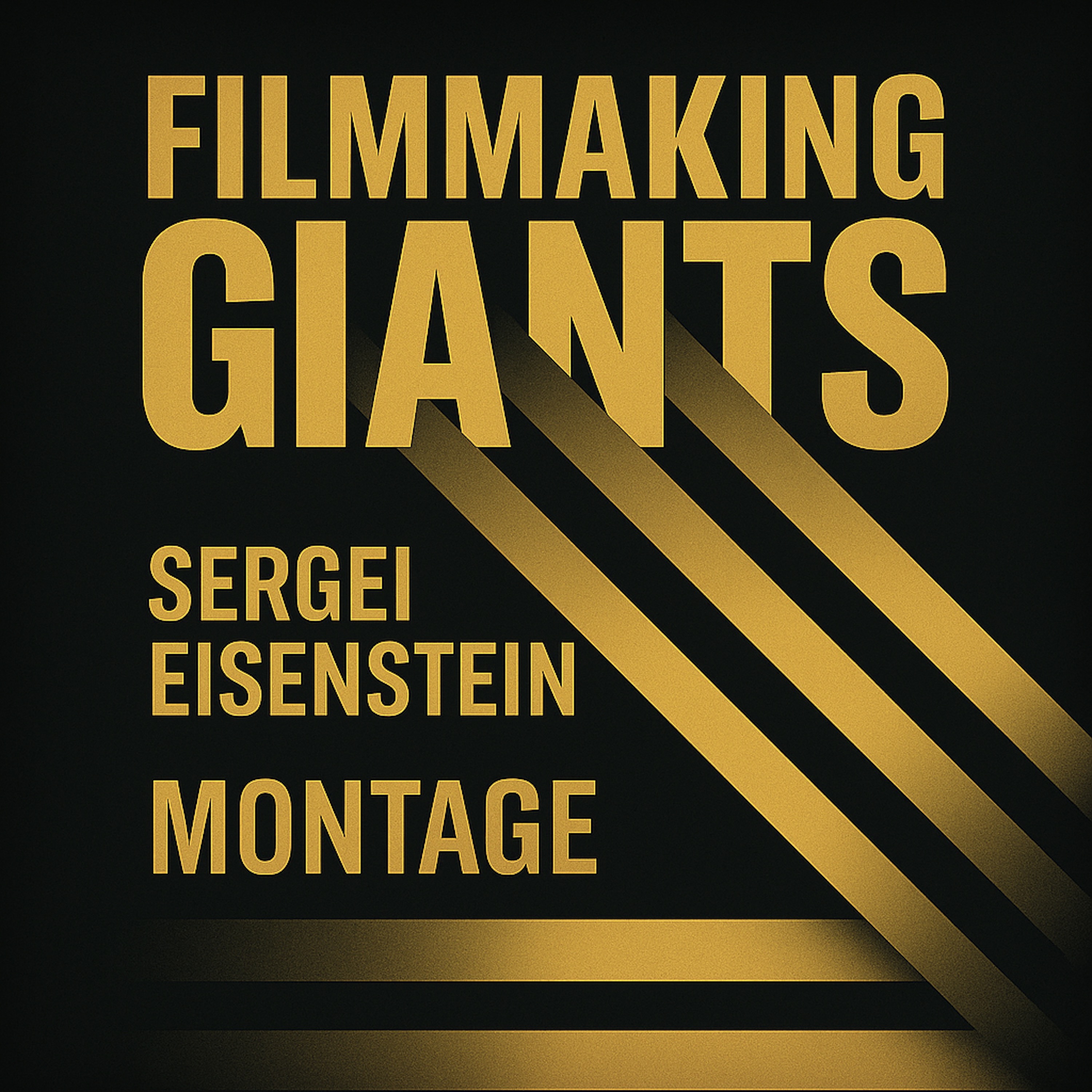
Film Making GiantsSergei Eisenstein - MontageSergei Eisenstein transformed cinema by showing that editing could be more powerful than the camera itself. From the revolutionary fervor of post-tsarist Russia to the immortal Odessa Steps sequence in Battleship Potemkin, he turned montage into a weapon of thought and emotion. This episode traces his journey from restless youth to global innovator, exploring how his radical ideas reshaped film language and why his legacy still reverberates through every cut we see today.Produced by Selenius Media – Music by The Artificial Laboratory.
2025-10-1037 min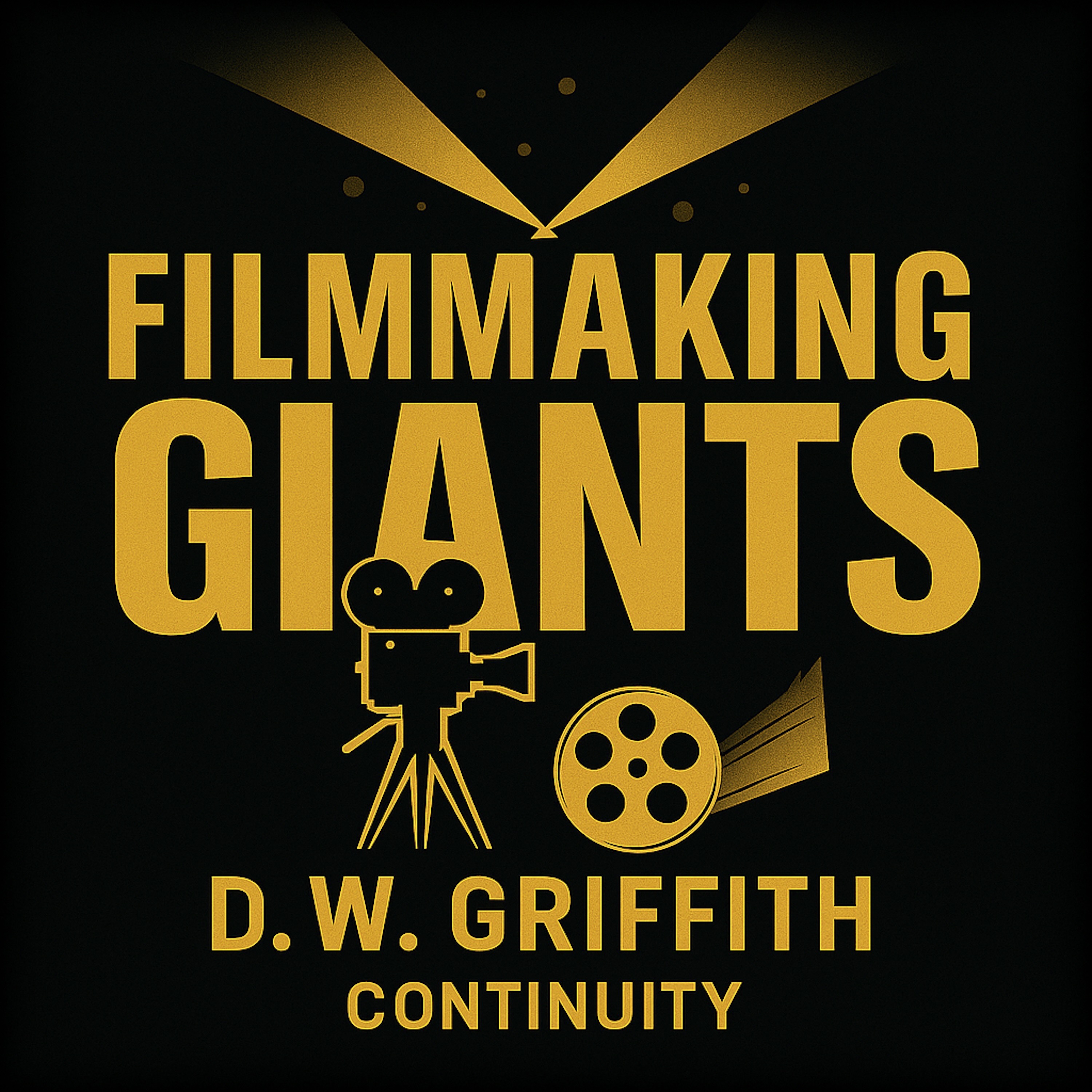
Film Making GiantsD. W. Griffith: ContinuityD. W. Griffith: ContinuityIn the first episode, we explore how D. W. Griffith and cameraman Billy Bitzer invented the grammar of continuity—cross-cutting, close-ups, and camera placement that made films legible. From The Lonedale Operator to Intolerance, his breakthroughs shaped cinematic storytelling. But with The Birth of a Nation, Griffith also revealed cinema’s dangerous ability to dignify lies. His legacy is invention and warning: every cut is an argument, and filmmakers bear responsibility for what they persuade us to believe.Produced by Selenius Media Inc
2025-10-1022 min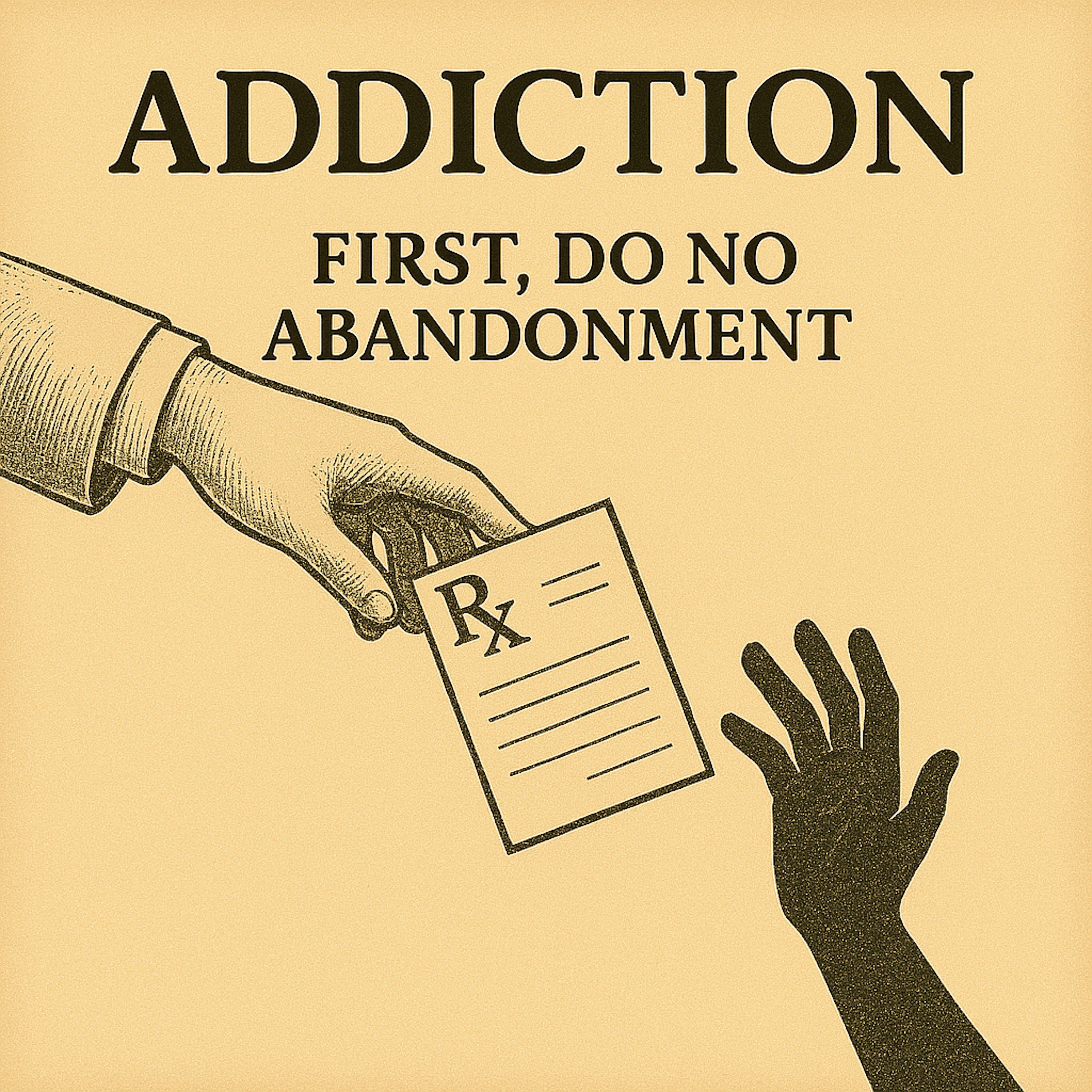
Addiction - Not a Moral FailingNo AbandonmentFor more than two thousand years, physicians have known that opium and its derivatives bind tightly—not only to receptors in the human body, but to lives. The knowledge is ancient; the pattern is predictable. Yet in the United States over the past two decades, patients were inducted into dependence by the medical system and, too often, expelled from it when risk and scrutiny rose. The treatment ended; the need did not. That gap—created by prescribers, payers, and policies—became a bridge to the illicit market, where potency and adulteration turned dependence into sudden death. This episode is about...
2025-09-1610 min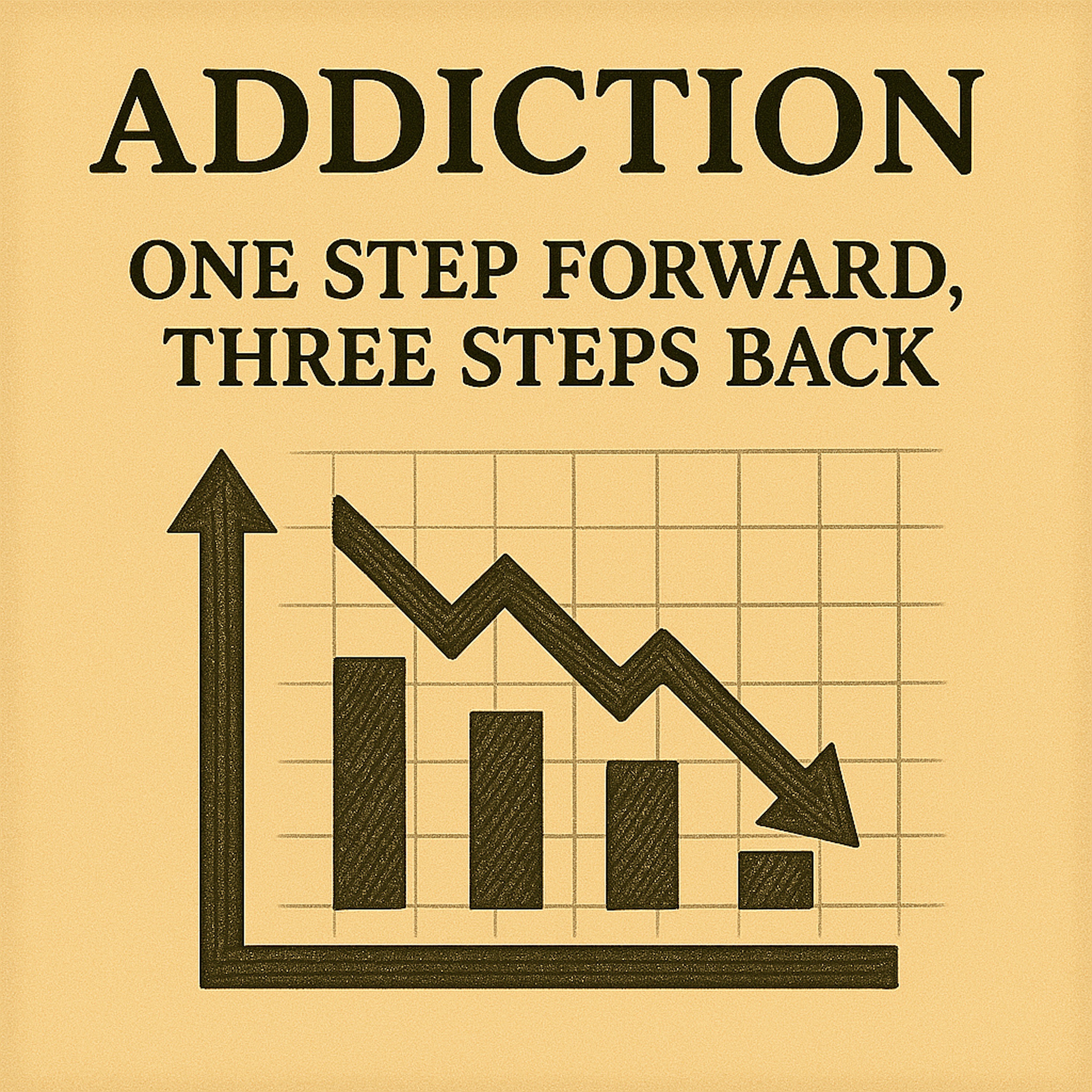
Addiction - Not a Moral FailingOne Step Forward - Three Steps BackFor three consecutive years, the United States has recorded more than one hundred thousand overdose deaths. That figure is often repeated as a headline number, but it obscures the churn underneath: periods when prevention and treatment gained traction, when death curves bent downward, followed by reversals driven by policy retreat, fragmented execution, and the steady evolution of a more toxic drug supply. This episode is about those reversals. It is about what happens when a hard‑won advance is met with a cut, a lapse, or a shrug—and why the consequences of “less” in an overdose crisis reliably become “...
2025-09-1609 min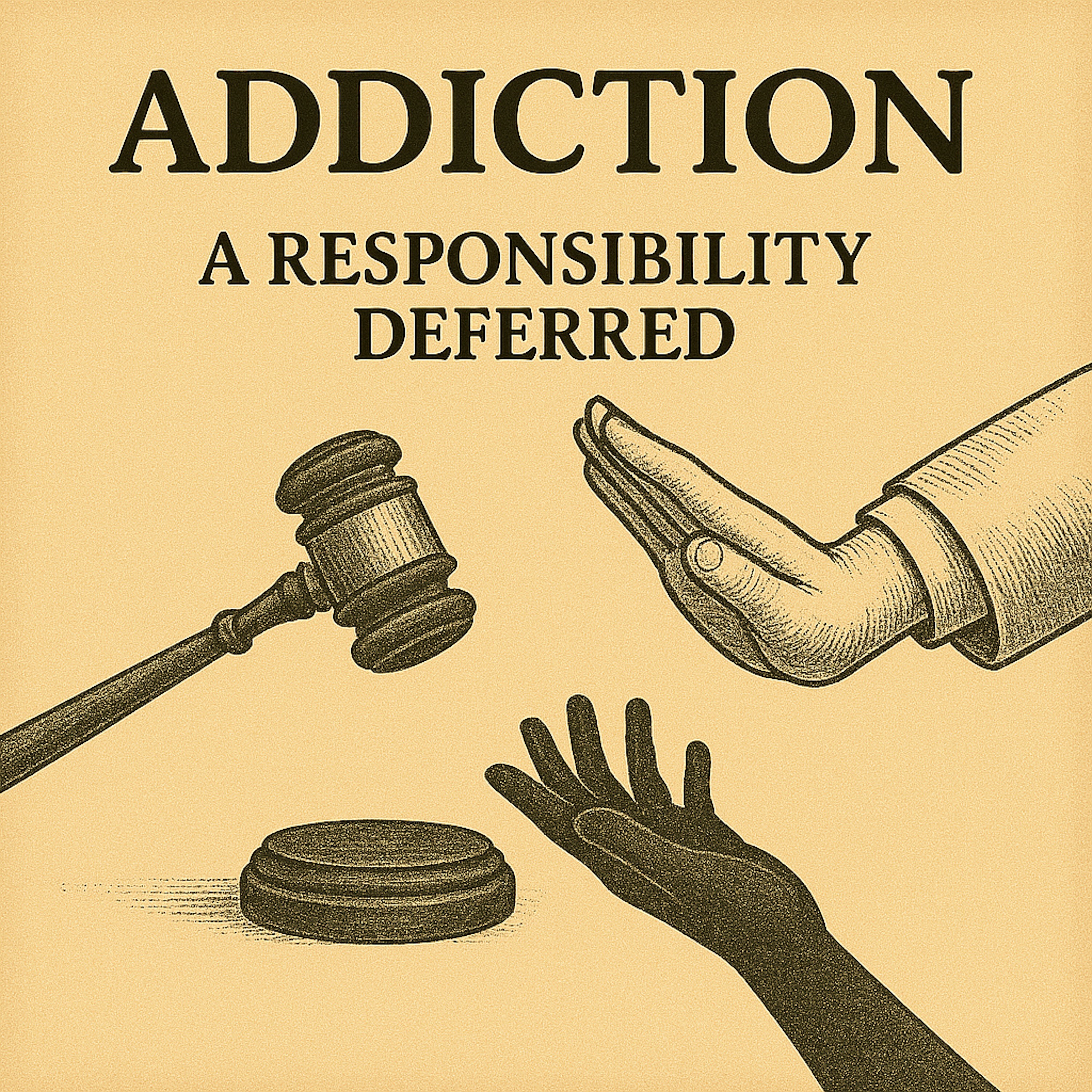
Addiction - Not a Moral FailingA Responsibility DeferredAmerica’s overdose crisis now claims over 100,000 lives every year – a staggering human cost that exceeds the toll of car crashes and gun violence. Each death is a son or daughter, a friend or parent, gone too soon. Yet this devastation is not for lack of medications, knowledge, or funding. We have effective treatments and proven harm reduction tools. What’s missing is the leadership to organize these assets into a functioning system. The truth is harsh: the country does not lack resources – it lacks oversight, governance, and a blueprint that coordinates the resources already on hand.Consider...
2025-09-1616 min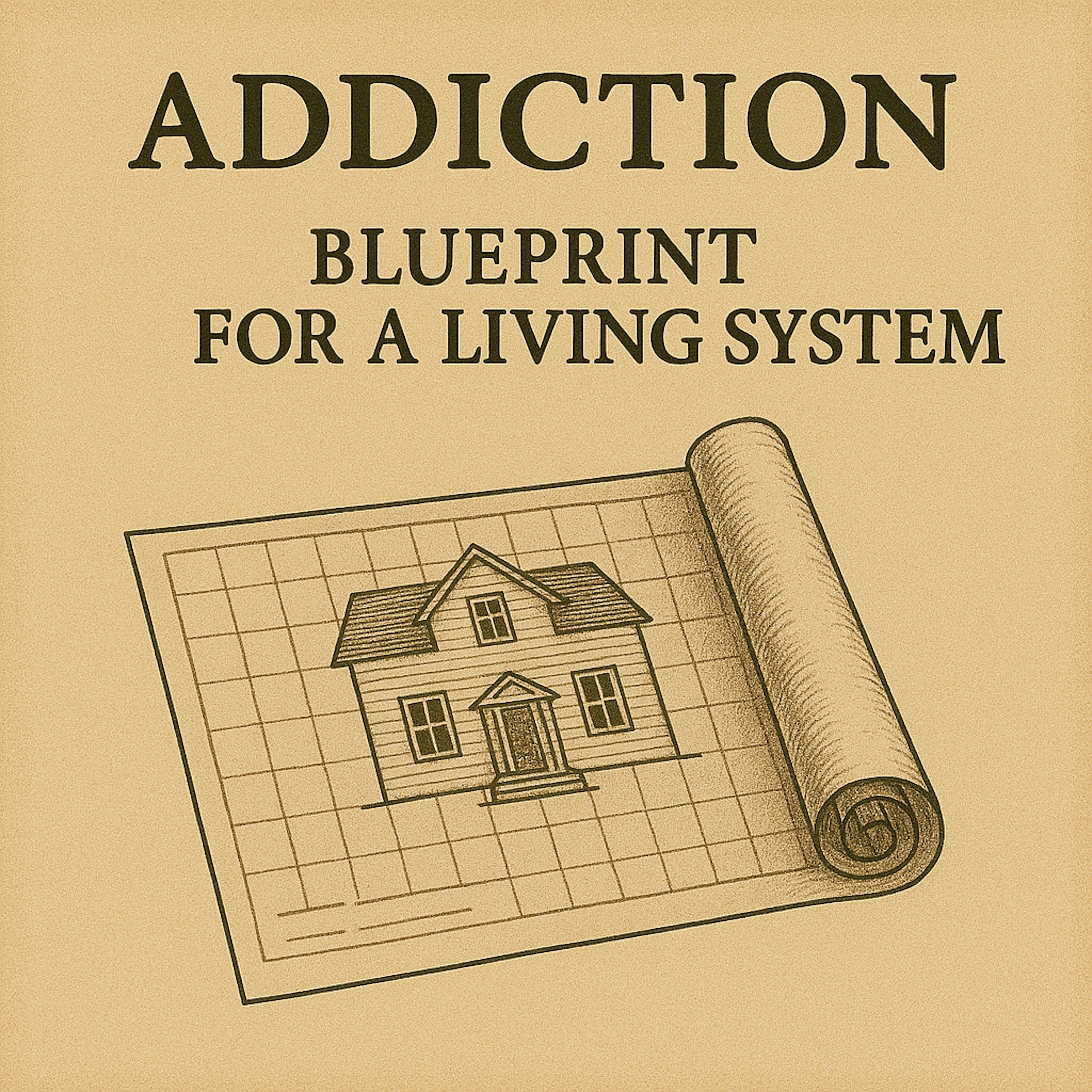
Addiction - Not a Moral FailingMake The Map- Do The Work. From Pilot To PolicyHow do we move from pilot projects to permanent systems? We outline the architecture: inventory services, fund what works, publish dashboards that measure outcomes, and tie metrics to budgets. Implementation replaces ideology, and quality improvement cycles sustain momentum. Success is not abstract; it is measured in overdose reversals, 30-day treatment retention, stable housing, and durable employment. Addiction is not a puzzle to be solved once—it is a system to be built and maintained. The blueprint exists; it only needs commitment.By Niklas S. Osterman BHPRN, MA Addiction Specialist
2025-09-1630 min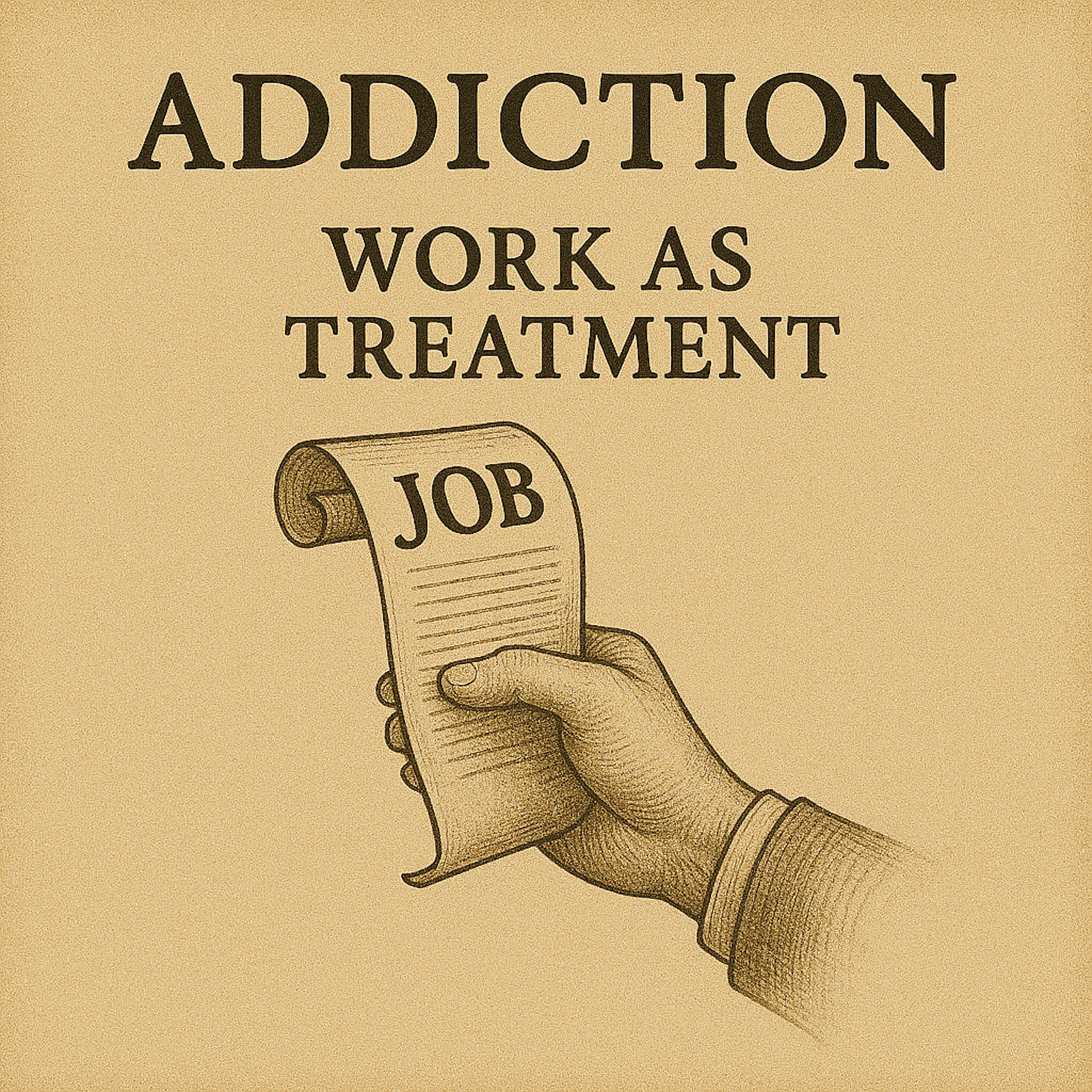
Addiction - Not a Moral FailingPaychecks, Not Punishments - The Shift That Saves LivesRecovery requires structure, and nothing provides it like a paycheck. Employment is not an afterthought but a treatment in itself: steady schedules, supportive supervisors, and income that stabilizes housing and health. This episode explores partnerships between clinics and employers, union apprenticeships that offer safe entry points, and return-to-work protocols that integrate with medical care. Jobs become more than wages; they become lifelines. The message is simple: stability is therapeutic, and work is medicine.By Niklas S. Osterman BHPRN, MA Addiction Specialist
2025-09-1626 min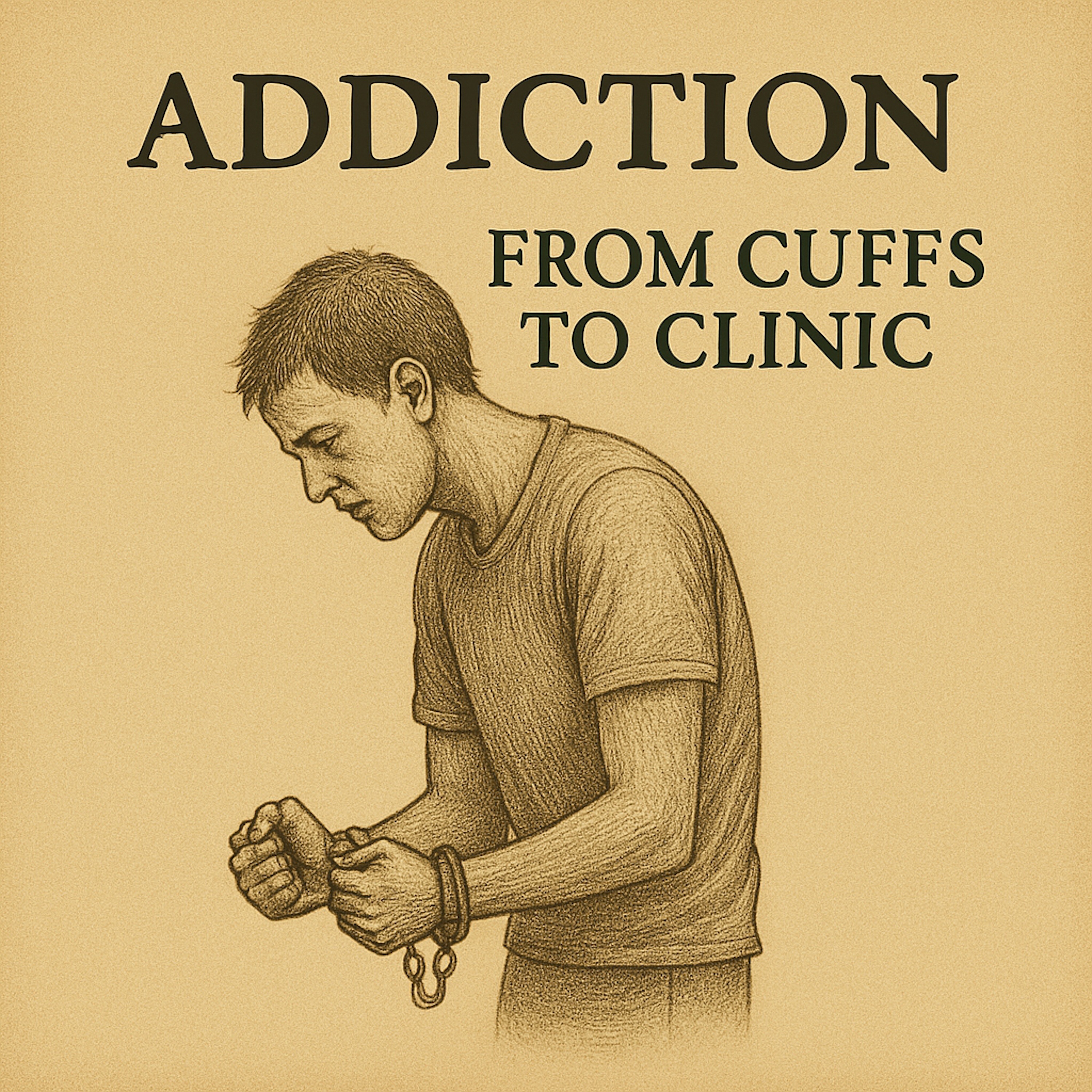
Addiction - Not a Moral FailingFrom Cuffs To ClinicThe justice system is often the first system to meet addiction—but rarely the one designed to help. Patrol, booking, court, jail, reentry: at every stage, a choice exists. This episode shows how diversion programs, deflection at the point of arrest, and clinical handoffs at reentry can save lives. Continuity of medication behind bars prevents relapse and reduces death on release. When justice systems become treatment systems, cycles of arrest and overdose can be broken. The blueprint is there; what’s missing is will.By Niklas S. Osterman BHPRN, MA Addiction Specialist
2025-09-1622 min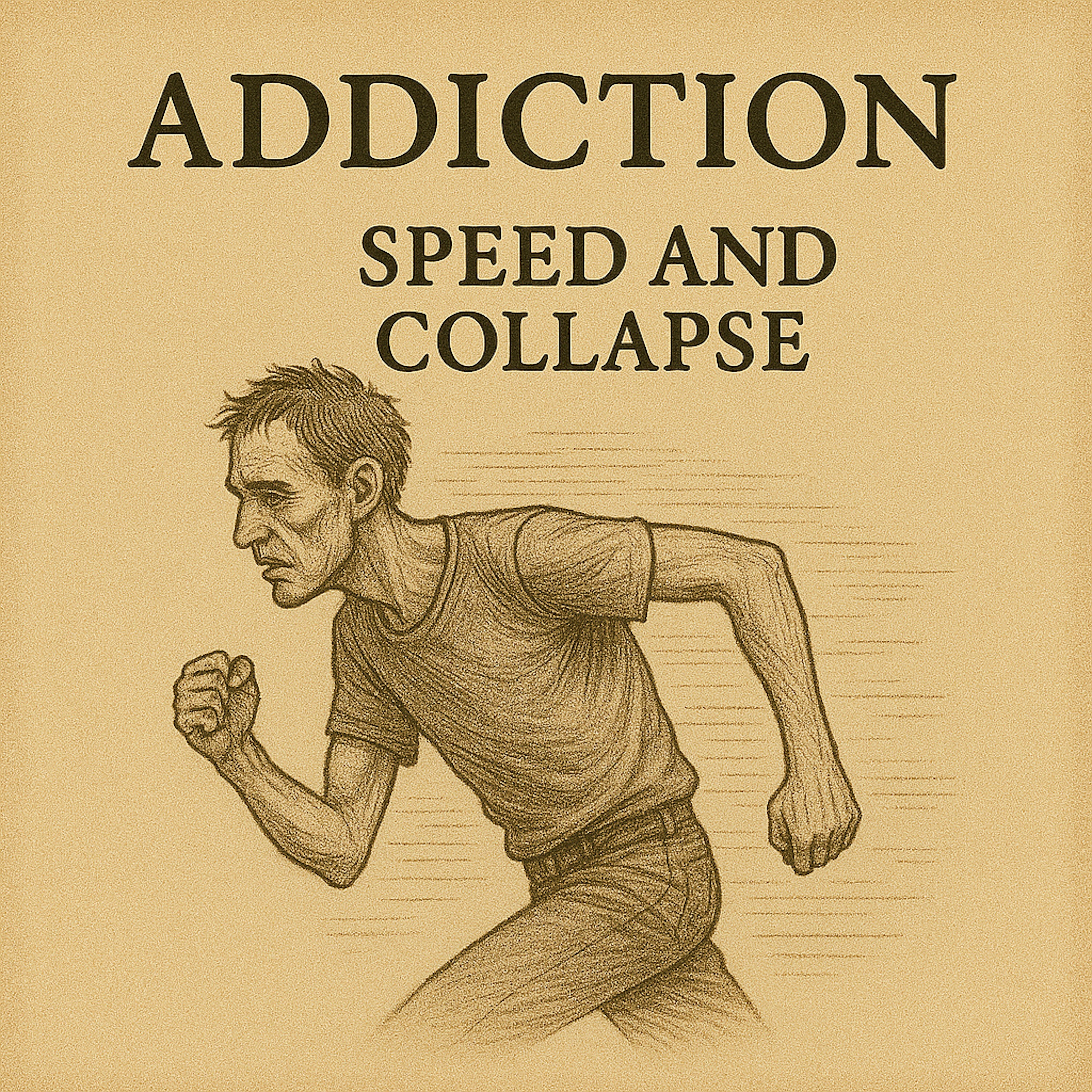
Addiction - Not a Moral FailingSeed And CollapseStimulant use disorder is widespread, but unlike opioids, it lacks a simple antidote. Meth and cocaine create different risks, but both heighten psychosis and destabilize lives. This episode dives into the evidence: contingency management—direct financial reinforcement for behavior change—stands as the most effective tool we have. It is controversial, but results are undeniable. Paychecks for progress may sound radical, yet they stabilize lives more reliably than punishment ever has. We ask: if the evidence is clear, why is the system so slow to implement it?By Niklas S. Osterman BHPRN, MA Addiction Specialist
2025-09-1628 min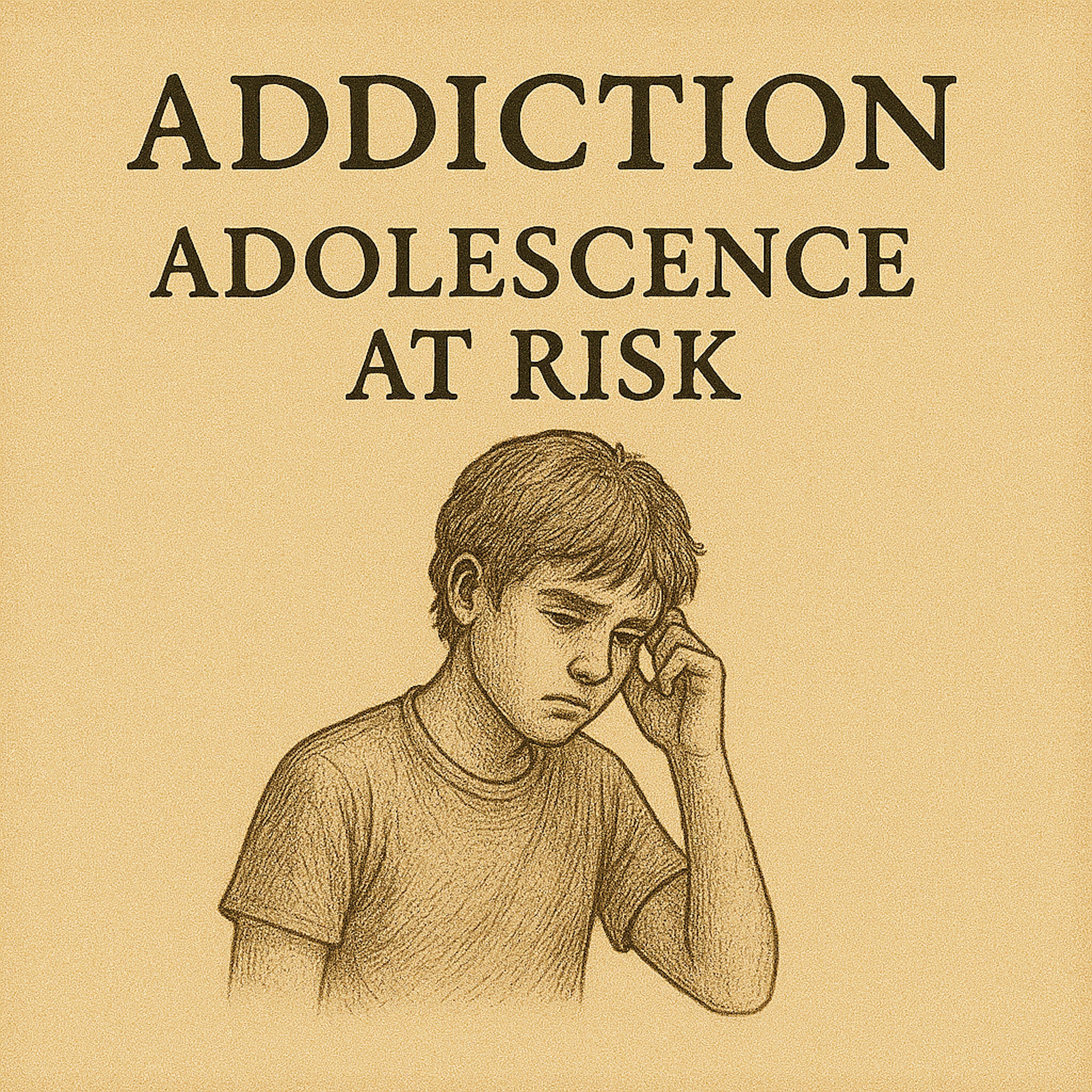
Addiction - Not a Moral FailingAdolescence At RiskAdolescence is a crucible: developing brains, fragile routines, volatile social norms. Risk is highest here, and prevention matters most. But effective prevention looks nothing like scare films or slogans. It looks mundane—delaying first use, stabilizing schools, strengthening families, and ensuring pro-social milestones like graduation or work. Rapid intervention when trouble appears makes the difference between trajectory and derailment. We argue that the most powerful prevention is boring, structured, and consistent—exactly what volatile adolescence resists, but exactly what it needs.By Niklas S. Osterman BHPRN, MA Addiction Specialist
2025-09-1630 min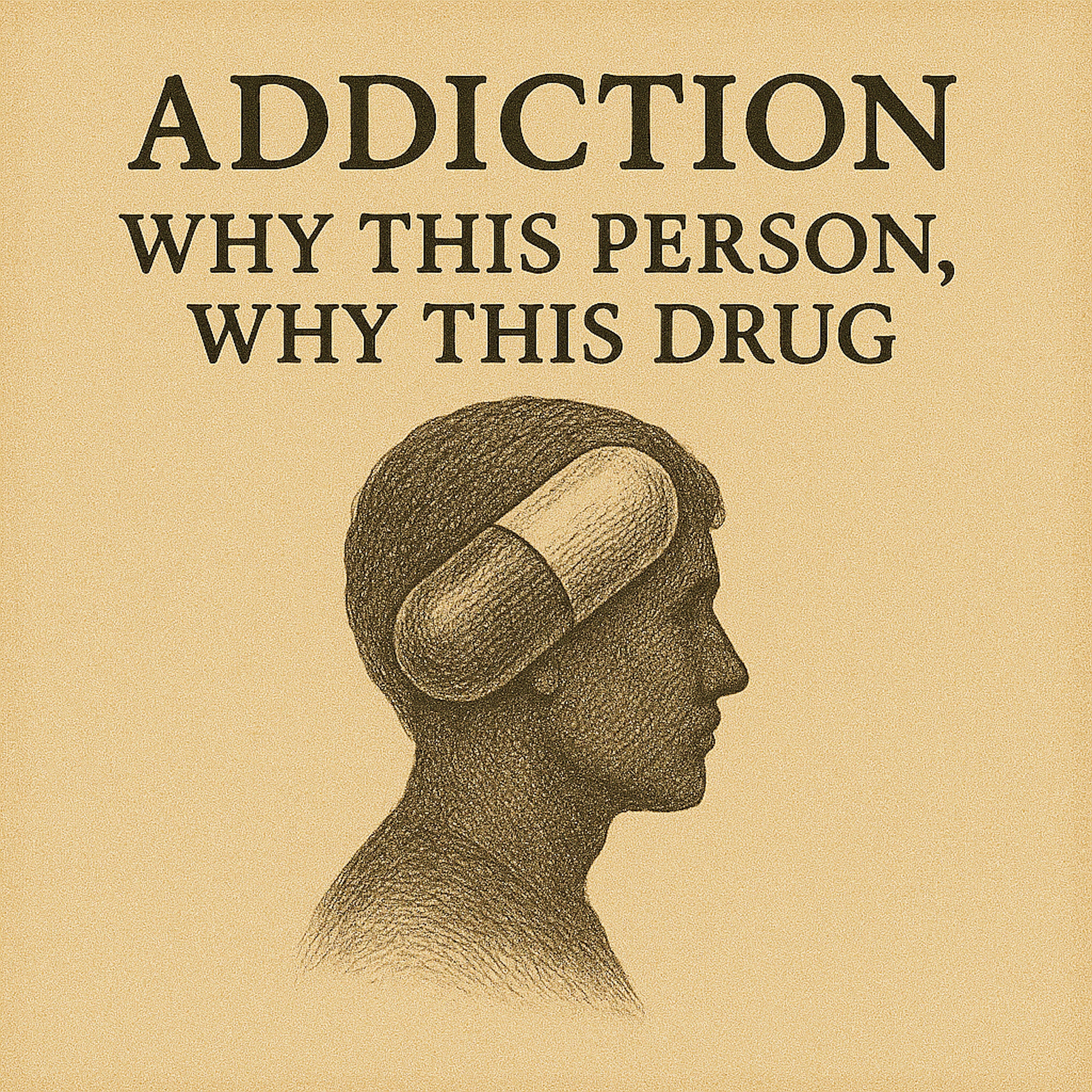
Addiction - Not a Moral FailingWhy This Person, Why This Drug?Exposure to intoxicants is nearly universal, but trajectories diverge. Why does one person spiral while another walks away? We explore how co-occurring mental illness, trauma history, housing instability, and work conditions make certain substances “fit” particular lives. Addiction, then, is not about the drug alone but about the match between need and chemical. Treatment reframes goals: improve safety and function first, let abstinence be an outcome rather than an entry requirement. When we see lives instead of labels, recovery strategies align with reality rather than ideology.By Niklas S. Osterman BHPRN, MA Addiction Specialist
2025-09-1632 min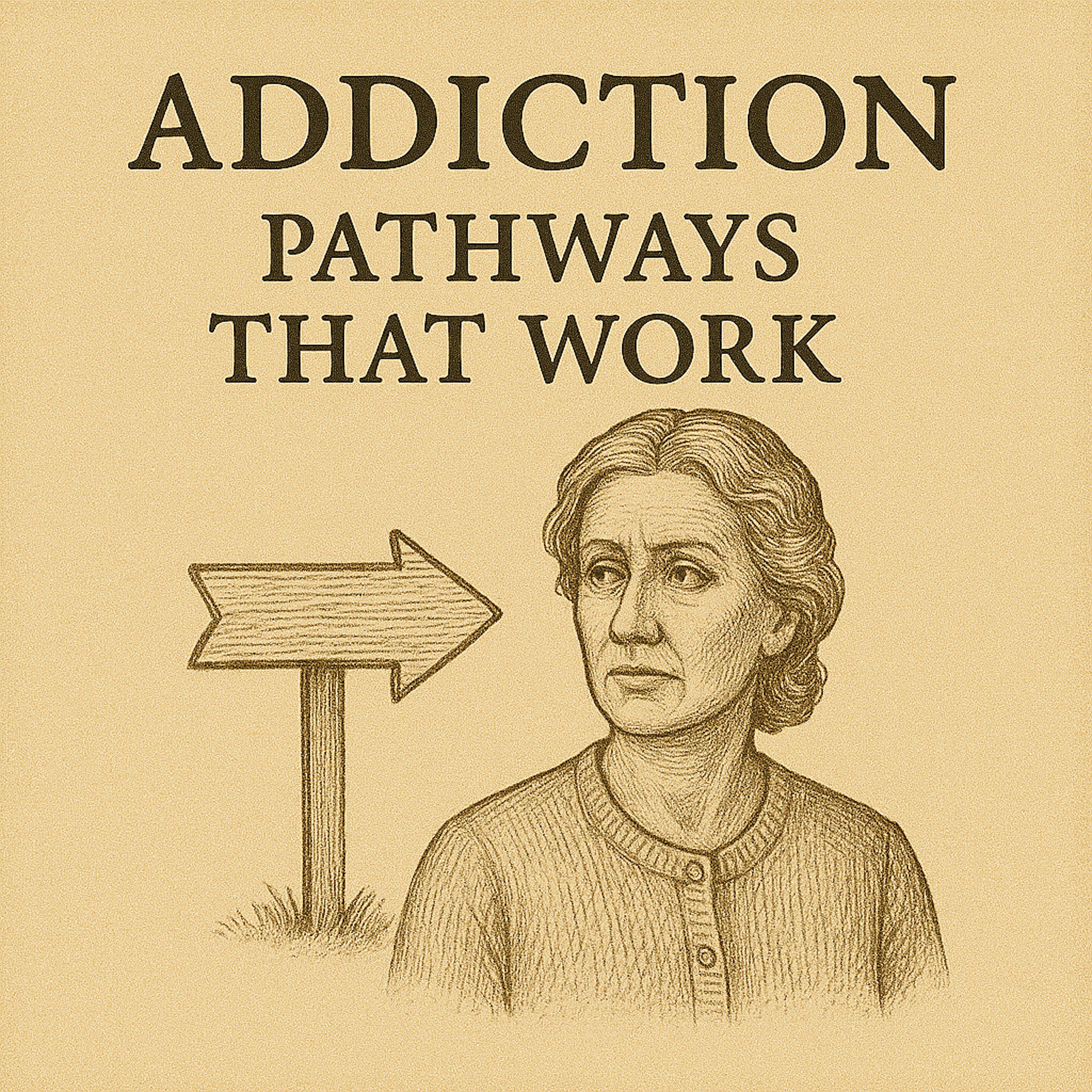
Addiction - Not a Moral FailingPathways That WorkCrisis care too often ends with a discharge slip. We reimagine the pathway: emergency departments initiating buprenorphine with next-day follow-up, methadone programs eliminating waitlists, overdose survivors linked to care before leaving the hospital. Transitional supports—housing vouchers, transport, peer guides—become as critical as prescriptions. This episode demonstrates that effective systems don’t just treat the moment; they design the bridge forward. Pathways that connect, rather than abandon, turn relapse into stability and exit doors into entry points.By Niklas S. Osterman BHPRN, MA Addiction Specialist
2025-09-1633 min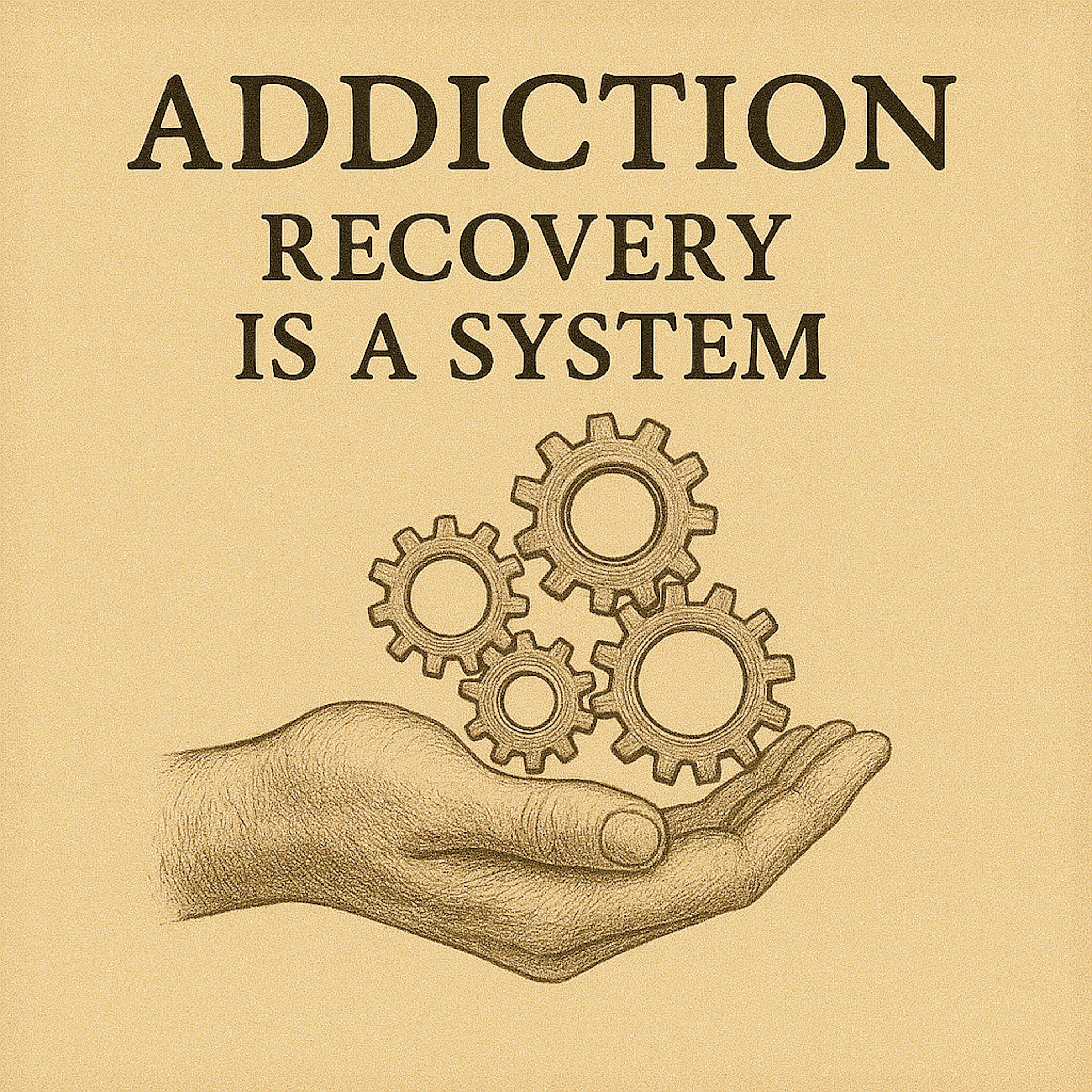
Addiction - Not a Moral FailingRecovery is a SystemPeople don’t recover in programs—they recover in systems. This episode blueprint a recovery ecosystem: same-day access to medications, peer navigators who bridge trust, housing that stabilizes routines, and employment pipelines that turn survival into structure. Recovery housing, low-friction benefits, and pro-social belonging transform chaos into habit. When services are fragmented, people churn in and out of crisis; when connected, recovery becomes durable. We show what it takes to replace slogans with scaffolding, and why every missing piece is a door that slams shut.By Niklas S. Osterman BHPRN, MA Addiction Specialist
2025-09-1624 min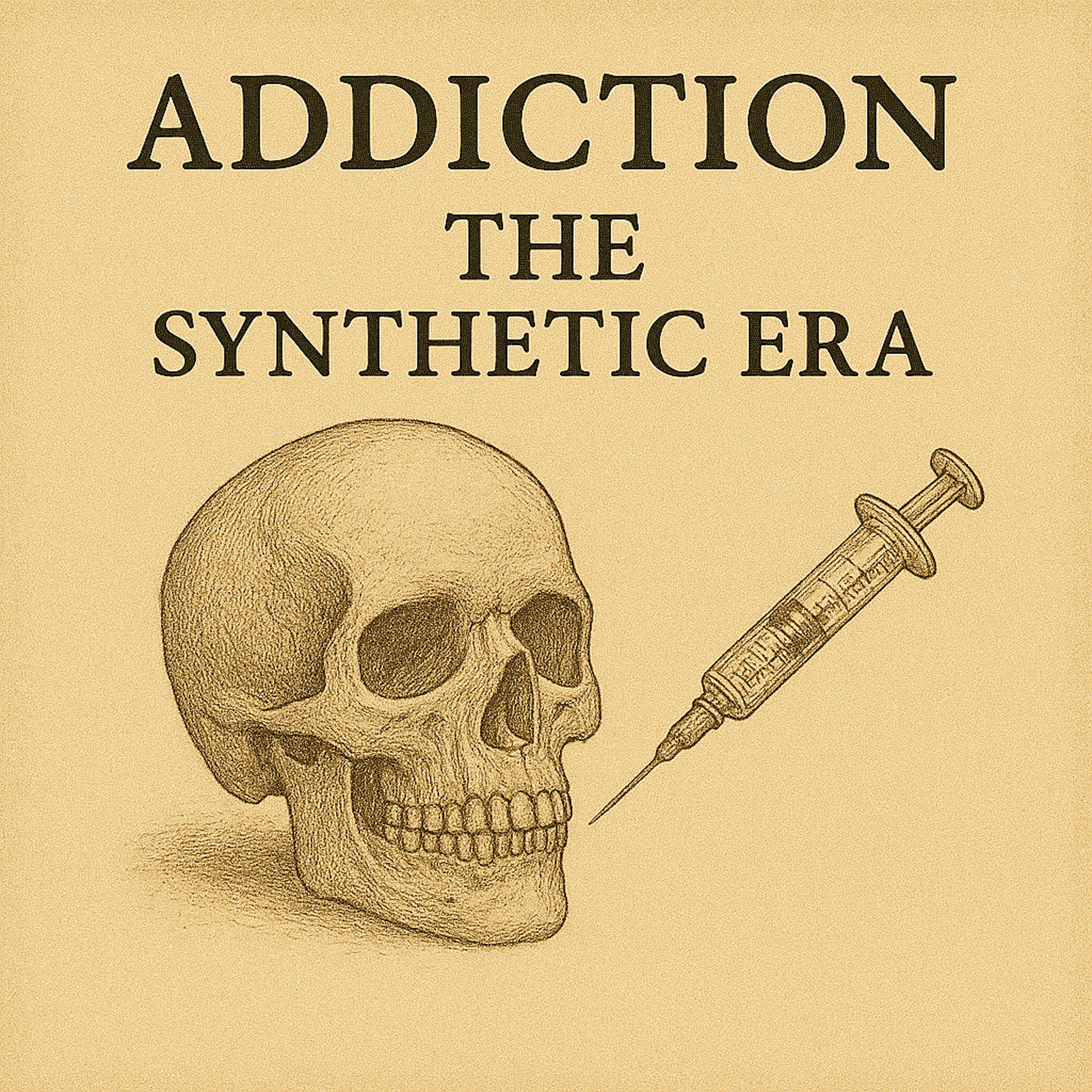
Addiction - Not a Moral FailingThe Synthetic EraIllicit fentanyl has transformed the landscape of risk. Its extreme potency, counterfeit formulations, and volatile supply chain turn dependence into a gamble where every dose could be the last. We map how fentanyl spread from labs to street corners, why counterfeit pills exploded across North America, and how the odds shift when naloxone, test strips, and same-day medications are available. But availability is not enough—delivery systems must be designed to meet people where they are, when they need help most. Without that, every swallow, every injection, remains Russian roulette.By Niklas S. Osterman BHPRN, MA Addiction Sp...
2025-09-1624 min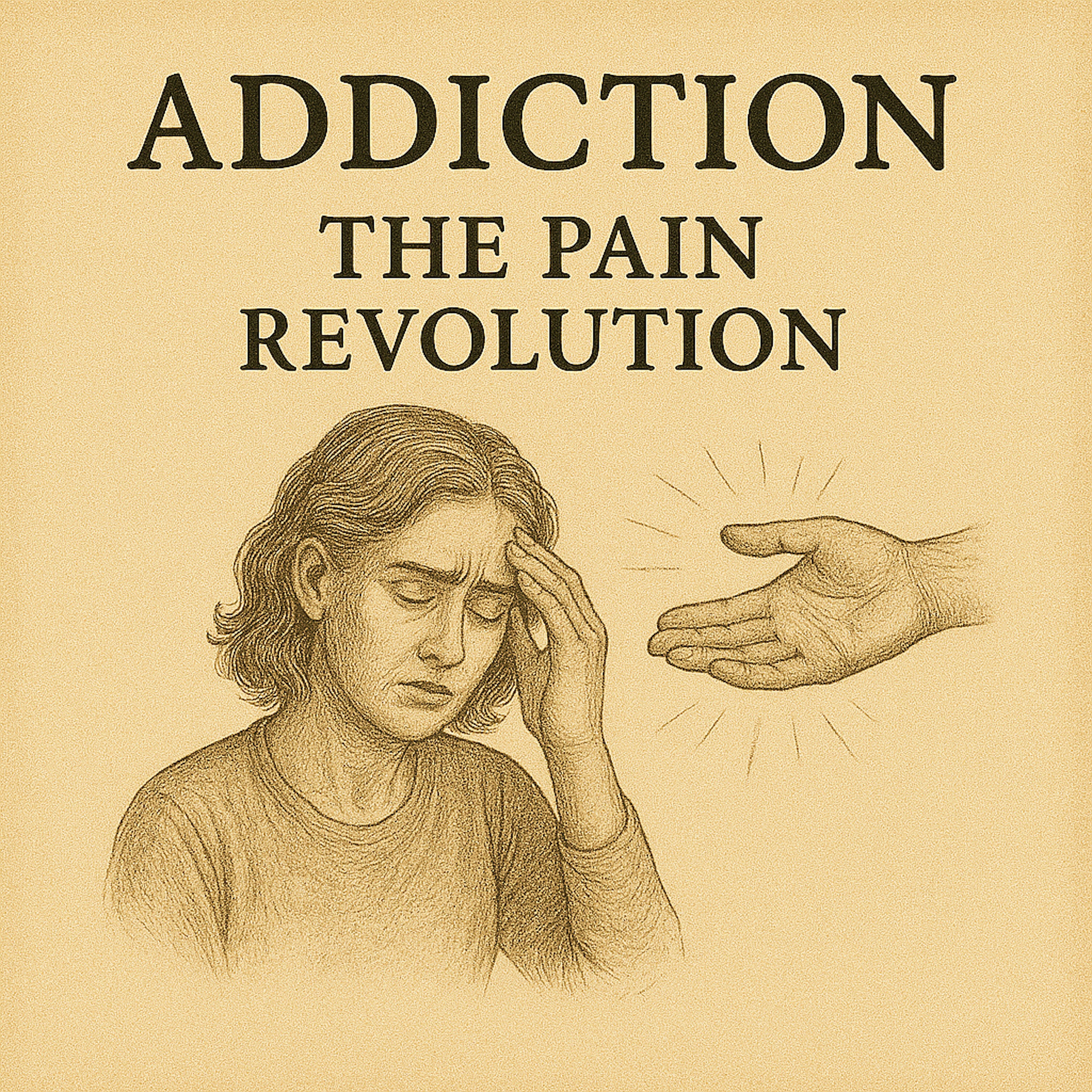
Addiction - Not a Moral FailingThe Pain RevolutionIn the 1990s and 2000s, a campaign to correct undertreated pain changed medicine. Clinicians were told pain was the “fifth vital sign,” metrics demanded its eradication, and powerful analgesics were promoted as low risk. The result: expanded access without safeguards, dose escalation without structure, diversion without oversight. What began as relief became dependence, poisoning, and death. This episode traces how good intentions met perverse incentives, how policy and profit intersected, and why true relief requires more than prescriptions—it requires systems that balance compassion with control.By Niklas S. Osterman BHPRN, MA Addiction Specialist
2025-09-1623 min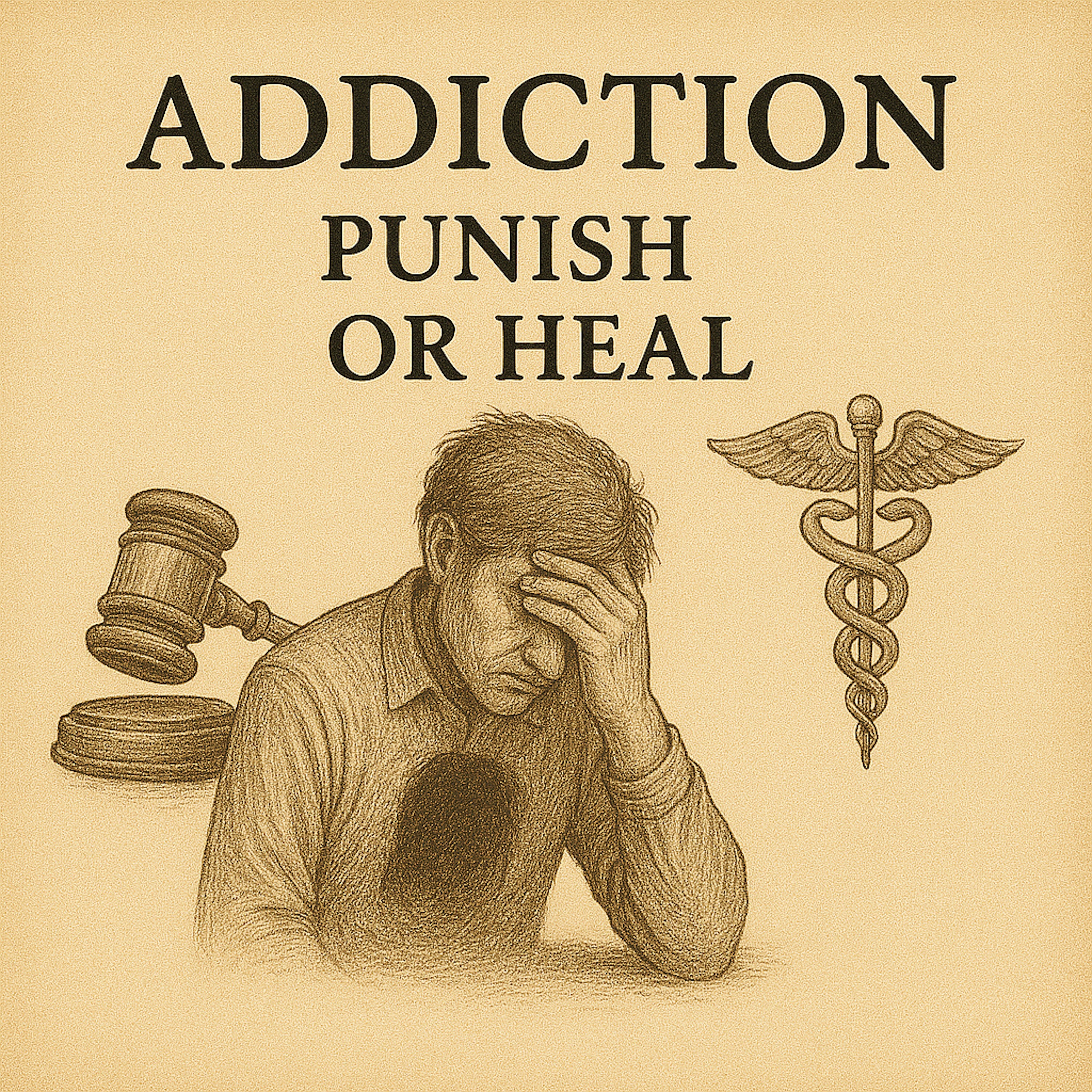
Addiction - Not a Moral FailingPunish or HealFor decades, policy favored punishment over healing. From crack-era laws to “zero tolerance,” governments built enforcement-heavy systems that filled prisons while leaving demand untouched. This episode examines how deterrence failed: supply adapted, markets shifted, and harm multiplied. Meanwhile, treatment and harm reduction proved what punishment could not—reduced death, improved safety, restored lives. We explore the choice societies still face: criminalize people for the substances they use, or design systems that address why use begins and why it persists. The war on drugs was never a war on molecules—it was a war on communities.By Niklas S. Oster...
2025-09-1625 min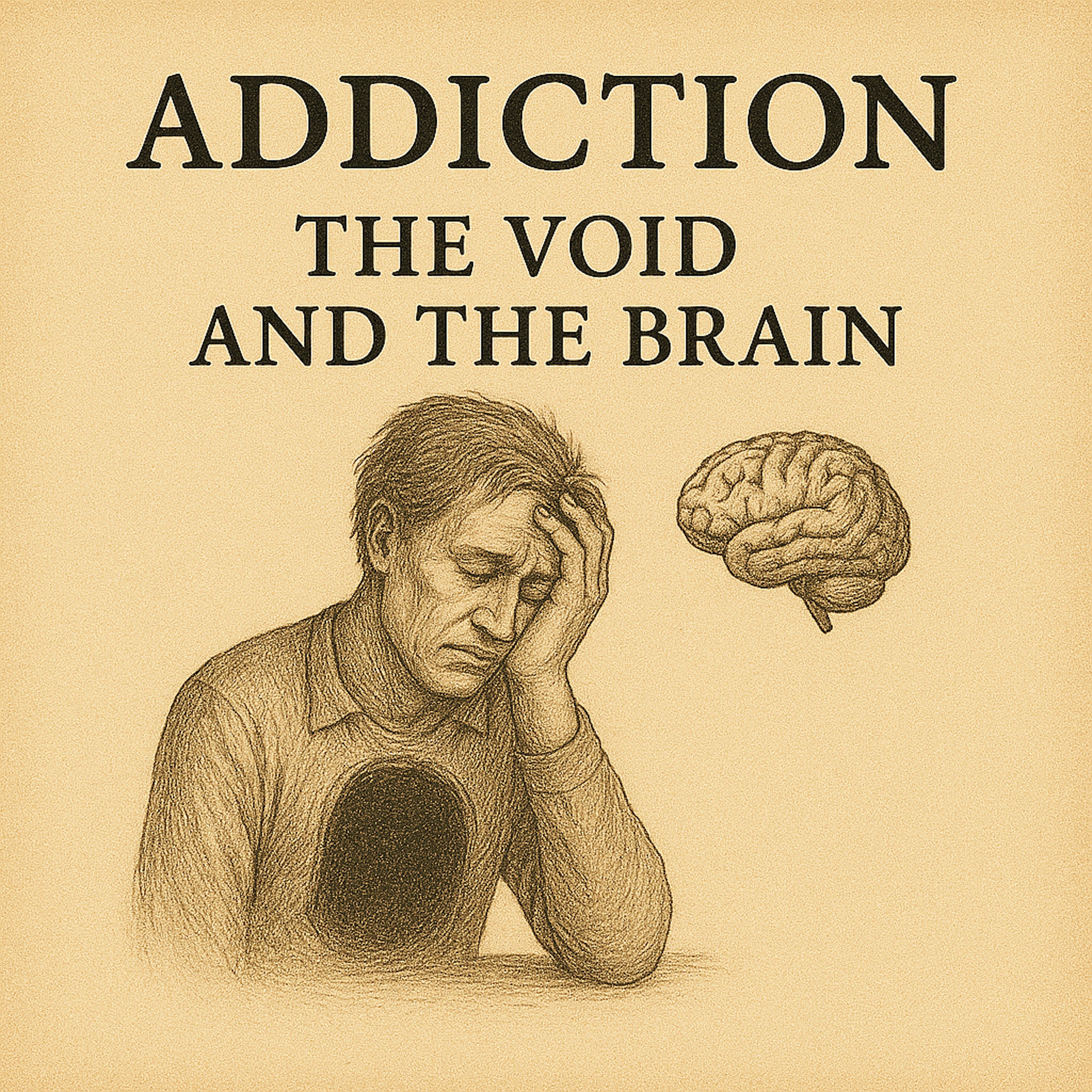
Addiction - Not a Moral FailingThe Void and the BrainAddiction is not a mystery of weak character; it is the brain responding to absence. Trauma, neglect, and unmet needs carve out voids—of safety, attachment, or meaning—into which substances fit perfectly. We map the circuitry: reward systems, learning loops, and stress responses that cement behavior into compulsion. Trauma changes prediction, making relief the brain’s highest priority. Recovery becomes not an act of repentance but of redesign—restoring environments that provide connection, stability, and belonging. The science does not dismiss the pain; it explains why the grip feels unbreakable, and why systems, not slogans, are required to release...
2025-09-1626 min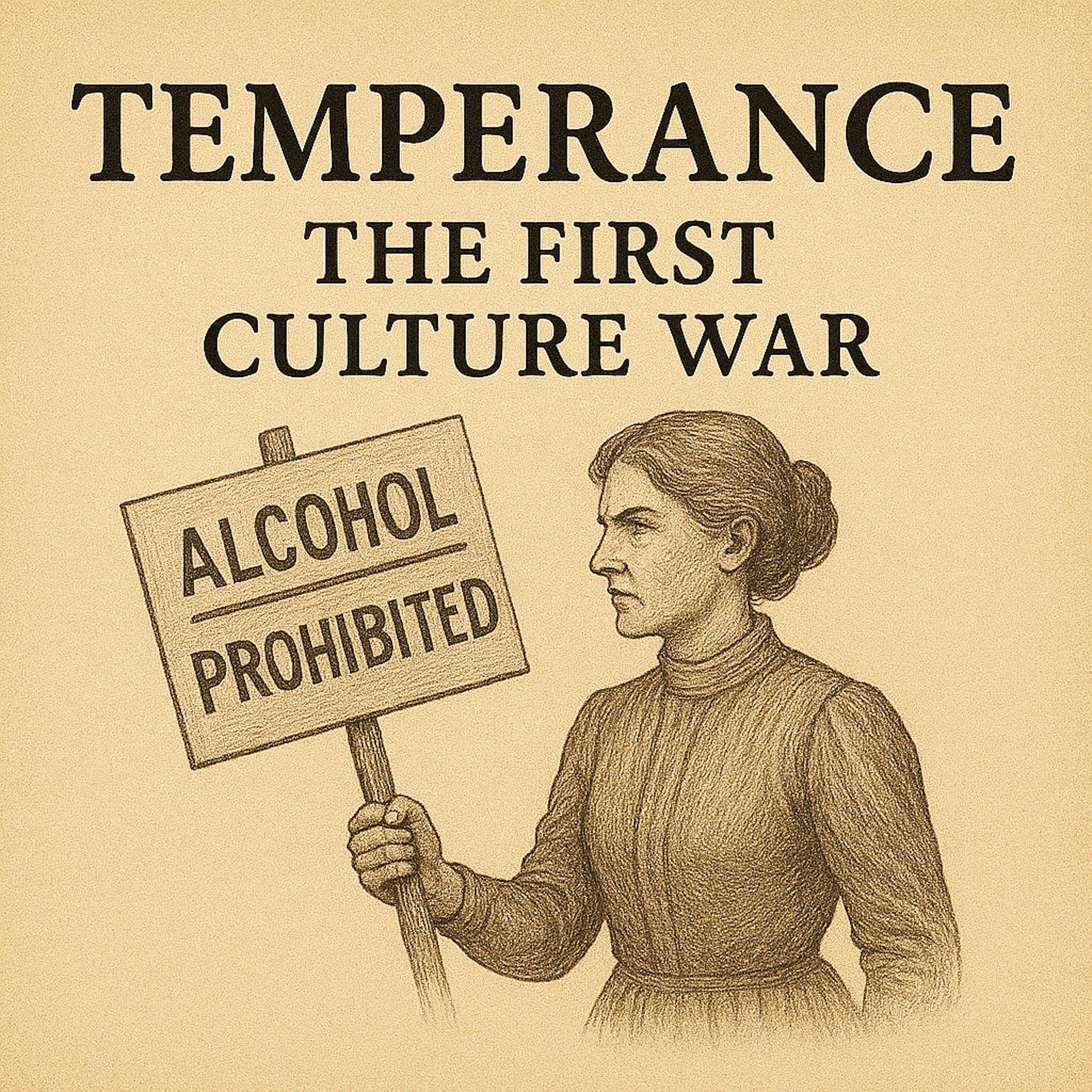
Addiction - Not a Moral FailingTemperance: The First Culture WarIn the early 1900s, temperance promised to rescue society from the bottle’s grip. Instead, it sparked America’s first culture war, a battle waged in pulpits, parliaments, and saloons. We follow how good intentions met incentives: bans gave rise to black markets, moral campaigns birthed organized crime, and laws meant to heal communities often punished them. Prohibition’s collapse revealed more than policy failure; it showed how deeply entwined intoxicants were with culture, commerce, and control. The lesson endures: bans without systems create shadows darker than the problem they sought to solve.By Niklas S. Osterman BHPRN...
2025-09-1607 min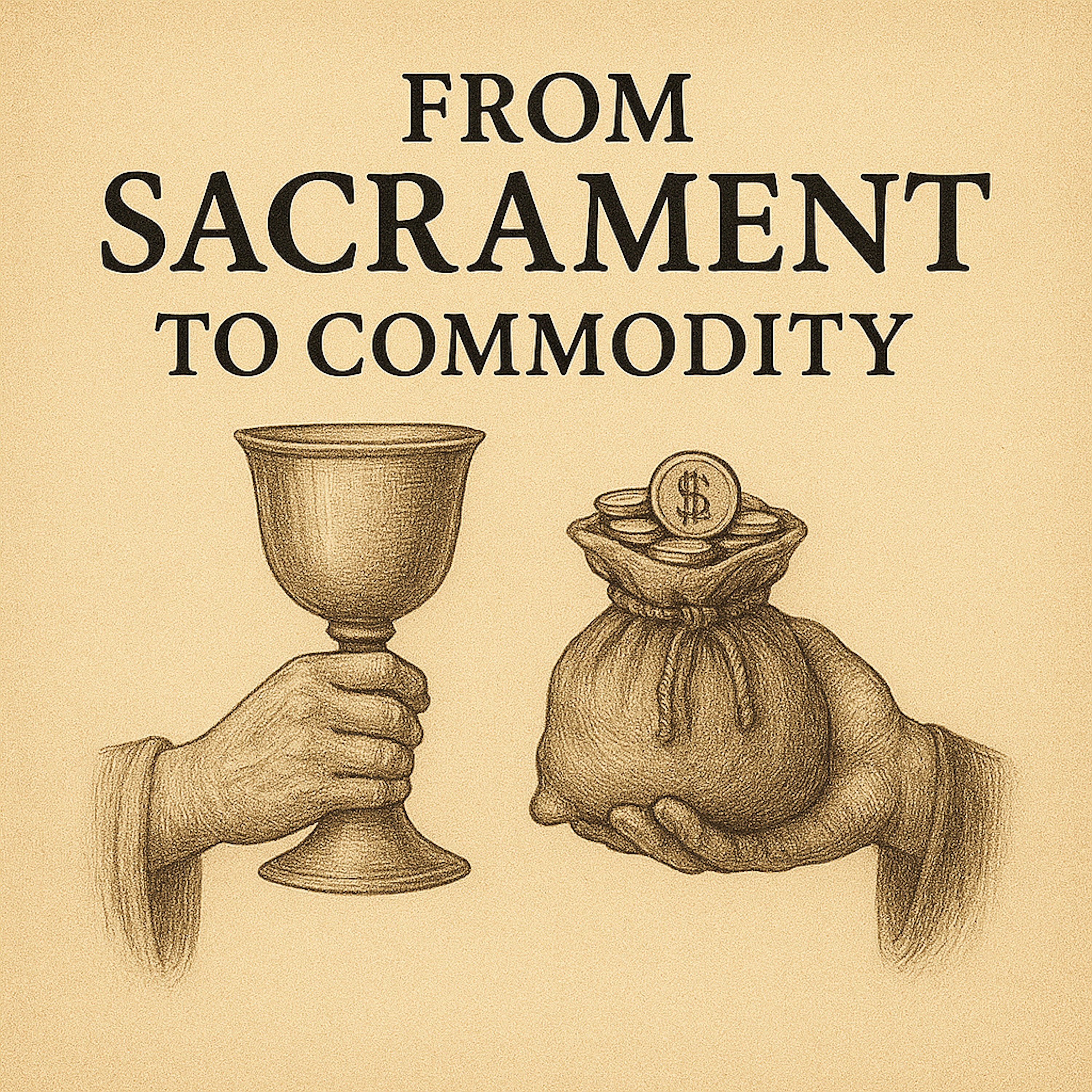
Addiction - Not a Moral FailingFrom Sacrament to CommodityRitual gave way to marketplace. In ancient times, intoxicants carried symbolic and spiritual meaning—wine poured for gods, hallucinogens shared by shamans, sacred plants used to bridge the human and divine. Over centuries these same sacraments became commodities: measured, taxed, traded, and exploited by powers that saw not holiness but revenue. We explore the transformation of the sacred into the profitable, from Mesopotamian beer rations to medieval monopolies, and how commerce changed the meaning of intoxication itself. In the process, society began treating altered states not as mysteries but as products to be consumed, controlled, and sold.By...
2025-09-1615 min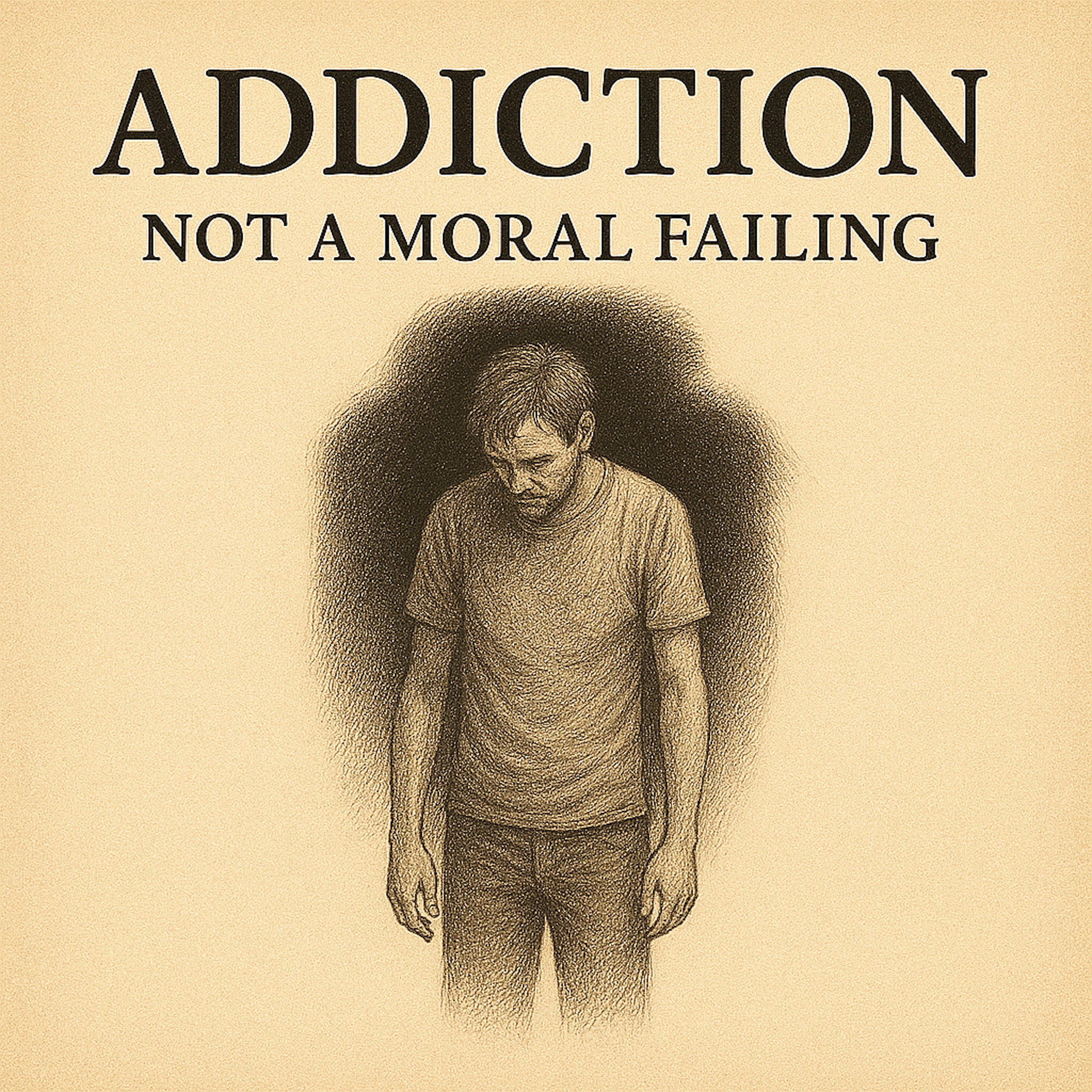
Addiction - Not a Moral FailingNaming the HungerAddiction is older than morality. Long before psychiatrists and courts defined it, people sought solace and transcendence in plants, potions, and fermented drinks. This episode challenges the myth that addiction reflects weakness or lack of willpower. Instead, it shows how communities across cultures understood intoxication as part of life—sometimes sacred, sometimes destructive. We trace how modern society reframed this ancient impulse as sin, defect, or crime, ignoring both science and history. Addiction is not a moral failing. It is a human reality, demanding compassion, context, and clarity.By Niklas S. Osterman BHPRN, MA Addiction Specialist
2025-09-1617 min